international

21 shows worth watching out for this spring



Awesome AI: What impact will Sora have?

How the global content business is pivoting
PLUS: Launching fledgling IP on social pla orms | The role of Middle Eastern money in struggling Western media Everything about content Spring 2024

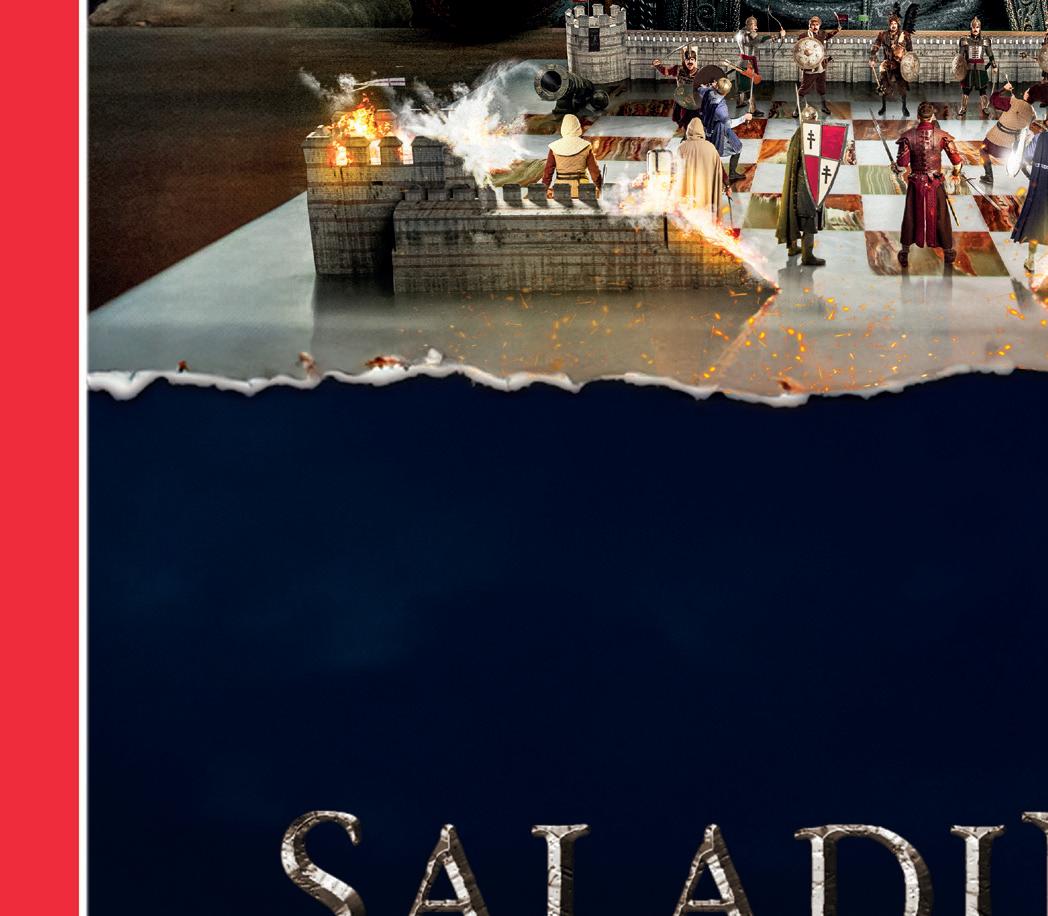












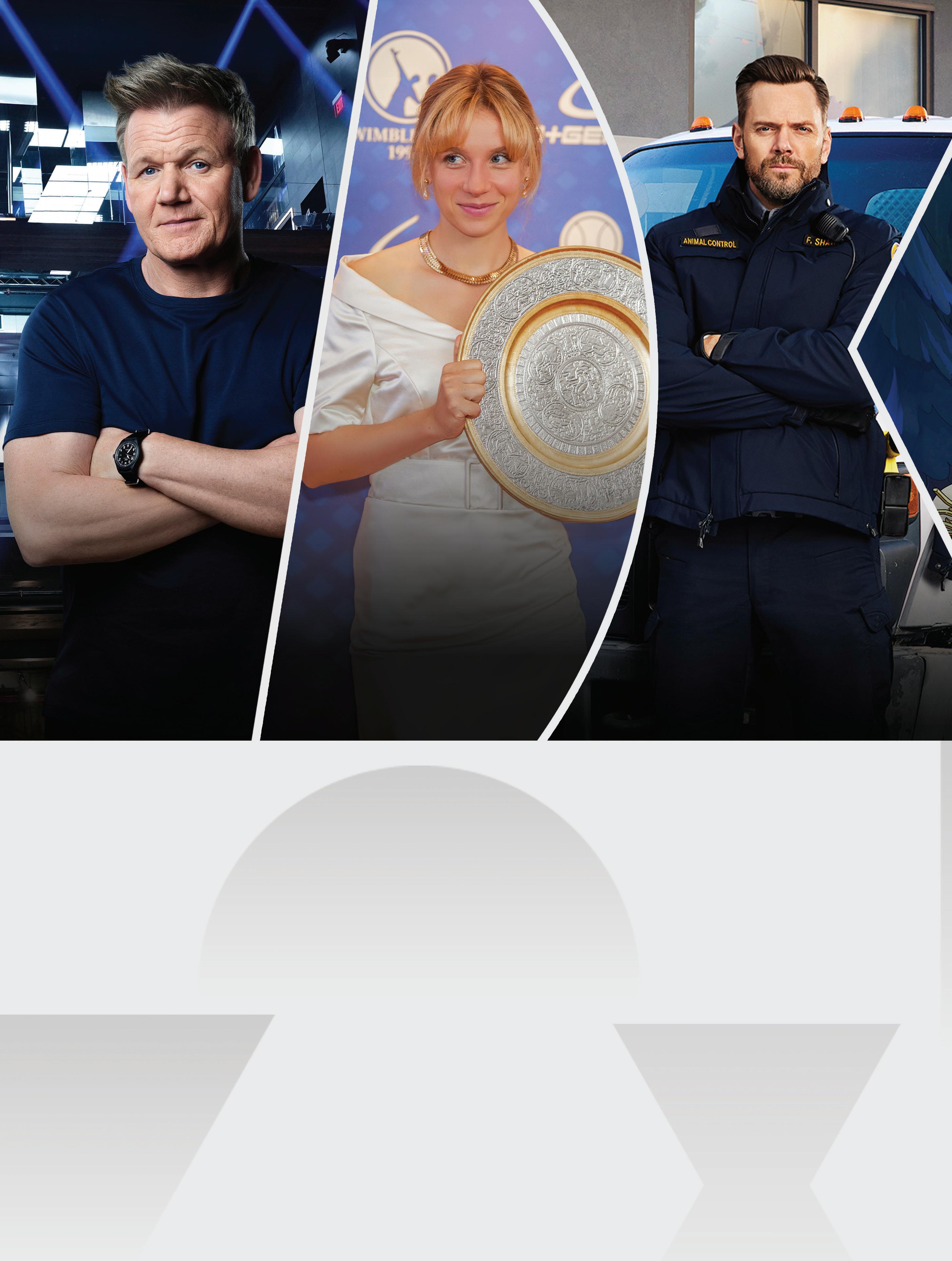












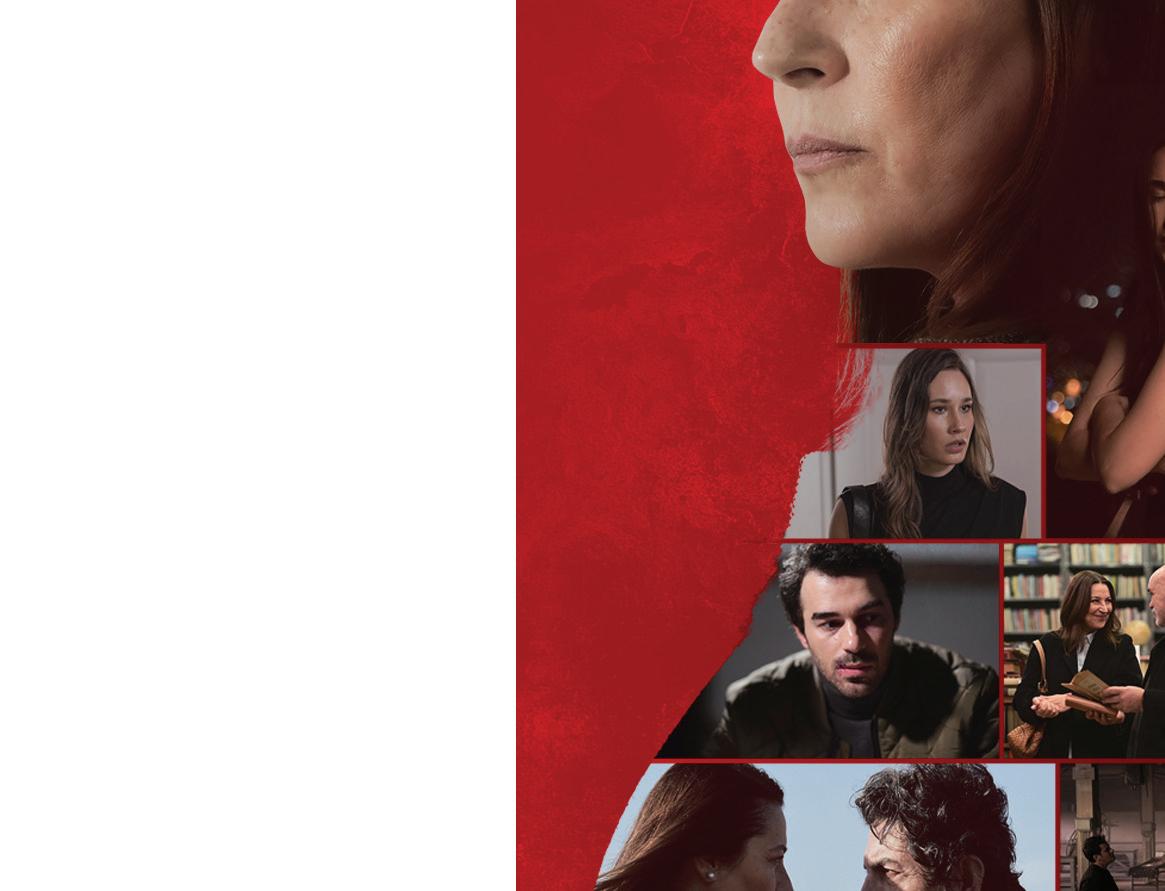









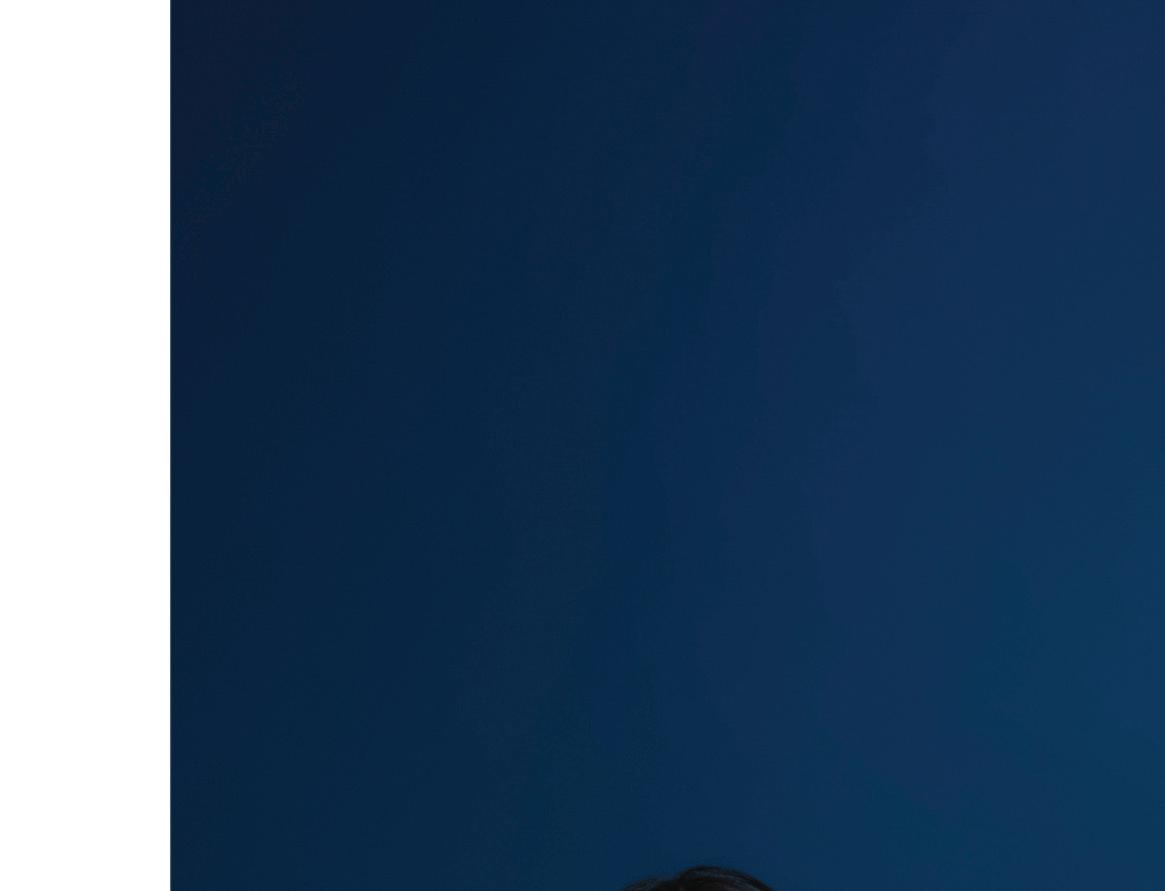





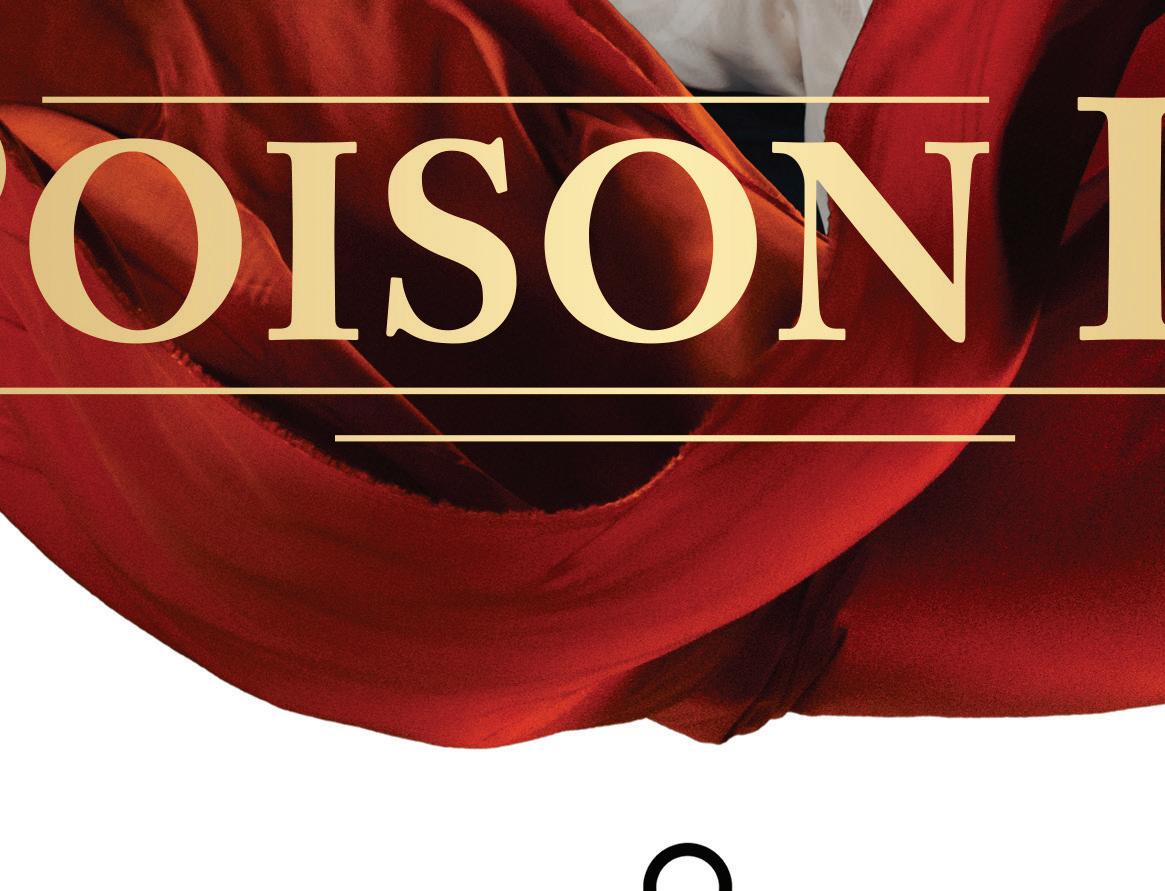















































































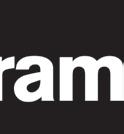














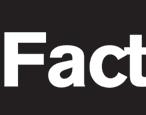























































Your unfair advantage CONTENT STRATEGIES NIGERIA Content CONTENTL A








STRATEGIES
Content
Content
Your unfair advantage CONTENT
NIGERIA
CONTENTL A Drama Kids TV NIGERIA

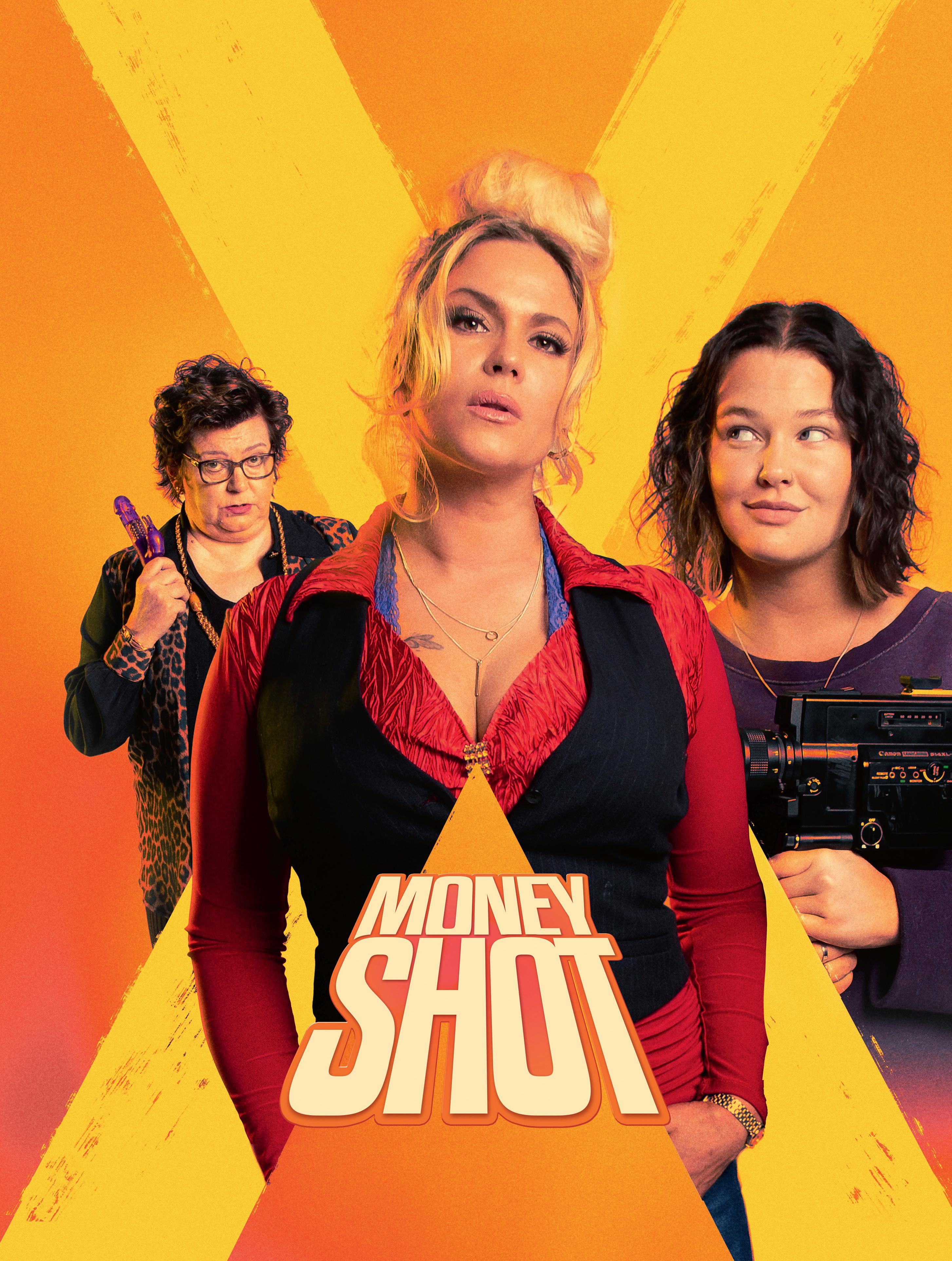



8X25’
UPFRONT
Mediapocalypse now?
Not so long ago, everyone was floating down an endless stream of great TV. But the past 18 months have shown us that stream led to a fairly large waterfall, down which the traditional TV industry now appears to be falling.
The bottom has dropped out of mid-budget programming in the US and many European markets, leaving producers and freelancers reeling.

Many of those working in this area of TV are being encouraged to pivot to other genres and industries, with branded content studios among the most logical destinations.
and budgets have been eviscerated. Tim Davie, director general of the BBC, recently warned that US and Chinese algorithms are “the potential tastemakers of the future,” but that era may have already arrived. Some are calling this the ‘mediapocalypse’ and the prevalence of the #opentowork hashtag on LinkedIn illustrates just how hard times are for many working in the entertainment industry today.


Nothing that airs in daytime and early evening slots can be classed as unmissable. But this is the bread and butter of TV production and the industry is now on the Atkins diet. Attention has shifted to social media
THE C21 CONTENT TRENDS REPORT:
Spring 2024
C21’s quarterly look at main business trends looks at what we can do to make sure we survive, and maybe even thrive, between now and 2025.
OpenAI’s recently unveiled text-to-video AI tool Sora has sparked shock and awe across the entertainment business. Does it herald the dawn of a new age of content creation?
With new TV shows o en going undiscovered thanks to the competition for audiences, launching fledgling IP on social pla orms such as Roblox, TikTok and YouTube could be the answer.
RedBird IMI’s acquisition of All3Media and the former’s bid to buy UK newspaper The Telegraph have highlighted the growing role of Middle Eastern money in Western media.
CONTENT STRATEGIES: Mega
Scripted helped the Chilean net become a leader, but changing audience habits mean it must evolve to stay on top.
NEXT BIG THINGS: 21 on 21
Our selection of the 21 shows you can’t a ord to miss this spring.
AHEAD OF THE CURVE: AI
Are generative AI tools simply enabling producers to o er channels more for less, or are they in danger of cutting creatives out of the business?

Spare a thought for those in the kids’ TV business, for whom this has been the status quo for a while now. As one veteran exec put it on LinkedIn: “The kids’ media business has been in the shitter for over 18 months with no sign of turnaround.”
It was clear at Series Mania in Lille in late March that the scripted industry feels far more shielded from the economic headwinds battering the business,
CONTENTS
CONTENT STRATEGIES: TF1
France’s TF1 is seeking to push boundaries with new unscripted paper formats and reality reboots as it hunts for hybrid ideas to o er linear audiences and grow its new digital streamer.
DEVELOPMENT SLATE: Listen
‘Visualised podcasts’ are emerging as a new cost-e ective way for commissioners to get content on screen and help cash-strapped broadcasters.

CONTENT STRATEGIES: AMC Networks International UK Sam Rowden of AMCNI UK talks through her original true crime commissioning mission in the UK and outlines her priorities for the EMEA arm of the business.
CONTENT STRATEGIES: Free Documentary Quintus Studios is building a content partnership and revenue-sharing model for acquired and original unscripted content with its AVoD brand Free Documentary and its spin-o s, powered by YouTube.

THREE-YEAR PLAN: Cream Productions
David Brady’s Toronto-based ou it is basing its strategy on the financial incentives of tax breaks, coproductions and a beneficial exchange rate to make it an attractive partner.

perhaps due to factors like tax credits for high-end scripted and ‘must-watch’ TV often tending to be dramas. But everyone is feeling the pinch right now.
That will be abundantly clear at the last ever MipTV, as RX swaps the French Riviera for a new event in London in February 2025 – another sign of a business in flux – although Mipcom is staying put in the Palais come October.
But all is not lost. You will notice an unfamiliar logo adorning this issue, as we endeavour to provide you the intel and analysis that will hopefully help you adapt to survive and, eventually, thrive in 2025.
Could embracing artificial intelligence, social storytelling, visualised podcasts and alternative funding sources such as brands, private equity, grants and soft money provide the lifeboat you need in these choppy waters? Read on to find out more.
Nico Franks
DRAMA
AHEAD OF THE CURVE: UK high-end TV
As belt-tightening at US streamers and local broadcasters’ financial woes expose the UK HETV drama industry’s reliance on Hollywood, we ask whether the sector will bounce back or plateau.
NEXT BIG THINGS: Kidcos moving into content
Kids’ companies of all kinds are launching production and entertainment arms, as broadcasters and streamers seek shows based on known IP.
CONTENT STRATEGIES: Amazon Kids+
The curated children’s service is engaging with social media influencers and seeking IP with universal appeal.
DEVELOPMENT SLATE: Folivari
Internationall
Melissa Vega discusses the newly formed French studio’s strategy and its mission to secure global partners.

THREE-YEAR PLAN: Ellipse
Animation
Caroline Audebert and Lila Hannou on their European expansion and finding ways to reach young audiences.
PRESENT IMPERFECT FUTURE TENSE
C21’s Jordan Pinto asks if a third US stoppage in two years would confirm fears the business is entering an era of rolling strikes.





Channel21 International | Spring 2024 | Issue #318 CONTENTS 9
51 61 65 69 71 72 34 36 40 43 48 10 12 14 16 18 21 29 61 43 29 FACTUAL KIDS FORMATS
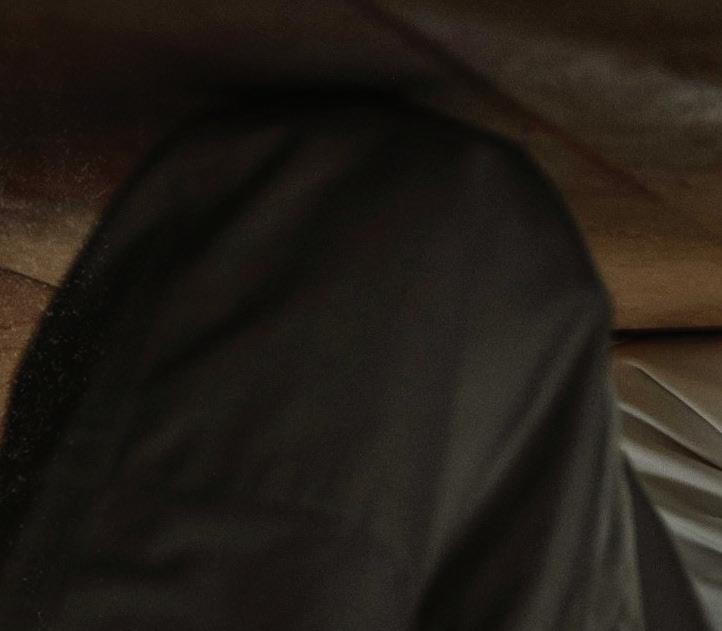


Survival strategies

The C21 Content Trends Report, a quarterly outline of the biggest trends in the business, continues in this issue with a look at what we can do to make sure we survive, and maybe even thrive, between now and 2025. By Nico Franks



“If we can all hold our nerve to the spring, hopefully we can come through this,” said Daniela Neumann, MD of London-based indie Spun Gold TV, in the last issue of this magazine. With green shoots emerging outdoors, can we say the same for the international TV industry?
“There are signs of hope with the ad market picking up a little in Q1 and some buyers’ frozen budgets beginning to thaw,” says Will Stapley, head of acquisitions at Dynamo is Dead distributor Abacus Media Rights, while admitting times remain tough for most.
featuring execs lining up to provide some reasons to be cheerful to weary delegates.
The end of TV’s “boom” period following the arrival of global streamers does not necessarily mean a period of “bust” is on the way, according to Sony Pictures Television president of international production Wayne Garvie. “Everyone knows not as much drama is being commissioned as was being commissioned. But more drama is being commissioned now than at most times in human history. That’s still great if you’re a drama producer or writer. It’s a wonderful time,” Garvie said.
Nevertheless, freelancers are leaving the industry in their droves and companies are going out of business. So what can those hanging on in there do to ensure they’re still around come 2025?




It’s easy to feel as if the content industry is in the midst of some doomsday, extinction event – and perhaps it is. While some hoped the pressures facing the business would be cyclical, there’s mounting evidence – particularly in the world of unscripted – that the industry is undergoing fundamental change that will ultimately result in fewer things being commissioned and fewer jobs.
Distribution execs heading to the final MipTV in Cannes are calling for more flexibility when it comes to how broadcasters and platforms manage rights. Dylan Casella, head of acquisitions and coproductions at O the Fence, believes there needs to be a “much more generous attitude towards sharing rights as the whole industry shifts to a more coproduction-






“The polarisation between premium event television on the one hand and returnable, cost-e ective, long-running shows on the other has never been greater, and the demand for mid-range content is significantly reducing,” says Emmanuelle Namiech, CEO of Passion Distribution, seller of shows such as Help! We Bought a Hotel



O the Fence is leaning into history with series
There are reports of award-winning unscripted entertainment workers in the US turning to Uber and DoorDash to make ends meet due to Hollywood cuts and a severe shortage of work as the industry contracts.

and a severe shortage of work as the industry contracts.
as we have known it since the inception of colour unscripted workers in their thousands signed a shifts focused approach.”



North American unscripted TV veteran Phil Gurin declared in February that “the television industry as we have known it since the inception of colour broadcasting is dying,” while across the pond, UK unscripted workers in their thousands signed a petition similarly claiming “UK TV production is dying.”





In scripted, things appear a little less dire, with panels at Series Mania in March



10
THE C21 CONTENT TRENDS REPORT: Spring 2024 Channel21 International | Spring 2024
Dynamo is Dead
The Connected Set’s Dating in the Metaverse
such as Flying Knights, which looks at the history of aviation and is timed to coincide with Steven Spielberg’s Apple TV+ series Masters of the Air, a ‘miniseries’ with a US$250m-plus budget.
Some producers, such as UK-based The End TV, are adapting by moving from traditional broadcast TV to specialising in branded content. James Lessell, MD and founder at The End TV, explained on LinkedIn recently how he made the shift and amassed a new network. The company now produces formatted TV shows for brands.
“I created a database of contacts and a status. Name, company, date of last contact and where I am with them. I update it every day,” wrote Lessell, adding: “I like to build rapport before scheduling meetings. Yes, I ask for a chat, but I never try to schedule a meeting in my first contact. It has never worked on me.

James Burstall, CEO of Argonon and author of The Flexible Method: Prepare to Prosper in the Next Global Crisis
In an era of permacrisis, where producers and content companies are facing both structural and economic challenges, a strong development pipeline needs to focus on both today and tomorrow. Our twin-track strategy of high and low is bearing fruit, as we develop high-end projects to drive long-term growth as well as low-cost, highvolume commissions to plug gaps in libraries and schedules, and keep our talented teams busy.

Emmanuèle Pétry Sirvin, producer and head of international, Dandelooo Keep breathing. In and out... deeply. Dark days are always followed by sunny ones. My own way is to stay focused on the horizon and push back doom and gloom. More specifically, in our studio – Ooolala in Valence, France – we are thinking about how AI integration can help increase the competitiveness of our pipeline.

“Success takes time; I try not to rush the process. It won’t happen overnight, so be patient. Most importantly, be adaptable, kind, honest and don’t give up.”

Jason Mitchell, founder of Dating in the Metaverse producer The Connected Set, has encouraged the TV world to embrace the latest wave of AI tools to become more e cient and stay ahead of the curve. He recently travelled to LA for meetings with networks, streamers and producers and was pleasantly surprised by what he found.
“On this trip it’s become clear there’s creative dealmaking to be done around rights, territories and alternative funding models. With so many energising conversations from this trip, I’d say it’s a great time to be exploring the US market, especially if you’re feeling gloomy about the state of commissioning in Britain,” said Mitchell.

Bailey Mackey, CEO, Pango Productions
We want to see where we can collaborate and gain scale. We would love to look at potentially merging with or acquiring other businesses. For us to gain scale, it can’t just be about coproduction; sometimes the best way is through M&A. We’re looking long and hard at that as a strategy. Also, all sports are looking at moving from being business-to-business to business-to-consumer and see content as a way of engaging audiences and building connections with their fans and fandom.

Andy Harries, co-founder, Left Bank Pictures
This country needs a TV industry that remains distinctive, independent and competitive with US global media companies. Let’s work together to find an inventive way to ensure all our public broadcasters are a continuing part of the national debate with their drama, and they have some protection and the funds to make the shows that can shine a light on our lives in the UK and, sometimes, make a di erence.

Monica Levy, co-chief of distribution, Federation Kids & Family
Navigating the rapidly evolving television industry necessitates taking proactive steps. We are encouraging team members to take swift and independent decisions, which not only enhances productivity but also fosters resilience in the face of challenges, ensuring a positive and motivated team spirit.

Kate Beal, founder and CEO, Woodcut Media
A diverse content o ering to multiple clients is key. If one
Off the Fence history series Flying Knights
genre becomes more favourable then we will absolutely lean into it, but not at the cost of our other programming strengths. Television fashion can be fleeting, as can your relationships with key networks. Hence it makes sense to have excellent contacts with multiple buyers at any one time. Never rely solely on your best friend at one network to keep your business in good health, as executives do change companies and roles from time to time. Judicious investment in content is crucial for any production company this year to keep the production wheels turning.

Will Stapley, head of acquisitions, Abacus Media Rights
Everyone in the market is having to be creative in finding cost-e ective models for funding productions, whether through gap financing, pre-sales, distribution advances or attaching brands, private equity, grants or soft money via international coproductions. On occasions, we bring in thirdparty financiers to help fund bigger budgets. We are seeing some producers o setting expensive development costs through creating digital shorts and podcasts that can then be pivoted into TV features/series.

Tim Du y, meditation teacher and former senior Viacom (now Paramount) exec
Entertainment industry workers must take it upon themselves to adapt and move forward with their lives. It’s time to let go. Are you in post-production? Flow towards AI companies, in-house brand studios and so on. A producer/director? Flow towards brands, or use your skills as a team leader and critical thinker to solve problems that inspire you in growth industries. A development executive? Business development and sales are your skills: flow towards growth industries that need you.
Channel21 International | Spring 2024 THE C21 CONTENT TRENDS REPORT: Spring 2024 11







Sora coming
OpenAI’s recently unveiled text-to-video AI tool Sora has sparked shock and awe across the entertainment business. Does it herald the dawn of a new age of content creation?


In the last edition of Channel 21 International magazine in January we wrote that while OpenAI – the Microsoft-backed company behind ChatGPT and DALL-E – hadn’t announced anything yet, the expectation was that its groundbreaking AI technology would soon be “capable of converting text or voice prompts into multimedia instantaneously.”
War II soldiers and Vikings, for example, as people of colour.





 By Jonathan Webdale
By Jonathan Webdale



On February 15, CEO Sam Altman unveiled Sora, “an AI model that can create realistic and imaginative scenes from text instructions.” While the description of this new tool was somewhat understated, the reaction from certain quarters of the film and TV industry was swift and emphatic.
A week later, Tyler Perry – the US actor and filmmaker who established his own studio in Atlanta almost a decade ago, which has gone on to host shows including The Walking Dead and hit movie Black Panther – told The Hollywood Reporter that having seen Sora, he had put a planned US$800m expansion of the facility on hold.
The interview was published a day after James Hawes, director of Apple TV+’s Slow Horses, told a government inquiry into the future of the UK film and high-end TV business that Sora meant the “genie is out the bottle” and it will be possible for AI to generate entire TV series within three to five years.
Altman’s unveil (via X) took the wind out the sails of Gemini 1.5 – the latest tool to emerge from Alphabet’s Google DeepMind AI division – which launched on the same day but was met with a very different response, not least because its image generator made a string of embarrassing gaffes, depicting German World
While Alphabet gets its house in order, OpenAI is pushing ahead with Sora’s development, though –the company insists – doing so in concert with key stakeholders within the creative industries. The tool, which for the time being can create videos of up to one minute from whatever prompts it is given, isn’t yet available to the public and is in the hands of select OpenAI ‘red teamers.’ Access has also been granted to “a number of visual artists, designers and filmmakers.”
The aim, according to the company’s website, is “to gain feedback on how to advance the model to be most helpful for creative professionals. We’re sharing our research progress early to start working with and getting feedback from people outside of OpenAI and to give the public a sense of what AI capabilities are on the horizon.”
Read into this what you will but bear in mind that, at the same time, the New York Times is suing both OpenAI and Microsoft for copyright infringement in a case that is growing increasingly ugly, with Microsoft in response accusing the newspaper of acting like Hollywood in its futile 1970s fight against VCRs.
The big question over Sora, of course, is what material its AI model is being trained on. According to OpenAI, this is data from publicly available content and content the company has licensed. While the New York Times is going down the path of litigation, Germany’s Axel Springer is an example of a media group that has reached a formal agreement with the
12
THE C21 CONTENT TRENDS REPORT: Spring 2024 Channel21 International | Spring 2024
A new level of realism: all of these images are stills from videos generated by Sora based on text prompts


Mustafa Suleyman, co-founder, DeepMind, co-author, The Coming Wave
AI is far deeper and more powerful than just another technology. The risk isn’t in overhyping it; it’s rather in missing the magnitude of the coming wave.
Jeffrey Katzenberg, co-founder, DreamWorks Animation
In the good old days, it took 500 artists five years to make a world-class animated movie. I don’t think it will take 10% of that three years from now. If you look at how media has been impacted in the last 10 years by the introduction of digital technology, what will happen in the next 10 years will be 10 times as great. AI as a creative tool has so much opportunity around it.


Tyler Perry, actor, filmmaker, founder, Tyler Perry Studios
I was in the middle of an US$800m expansion at the studio, which would’ve increased the backlot a tremendous size – we were adding 12 more sound stages. All of that is currently and indefinitely on hold because of Sora and what I’m seeing.
Kenton Allen, CEO, Big Talk Studios
When you see Tyler Perry cancelling an US$800m investment in Atlanta because he’s seen Sora and what that delivers, that’s alarming, but AI is a tool that we do use and will use more. It’s a huge threat to the VFX industry but it will enhance what we do.




James Hawes, vice-chair, Directors UK
My worry is that if we don’t get up to speed with this then the AIgenerated stories will come from elsewhere. We need to take note and act on it now. Silicon Valley is way ahead.
Richard Osman, producer, TV presenter and host of podcast The Rest is Entertainment
The industry will be hollowed out. At the top end there will always be projects with gatekeepers, done by people already in the industry who already have connections, and at the bottom end there will be loads of scrappy producers and content creators. It’s the stuff in the middle that goes – linear television, the background stuff we watch day to day.

Jes Brandhøj, director of sales and series acquisitions, Nordisk Film; co-founder, Prompt Collective
Sora videos are impressively realistic. Imagine the possibilities if we no longer needed expensive shoots for breathtaking scenes – less need to, say, travel to faraway places to hurl Tom Cruise off a cliff on a motorcycle.



tech firm, at least regarding ChatGPT.
Those that have taken the same route with Sora are yet to be revealed, but the unfolding story is looking a lot like that of YouTube and how, once Google bought the business in 2006, Viacom sought US$1bn in damages for copyright infringement. The two parties finally settled after seven years. In the interim, Google took steps to appease other concerned IP owners and persuaded them to engage with its technology to find new ways of monetisation together.
When Netflix moved into streaming in 2007, the threat to Hollywood perhaps wasn’t taken all that seriously, or, rather, the licensing dollars the firm was offering proved irresistible at a time of economic crisis.
In 2024, global financial markets are again on a knife edge. Hollywood is once more in flux – slashing costs after belatedly investing heavily in streaming and still reeling from six months of strikes, with
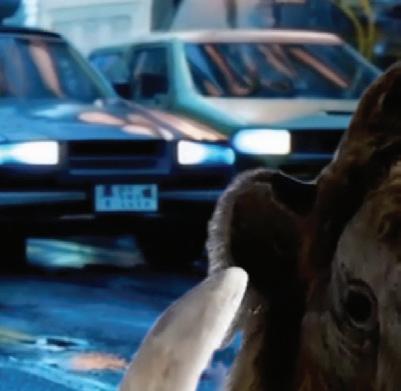
Marques Keith Brownlee (aka MKBHD), YouTuber
This does feel like another ChatGPT/DALL-E moment for AI. Maybe I’m overreacting because I’m a video creator, so an AI that’s actually doing my job maybe feels a little more threatening. But I’m particularly impressed by it – this stuff is really good.
advertising too in a potential death spiral. There has arguably never been a greater imperative to extract value from the vast treasure troves of content amassed during the past decade, and the window of opportunity to do this is perhaps narrowing.
Indeed, if you believe AI maximalists, Sora may offer established media players their last opportunity for a sizeable pay cheque before the industry gets swept away in a tsunami of usergenerated content, the like of which YouTube has never seen before. Whether they are willing to accept will depend on the amount OpenAI is offering, how desperate they are and the degree to which they buy the existential warnings.



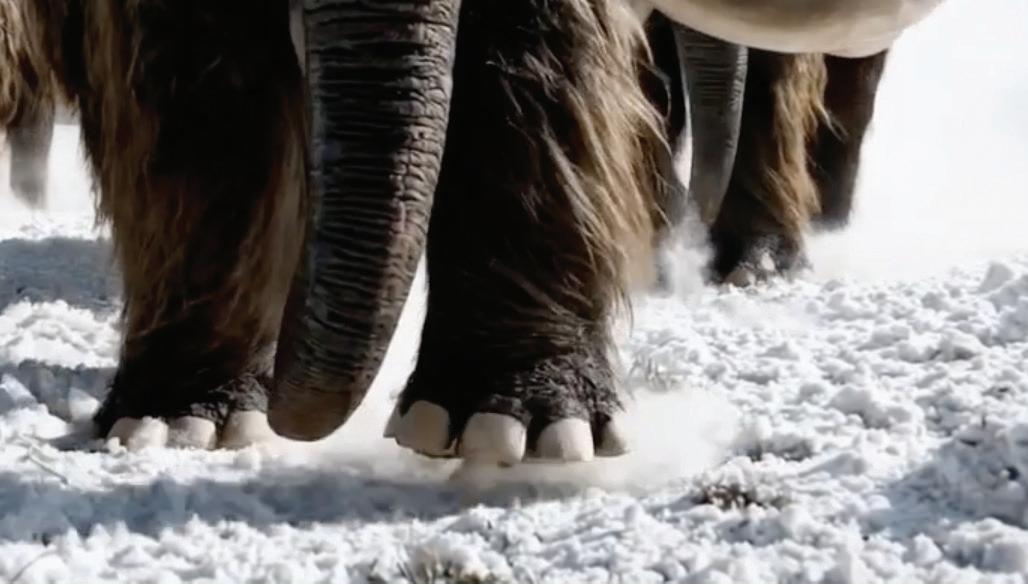

Channel21 International | Spring 2024 THE C21 CONTENT TRENDS REPORT: Spring 2024 13


Social storytellers

With new TV shows o en going undiscovered by audiences whose attention is more divided than ever, launching fledgling IP on social pla orms such as Roblox, TikTok and YouTube could be the key to finding relevancy in a fragmented digital landscape. By Nico Franks
It never hurts to pay particular attention to the children’s media sector. Many of the problems it has faced, like its viewers deserting linear TV for on-demand in the 2010s, are ones that inevitably rock the wider industry a few years later.
‘Social storytelling’ is a term that has begun being spoken about more and more in children’s media in response to its audience’s overwhelming preference for online game platforms such as Roblox and Minecraft over traditional TV.

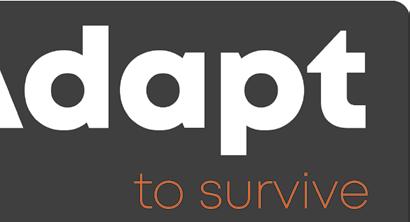

on the platform, with Twilight Daycare: The Show!
maximise engagement over just watching, they’re more likely to drive the social storytelling audience back to their platform. Engaging snippets that leave viewers curious can serve as an e ective tra c driver. By strategically intertwining social storytelling with a broadcast or subscription-based model, traditional networks might attract a new audience by using social storytelling strategies,” says Redfern.

As delegates at Content London 2023 heard from Chad Nelson, a consultant for Open AI and creator of the artificial intelligence-generated short film Critterz: “The younger generation live in a Roblox/ Minecraft world and think of entertainment as a sandbox that everyone should be able to manipulate and play with.”
Although talk about the metaverse has died down considerably since 2022, it’s clear anyone targeting a youth demographic has to develop with social platforms in mind rather than committing all their funds to a traditional 26x11’ or 6x30’ series.
“Social storytelling is a great way to extend narratives across multiple channels to reach younger audiences, creating a transmedia flywheel that is emerging as an alternative way to build IP at a time when streamers and broadcasters are largely closed for business,” says Jo Redfern, MD at Wind Sun Sky Entertainment.

An ideal-case scenario for social storytelling would see, for example, a shortform animated IP made available on social platforms like Roblox and YouTube to allow young audiences to shape the story themselves.
“It encourages direct interaction between creators and the audience. It allows for realtime feedback, and that can be valuable in informing the future direction of the narrative,” adds Redfern.

The Vancouver-based company is on board an episodic scripted series based on the Roblox platform game Creatures of Sonaria, having already made the first-ever animated series produced fully


David Levine spent 16 years at The Walt Disney Company, leaving in 2020, a few months before the media giant’s linear TV channels Disney Channel, Disney Junior and Disney XD were axed in the UK as the Mouse House went all-in on Disney+. He then spent time at Blippi and CoComelon producer Moonbug before setting up his own company, Lightboat Media.



Moreover, the doors are not closed to broadcasters, as long as they’re open to a flexible approach to launching programming.
“If a broadcaster can
The firm recently consulted with the producer of an animated series that has become popular on YouTube. To deepen engagement with viewers, as well as entice traditional broadcasters towards the IP and a potential new series, Lightboat developed a digital-first shortform series based on the property.
Working with the original creators and using a lower-cost studio to replicate the original

Shortform scripted platform Reelshort
14 THE C21 CONTENT TRENDS REPORT: Spring 2024 Channel21 International | Spring 2024
Gecko’s Garage
company is on board an
Roblox


2D designs, it drew heavily on viewer data to understand which characters, storylines and setups would resonate best on YouTube, giving the new series a better chance to succeed.
So what advice would Levine give to broadcasters and networks looking to get involved in social storytelling?
“It’s not just clips; the content needs to fit the platform. It doesn’t need to be the fully blown iteration of the IP, honing the content to the core characters, relationships and set-up to start,” says the exec.
“Tap into producers and creators that know the platforms and understand how to make content for those platforms. Even if the final product is envisioned to be CG, start out with lower-cost 2D; as the IP moves up the ‘food chain’ the format can evolve. Great examples of this are Moonbug’s Gecko’s Garage and Morphle.”
Meanwhile, an eight-hour saga of a marriage

gone wrong, titled Who TF Did I Marry?, may sound like something you see while scrolling through the Netflix carousel, but it was actually uploaded in 50x5’-10’ episodes on TikTok by creator ReesaTeesa in February.
Teesa became an overnight internet celebrity, capturing the attention of millions with her tale of a toxic relationship while highlighting the power of bitesized social storytelling. Meanwhile, Chinese shortform scripted platform Reelshort seems to be succeeding where Quibi failed by adding gamification elements and rewards for watching.
“Young people haven’t got shorter attention spans, they’ve just got shorter interest spans,” says Redfern.
With this in mind, in New Zealand, writer and video games and interactive experiences director
Mark Loughney, senior consultant, Hub Entertainment Research
There’s no doubt that younger viewers are not as devoted to traditional TV and movies as previous generations have been. This presents one more challenge to legacy media companies as they navigate the future of the video ecosystem. It would be futile for them to try to claw back time from non-traditional platforms, so instead media companies should look to social media as opportunities to reach GenZ with premium content.

Evan Shapiro, media universe cartographer
We’re in a magic moment when the creator-led community, the community economy, is going to wind up being the most important part of the content ecosystem. The most important, diverse, inclusive, representative and inventive stories are going to come from artists using technology to empower themselves. There have never been better tools to compete with the studio system, which is limping. They are in danger and a lot of them won’t be here in five years.

Todd Lichten, head of entertainment partnerships, Roblox
It’s clear that the Kung Fu Panda franchise has found a perfect home on Roblox, but success on a competitive UGC [user-generated content] platform requires more than just a beloved IP. Props to Universal Pictures’ digital marketing and media teams for their innovative approach to delighting discerning fans – and to Sawhorse Interactive for crafting a compelling two-player obby [obstacle course] that’s set a new bar for theatrical marketing on the platform. So much other great work is coming from entertainment in the next few months on Roblox.


Alexander Swords is hosting an introduction to ‘narrative design’ in Auckland in April.
Narrative design is described as the process of understanding a story as a system to allow storytellers to better connect to both play and interactivity, for games, extended reality and live choice-driven experiences. It also gives a look ‘under the hood’ at how story functions on a meta and micro structural level, which can help linear storytelling move away from rigid conventions.
So prepare to see ‘narrative designer’ or ‘social storyteller’ on a few more (digital) business cards in the years ahead. Who
Jo Redfern, MD, Wind Sun Sky Entertainment
Consider a scenario where a YouTube animated series introduces characters and plotlines that seamlessly transition into a Roblox experience. Kids then contribute to the narrative with their activities in-game. With good monitoring, this could help inform subsequent storytelling by informing writers which characters, vehicles, animals and scenarios are engaged with most within the game. Then they could be up-weighted in subsequent episodes.

Rob Doherty, media executive and consultant
Our audience is no longer where it used to be, nor as passive, and we are struggling to reach it with traditionally executed content. The new generations of audiences are better informed, better equipped and far more in control of what they want. Not only that but in their social virtual universes they can now create their own content more easily than ever before. Engaging them in new ways, through social storytelling and other means, should be the primary focus of the industry right now.

David Levine, founder and consultant, Lightboat Media
Developing brand new IP has never been more challenging, and creating a digital-first iteration of the idea/concept/ IP as a way to build awareness for it is clearly a way to lower the risk involved. Given the low RPM [revenue per mille, representing how much money is earned per 1,000 video views] for YouTube kids content, finding a way to create an all-audience IP, appealing to a broader advertiser set with higher RPM, as a backdoor pilot for a kids IP, would be an interesting way to go. The cost to enter into Roblox is lower than the YouTube/animated series route, with faster ways to generate views, but it’s challenging as a recoupment model.
15
Marry?
TF Did I
|
Channel21 International
Spring 2024
THE C21 CONTENT TRENDS REPORT: Spring 2024
Twilight Daycare: The Show!





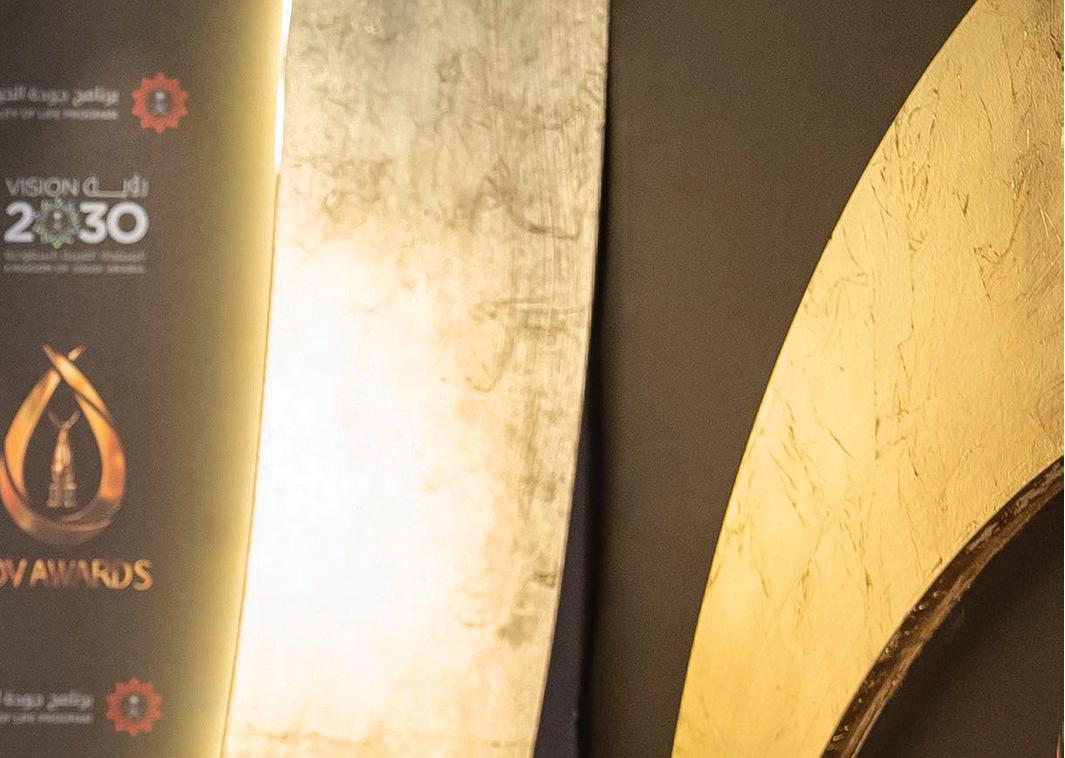

Expanding gulf
RedBird IMI’s acquisition of All3Media and the former’s attempts to buy influential UK newspaper The Telegraph have highlighted the growing role of Middle Eastern money in financially challenged Western media and entertainment.
 By Jonathan Webdale
By Jonathan Webdale



The long-running saga over the ownership of All3Media ended in February when private investment company RedBird IMI agreed a £1.15bn (US$1.45bn) deal for the European production and distribution group behind series including The Traitors, Squid Game: The Challenge, Fleabag, Midsomer Murders and many more.
All3 was by no means short of suitors, and after UK newspaper The Telegraph (more on this shortly) revealed in June last year the firm was being auctioned by joint-venture parents Warner Bros Discovery and Liberty Global, a string of interested parties were linked to the sale, including Banijay, ITV Studios, Peter Chernin’s The North Road Company, Sony and Goldman Sachs.
Some of these bidders are said to have baulked at All3’s £760m
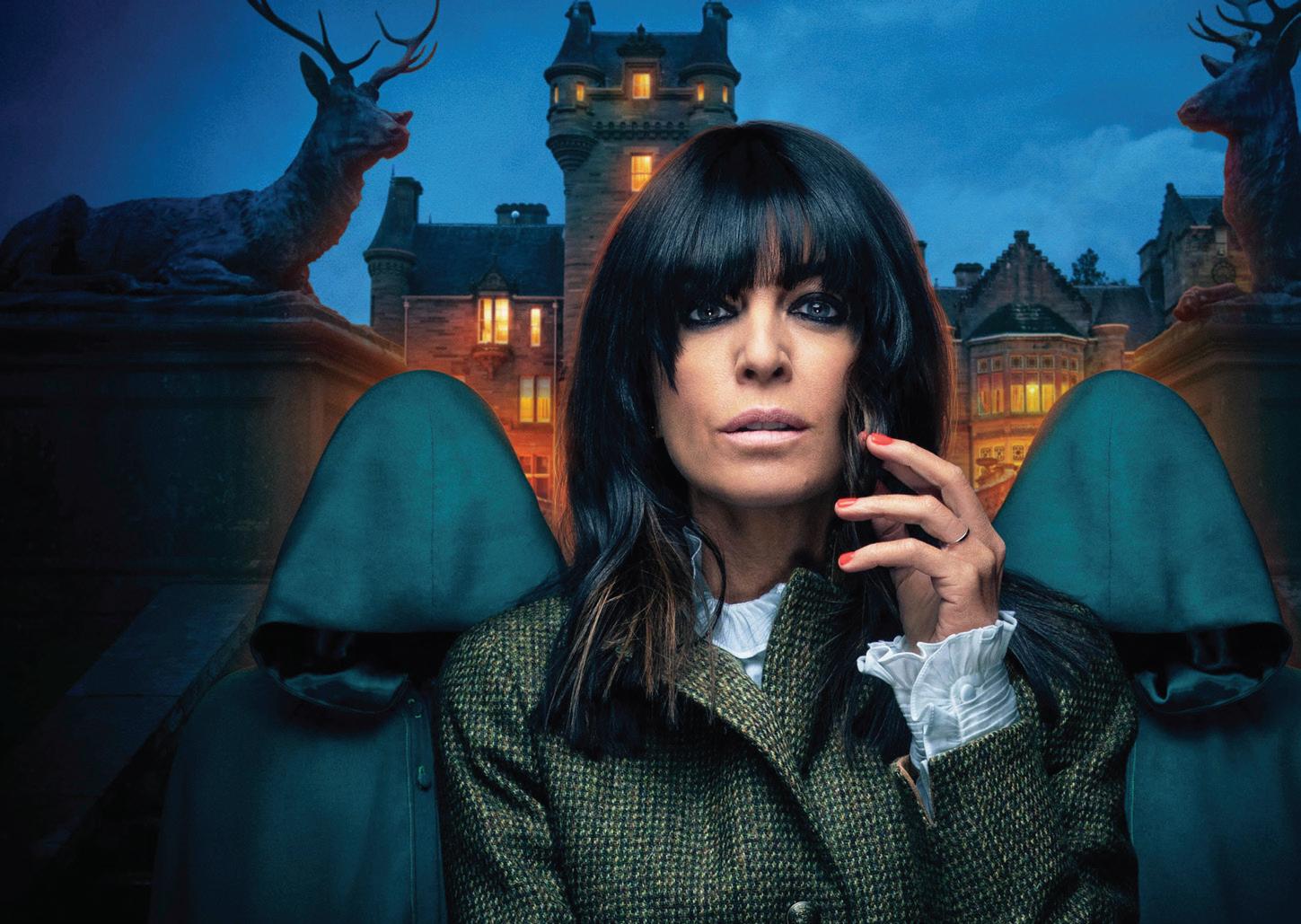
debt burden, but not RedBird IMI –a joint venture between US private investment firms RedBird Capital Partners and Abu Dhabi-based International Media Investments, established in December 2022 with former CNN boss Jeff Zucker at the helm as CEO. New York-based RedBird Capital,
led by founder and managing partner Gerry Cardinale, previously helped finance a number of media and entertainment ventures. It backed a new Ben Affleck and Matt Damon prodco called Artists Equity, took a minority stake in Maverick Carter and LeBron James’s The SpringHill Company and has invested in David
Spring 2024
Anthony Hopkins at the 2024 Joy Awards
All3Media’s The Traitors
Ellison’s Skydance Media – a potential acquirer of Paramount Global.
IMI, meanwhile, is a private company owned by Sheikh Mansour bin Zayed Al-Nahyan, vice president and deputy prime minister of the United Arab Emirates and, since 2008, owner of English Premier League club Manchester City. IMI holds investments in digital and linear entities including The National, Sky News Arabia, CNN Business Arabic and The Grid. Former CNN high-flier Rani R Raad was appointed CEO in September last year, taking over from Nart Bouran.
Mansour, brother of the current UAE president Sheikh Mohamed bin Zayed Al Nahyan, is 75% owner of RedBird IMI, with RedBird Capital retaining the rest. Aside from All3, the company last summer helped establish New York-based non-fiction producer EverWonder Studio, founded by former Time president and chief operating officer Ian Orefice, and this January invested in Media Res, the Michael Ellenberg-led prodco behind programmes such as Apple TV+ series The Morning Show and Pachinko

The deal that has attracted most attention, however, has been RedBird IMI’s attempt to buy The Telegraph and sibling political magazine The Spectator. The company’s move to pay off £1.2bn of debt on these entities in advance while a formal bidding process was still underway inevitably drew the ire of rivals. UK journalists, too, uneasy at the UAE’s track record on impartiality and human rights, have voiced concerns. Politicians, particularly those among the ruling Conservative Party, to which the right-wing Telegraph and Spectator lean, have moved to block the transaction, seeking to ban foreign governments from owning UK newspapers or magazines.
RedBird IMI’s Zucker argued in a recent interview with The News Agents podcast co-host John Sopel that IMI is not a government sovereign wealth fund, rather a commercial entity, and that the UAE doesn’t need to own a UK newspaper to exert influence since
it is already a close ally. While the drama was still playing out at the time of writing, the story highlights Middle Eastern investors’ growing appetite for Western media and entertainment businesses and their ability to offer vast sums in order to achieve these ends at a time when such enterprises are struggling.
Of course, the concept of ‘soft power’ is nothing new and Hollywood is arguably one of its greatest purveyors, propagating American culture and values around the world, with Skydance blockbuster movie Top Gun: Maverick cited by some as a recent case in point. And the UAE is by no means alone in seeking a piece of the action but its increased interest, along with that of fellow Gulf states such as Saudi Arabia and Qatar, is notable, mostly for its investments in sports but also in broader entertainment.
Abu Dhabi-based MBC Group, the Middle East’s largest broadcast and media outfit, relocated its headquarters to Riyadh 18 months ago, with both hosting the annual Joy Awards, which this February attracted stars including Anthony Hopkins, Kevin Costner and Mark Wahlberg. Last year’s Red Sea International Film Festival in Jeddah drew Johnny Depp and a host of others, and, through its foundation, is helping finance the Pirates of the Caribbean star’s next feature, having funded others including Michael Mann’s Ferrari. The two events have been growing over the past three years.
Meanwhile, Saudi Arabia’s Crown Prince Mohammed bin Salman’s sovereign wealth fund reportedly paid US$200m for a stake in Penske Media, owner of US trade publications Deadline, Variety and The Hollywood Reporter, in 2018. US talent agency Endeavor (now Fifth Season) received US$400m from the same source around that time but, following Saudi Arabia’s connection to the brutal murder of Washington Post journalist Jamal Khashoggi later that year, returned the funds in 2019.
Elsewhere, Vice Media has been accused of going soft on the kingdom, having initially pulled out of the Middle East after Khashoggi’s death but subsequently opening an office in Riyadh in 2023 under former CEO Nancy Dubuc and forging ties with MBC shortly before filing for bankruptcy.

Rani R Raad, CEO, International Media Investments
Our ambition is crystal clear: to build IMI into a forwardthinking global media powerhouse. We already own and operate some of the strongest media properties in the region encompassing both international and local brands. We now have the opportunity to grow these assets, expand our audiences and operate at more of a global level. With the way the MENA region has developed over the last few years, it is now the right time to play a bigger role in the global media sector.
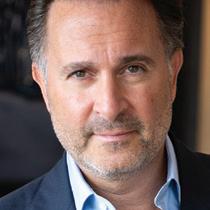
Gerry Cardinale, managing partner, RedBird Capital
Our job as private equity investors is to grow the value of our businesses, not to influence content or editorial direction. We don’t tell David Ellison what movies to make or not make at Skydance; we don’t tell Ben Affleck or Matt Damon what movies to make or not make at Artists Equity; and we don’t tell LeBron James and Maverick Carter what projects to take on or not take on at The SpringHill Company.

Jeff Zucker, CEO, RedBird IMI
Red Bird IMI was set up more than a year ago as a commercial joint venture that was looking for media opportunities across news and information and entertainment across the global landscape. The UAE doesn’t have to own a newspaper in the UK to have influence and the fact is that IMI is not the UAE, it’s a business of one of the leaders of UAE that is set up for commercial returns.
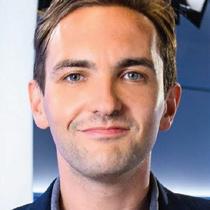
Lewis Goodall, co-host, The News Agents
We are living in a world where we are seeing the rapidly growing influence of Middle Eastern money. It is infusing every walk of life and industry across the West, and in that context it would be odd if big legacy media titles weren’t on the table, particularly in a world where it is so difficult for them to compete. This is a foretaste, potentially, of what’s to come.

Jane Turton, CEO, All3Media
Joining forces with Jeff [Zucker] and the RedBird IMI team is an exciting next step for us as we continue to build All3Media. Our strategy remains to work with the world’s best talent, developing and producing high-quality, popular programmes, and RedBird IMI’s support and investment will be key in helping us deliver this.

Michael Eilenberg, founder and chairman, Media Res
This investment will allow us to build on what we started, fuelling Media Res’s growth as a marquee supplier of premium storytelling to platforms across the globe. We are thrilled and honoured to be partnering with RedBird IMI and the incredible Jeff Zucker, who shares in our passion and vision.


Ian Orefice, founder, EverWonder Studio
It is a dream come true to have the opportunity to create a home for the world’s most talented creatives, partnering with one of the most prolific storytellers of all time in Jeff Zucker and now RedBird IMI.
Nancy Dubuc, former CEO, Vice Media Group
MBC Group is the leading media platform in the region and we are happy to help extend its reach while highlighting the vibrant, emerging youth culture in the Kingdom of Saudi Arabia.
Channel21 International | Spring 2024 THE C21 CONTENT TRENDS REPORT: Spring 2024 17
Mega takes a bite
With three slots for original local drama and five for acquired scripted content, Chile’s Mega is not your typical free-toair (FTA) television channel. At least not one that aims to be top of the ratings.
The formula seems to work, however, as shown by its o cial ratings: the network ended 2023 as the most watched television channel in Chile, after almost a decade of uninterrupted dominance.
The achievement is especially meaningful considering how fierce the competition is in the country, a relatively small market of 20 million people but recognised internationally, and especially within Latin America, for its creativity.
It is not for nothing that large international groups such as Discovery Communications, which held a stake in Mega itself between 2016 and 2023, or Paramount, which currently owns its main competitor, Chilevisión, have looked to Chile to invest.
“Our strategy is clear: we have been very insistent that scripted is the core of the channel. And on top of that add news, politics, current a airs and sports programming,” says Javier Villanueva, CEO of Chile’s Megamedia group.
Mega is the main channel of the group, which owns other FTA channels, pay TV networks, the Mega Go streaming platform and free, adsupported streaming TV channels.
And although today it enjoys an almost undisputed leadership in the market, its success is relatively recent and follows a strategic shift that began in 2013 with the reactivation of its drama department and the purchase – risky at that time – of the first Turkish drama to be broadcast in Latin America: 1001 Nights, distributed by Global Agency.
,
Today, of the five international series that Mega has on air, four are Turkish –a style of content that works especially well in Latin America and still shows no signs of flagging. Villanueva, however, hasn’t closed the doors to content from elsewhere.


Chile’s Mega has become a ratings leader in its local market by betting on local and acquired scripted. But changing audience habits mean it must evolve to stay on top. By Gonzalo Larrea



platforms. So when evaluating our programming needs, the first thing we ask ourselves is what we want to produce to feed the di erent platforms,” Villanueva explains.
“What we can’t do is to keep thinking that we are a traditional channel that needs a series for a certain block. That path leads us nowhere.”
Megamedia’s proposal is to instead think of its main channel, Mega, as the first window for its productions and maximise the return on investment from windowing on third-party streaming platforms, its own platform or its pay TV channels.
This content factory is also linked to the international strategy of the group, which has a distribution arm in Mega Global Entertainment and last year revealed plans to become an international producer.
The idea is to not just sell its scripted formats but also to produce them in other local markets, such as Peru, where it has already collaborated with local channel Latina on an adaptation of its series Papá a la deriva (Dad Adrift).
“The traditional model is based on the sale of finished programmes or formats. What Megamedia is trying to sell beyond its borders is also executive production. Since the ideas are ours, we want the adaptations to continue having the Megamedia seal.”
from Turkey, Romania or the
“I always challenge my acquisitions team to look for good content, whether it’s from Turkey, Romania or the Czech Republic. It doesn’t matter where it comes from.





and generate emotions, both
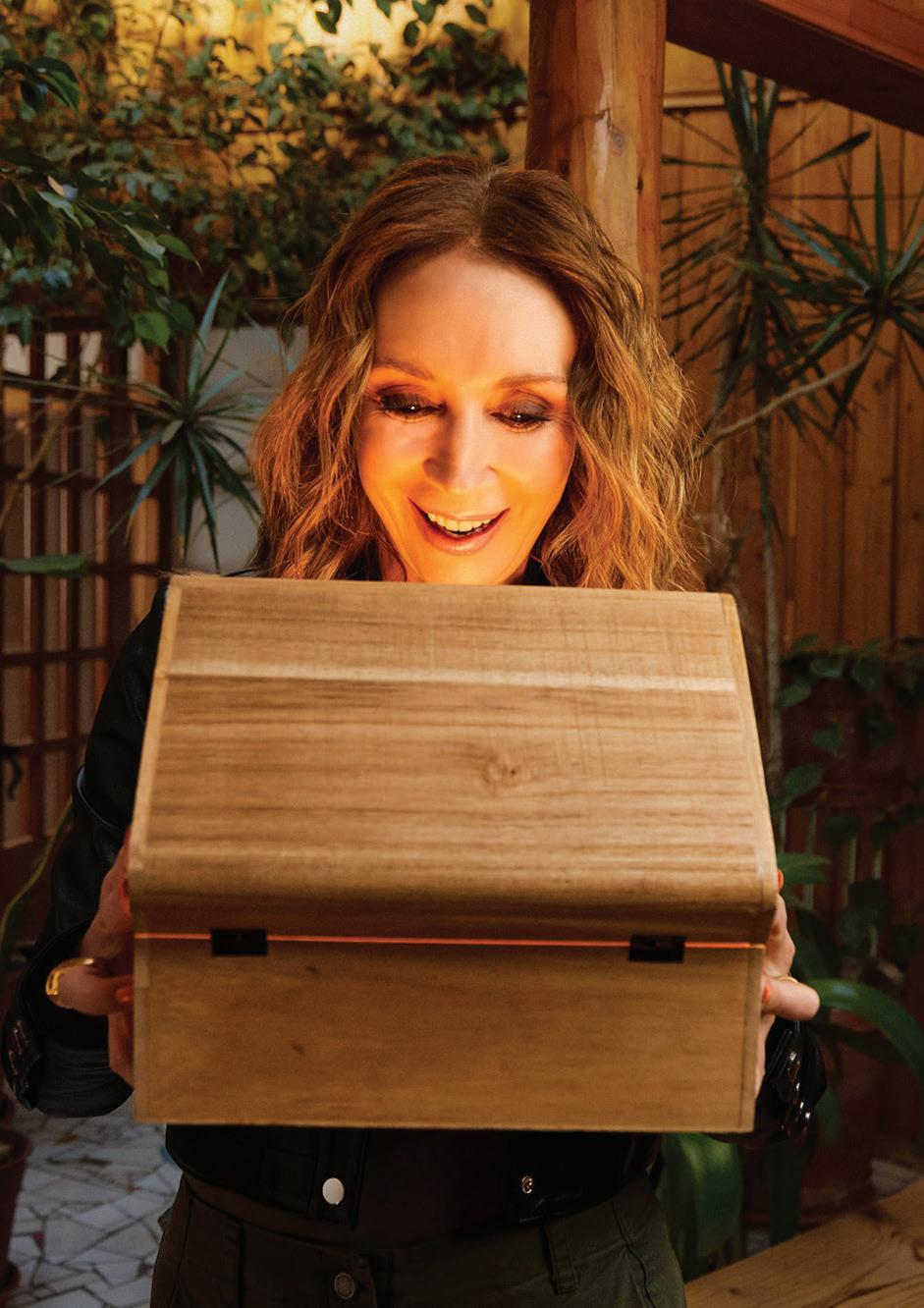



What we are looking for are shows that connect people and generate emotions, both in fiction and entertainment. Why would we refuse a good idea?”


A success with audiences in Chile in 2015, Papá a la deriva tells the story of a widowed father of four, the captain of a naval frigate, who meets a woman who changes his life.
than what it can acquire, thanks to a change in mentality by which it aims to start seeing itself as “a content factory”
“We define ourselves as a content factory that distributes through our own platforms or third-party





instead of as a channel. as factory that distributes through our own platforms or third-party entertainment.



But Mega is currently focused on what it can produce rather

Its Peruvian adaptation repeated the same formula last year and achieved similar results, to the extent that Latina and Megamedia will repeat the exercise with a second production, Pituca sin lucas, again based on a Chilean idea.
The model is doubly beneficial for Megamedia, which retains an ownership stake in the remakes. The Peruvian adaptation of Papá a la deriva has also
I always challenge my acquisitions team to look for good content. It doesn’t matter where it comes from. What we are looking for are shows that connect people and generate emotions, both in fiction and entertainment. Why would we refuse a good idea?

 Javier Villanueva, Megamedia
Javier Villanueva, Megamedia


CONTENT STRATEGIES: Mega Channel21 International | Spring 2024 18
La cabaña (The Cabin)
made its way back to Chile, aired by Mega alongside its Turkish drama imports.
To continue promoting this strategy in international markets, Megamedia has made agreements with production companies such as Mexican giant BTF Media and Fabula in Chile, led by Oscar winner Pablo Larraín, following its participation in Content Americas in Miami in January.
The idea, Villanueva explains, is to join forces with powerful local partners and go in tandem to international platforms or local broadcasters, taking advantage of the more than 30 series the channel has produced in the past 10 years.
“We have good stories and we know how to produce them, but we need to generate a network of local producers so that together we can have a much more robust product to o er,” he says.
In addition to BTF and Fabula, Megamedia is already negotiating with other production companies, including some in Spain, while it has also done deals with the likes of Netflix.
The Chilean group entered into a new partnership model with the streaming service in March, through which its primetime



series Al sur del corazón (South to the Heart) is being carried on Netflix throughout Latin America, including Chile.

“We are recognised for our television series in Chile and some other markets. But when you place your product on Netflix you reach the entire region. Many have seen the platforms as a threat, but we see it as an opportunity. It is a union of marketing and content and it is much deeper than simply broadcasting a product,” Villanueva says of the alliance.
In addition to fiction, Mega Media also works on the creation of entertainment formats. Today, its main channel doesn’t have any international formats on air. However, it does broadcast its own original shows, the latest being La cabaña (The Cabin).

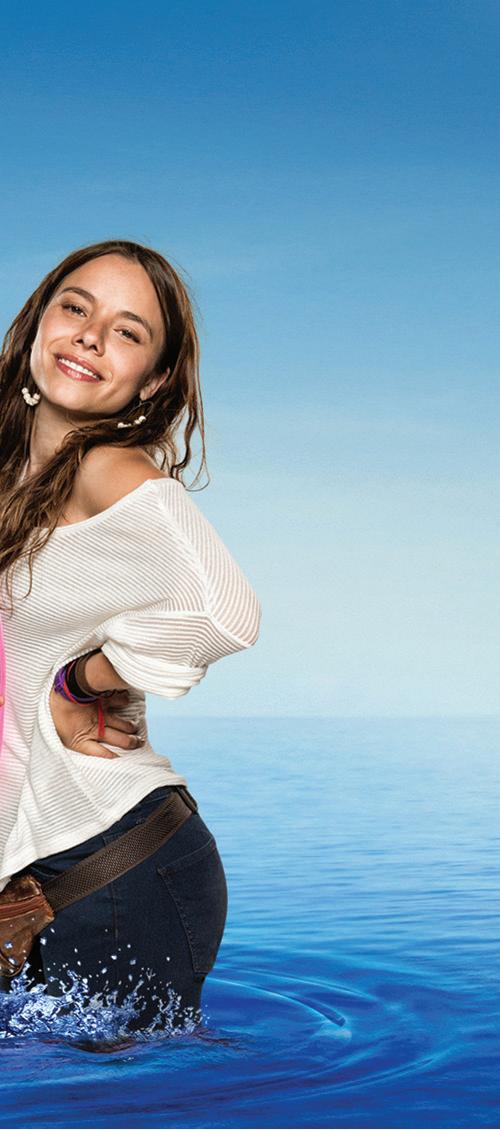

The channel has a long history of developing, producing and broadcasting originals, such as Elegidos (Chosen Ones), which combines fiction, documentary and current a airs; Los 100 indecisos (The Undecided 100), aired around elections with live debates; and ¿Volverías con tu ex? (Would You Go Back to Your Ex?), which was a ratings juggernaut in 2016 and is under “constant evaluation” for a possible return, according to Villanueva.
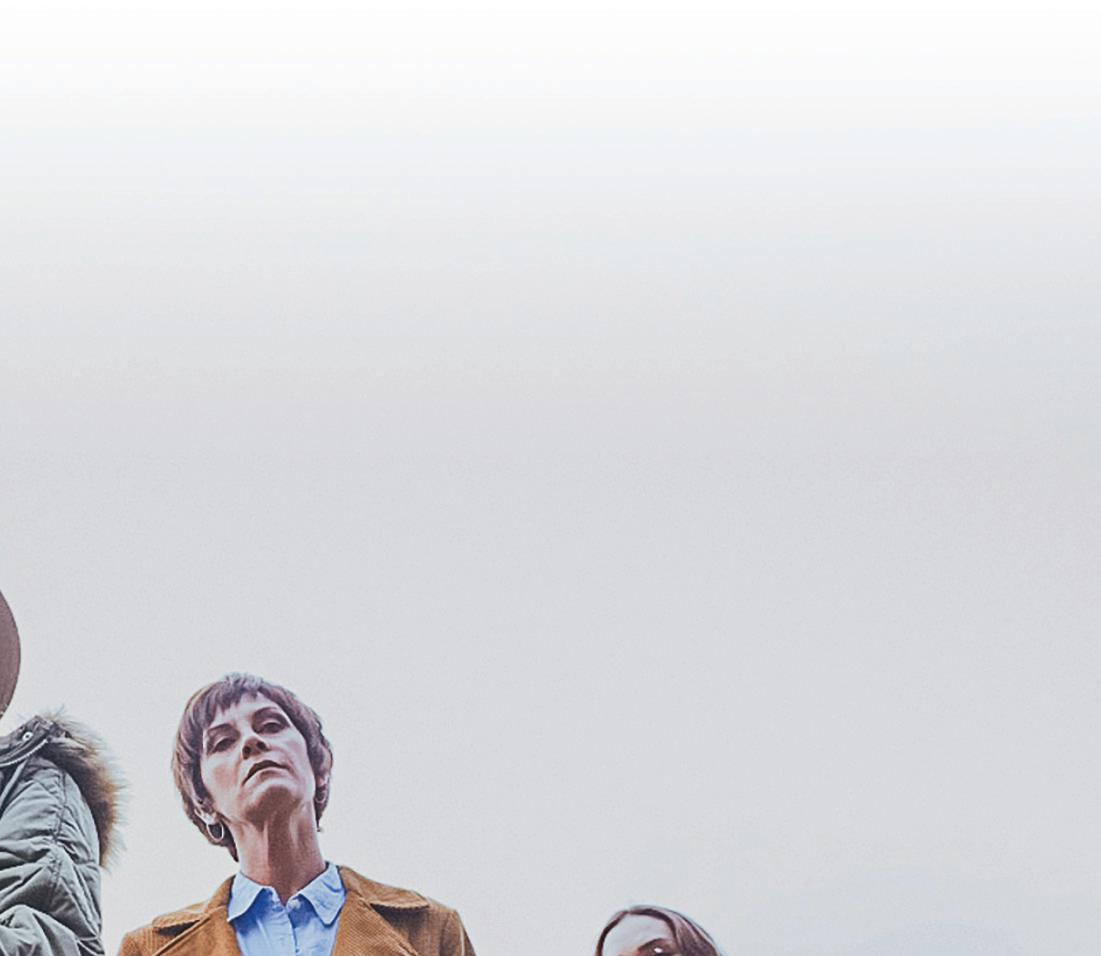
“We have several formats in the drawer, such as ¿Volverías con tu ex?, and we always assess whether it is a good time to launch them or not. These decisions depend on the moment of the channel, the company and the country,” he says.
Addressing its apparent reluctance to acquire international formats, Villanueva says there is no directive or decision by the group to not adapt foreign ideas. However, the development and production of originals is its current priority.
“You should never say never, but one of the mandates we have here is to create our own IP. When you create your own IP you can maximise your return on investment. That does not mean if a tremendous format appears from outside, we do not evaluate it. We cannot isolate ourselves from what is happening in the rest of the world and that means we always have these types of conversations. But if there are two equally good alternatives on the table and one is our own, we opt for our own,” says Villanueva.
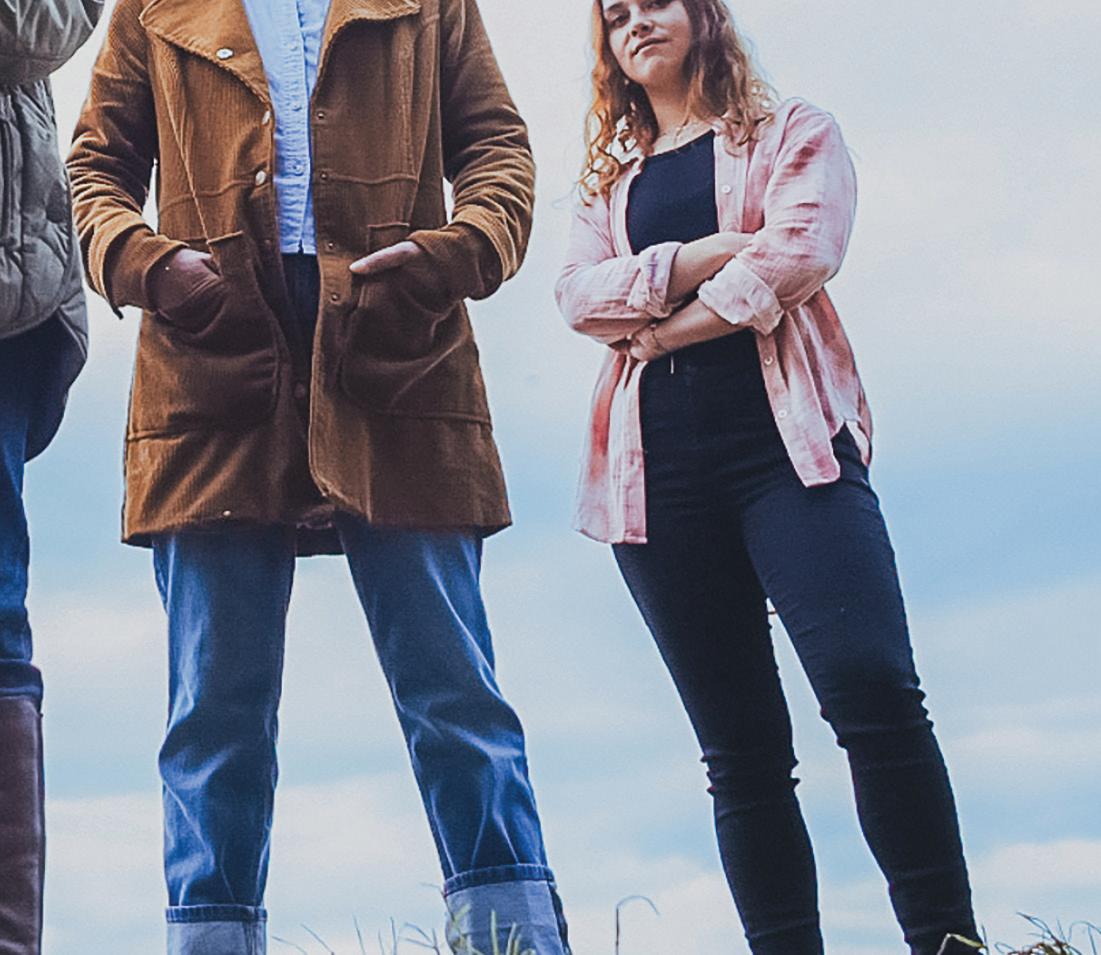
Everything, in the end, translates into the realisation by the group that times have changed, and that FTA must change its model as well as its slotbased mentality.
“We are living in a world where our competitors are no longer the other TV channels from Chile. We compete in the economy of time use, with device attention, with TikTok. And to face that change you have to adapt internally,” says Villanueva.



Channel21 International | Spring 2024 CONTENT STRATEGIES:
Papá a la deriva (Dad Adrift)
Al sur del corazón (South to the Heart)


Genre: Paranormal
Duration: 10 X 60’

Genre: Paranormal
Duration: 10 X 60’
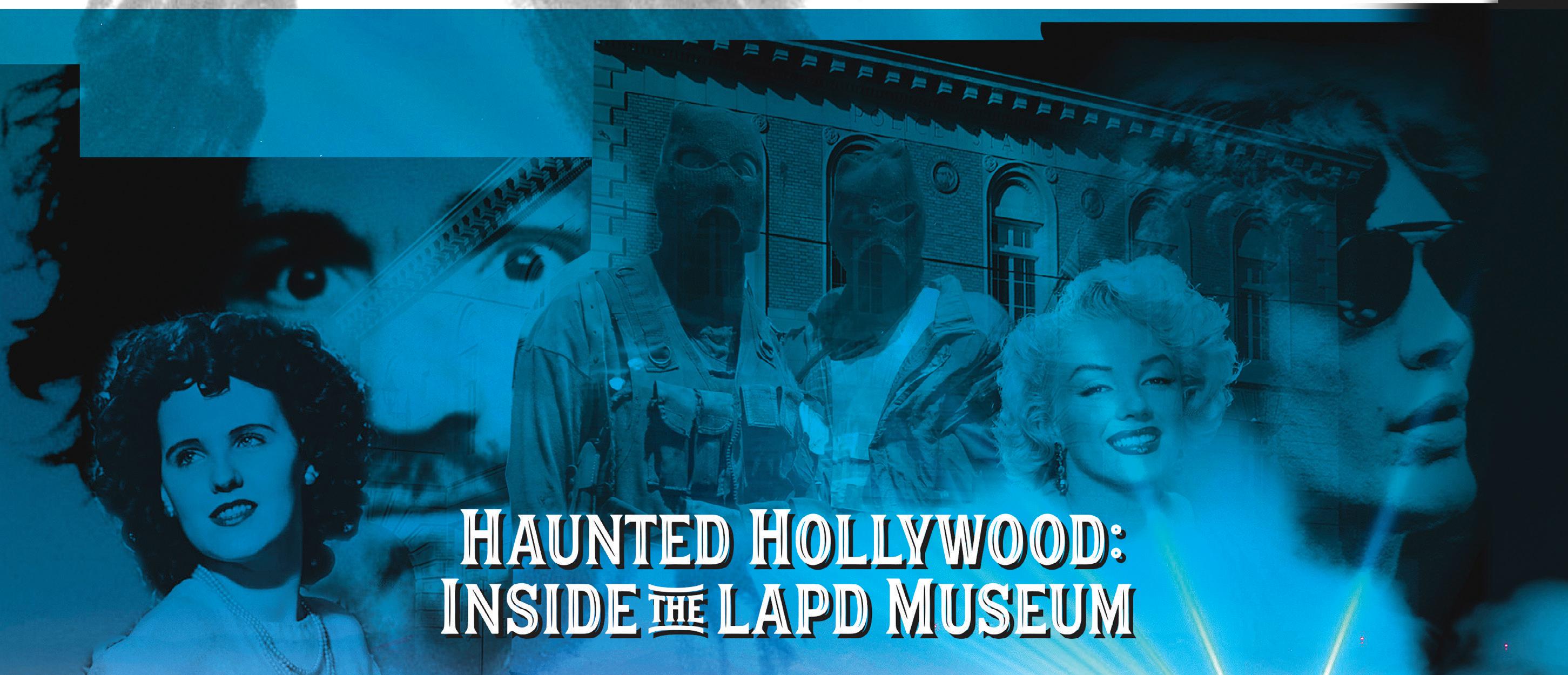
Genre: Paranormal
Duration: 8 x 60’


www.grbmediaranch.com l info @ grbmediaranch.com 300-hours of holy $%#@!
Spring surprises
Dealing with existential crises, the marvels of train travel and the supernatural are among the trends popping up in shows launching in the international market this season. By Nico Franks




Alan Cumming’s Most Luxurious Train Journeys: Scotland (4x60’)
Producers: 14th Floor Productions, GroupM Motion Entertainment
Distributor: Abacus Media Rights
They say: “It’s a beautiful piece of access and given Alan’s already a huge fan of these railways, there’s no one better to go behind the scenes and bring it all to life.”
We say: Fronted by the Scottish actor and The Traitors US host, this Channel 4 commission takes viewers on one of the world’s great rail journeys on board the iconic Royal Scotsman, and comes as the climate crisis forces us to re-think how we travel.
Cooking Buddies (10x20’)
Producer: The Jamie Oliver Group
Distributor: Cake
They say: “All about exploring new hobbies with friends and embarking on a culinary adventure: it encourages young viewers to try new things and shows you can have a great time with each other whilst doing it.”
We say: Presented by 13-year-old Buddy, son of celebrity chef Jamie Oliver, this fun cooking show with a twist follows Buddy Oliver’s success on YouTube with his Cooking Buddies channel, which has amassed over seven million views.
Eva & Nicole (8x50’)
Producers: Atresmedia TV, Good Mood
Distributor: Atresmedia TV International Sales


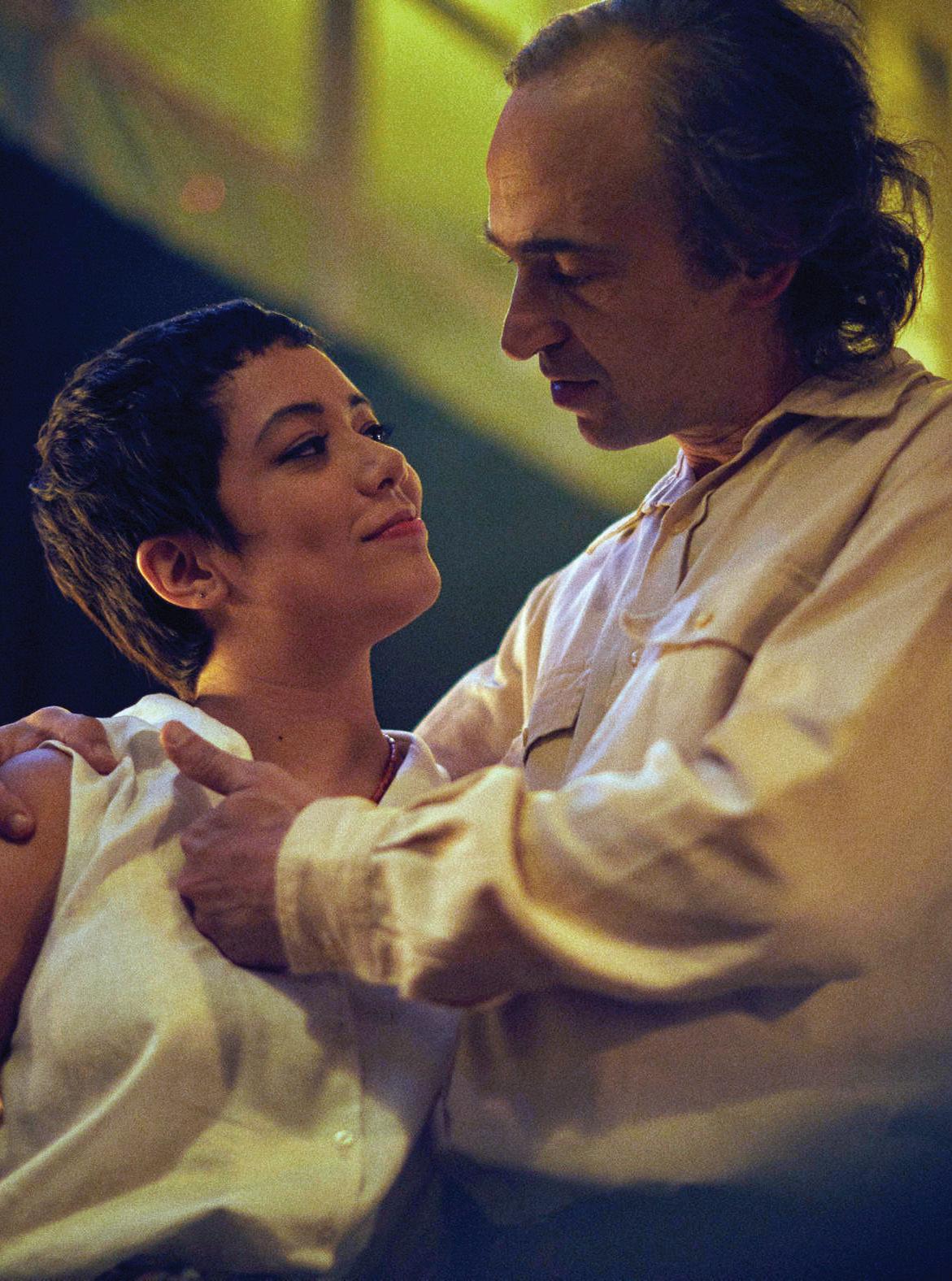
Living on a Razor’s Edge (8x45’)
Producers: AfroReggae Audiovisual, Formata Produções e Conteúdo, Globoplay
Distributor: Globo
They say: “More than a classic biopic, as it very delicately paints the portrait of a key political figure, a communist activist hunted down by the military dictatorship during the 60s and 70s and forced to go into exile.”


They say: “Tells the story of two powerful, highclass women from Marbella in the 1980s, who are facing each other due to a common past that haunts them.”
We say: One of the 10 titles selected for scripted showcase event MipDrama in Cannes in April, this series from Antena 3 in Spain promises plenty of salacious scheming in the sunshine with its plot of jealousy and revenge.
We say: The first Brazilian production selected in competition at Canneseries in April, this drama charts the struggle of sociologist Herbert de Souza, also known as Betinho, an activist who faced AIDS and haemophilia while challenging inequality and a military dictatorship.






Channel21 International | Spring 2024 NEXT BIG THINGS: 21 on 21 21
Titanic in Colour (2x45’)
Producer: Woodcut Media
Distributor: Woodcut International
They say: “The cutting-edge colourisation techniques employed will take your breath away. It was also a humbling experience to speak to some of the children of those who survived the Titanic disaster and feature in the 1912 footage.”
We say: Pre-bought by Channel 4 in the UK and SBS in Australia, this two-parter brings to life the lavish interiors of the Titanic, artefacts and clothing from passengers alongside fascinating interviews with relatives of those who sailed on the doomed liner.

The Librarians: The Next Chapter (12x60’)
Producers: Electric Entertainment, Balkanic Media
Distributor: Electric Entertainment
They say: “Centres on a ‘Librarian’ from the past, who time-travelled to the present and now finds himself stuck here.”
We say: This spin-off from the cult fantasy adventure series, about an ancient organisation dedicated to protecting an unknowing world from magic, comes from showrunner Dean Devlin and sees the welcome return of Noah Wyle (ER) to our screens.
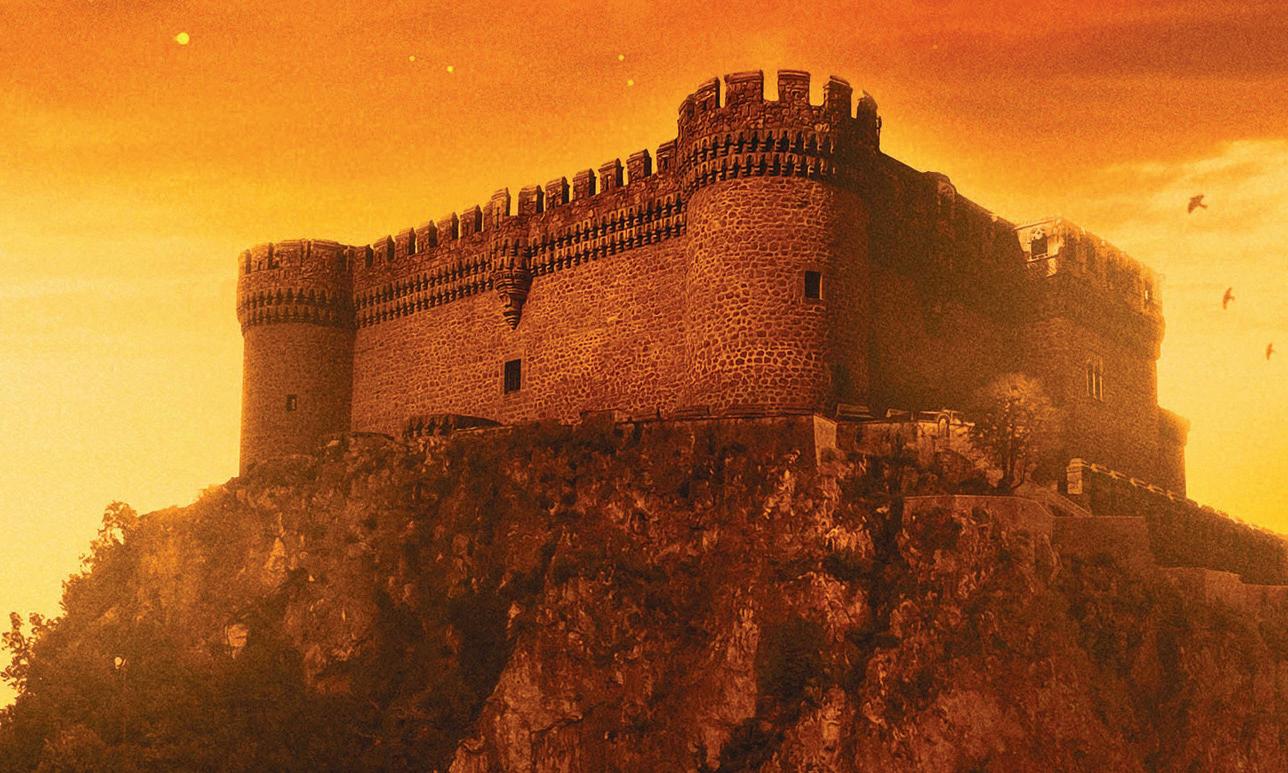
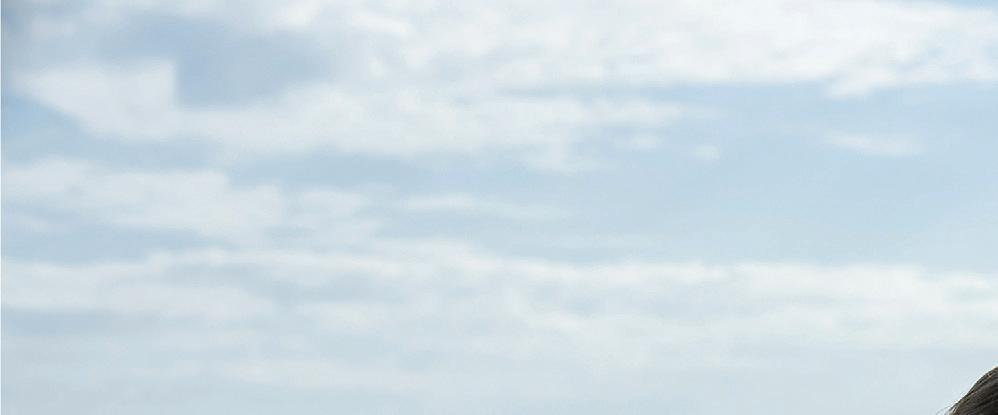
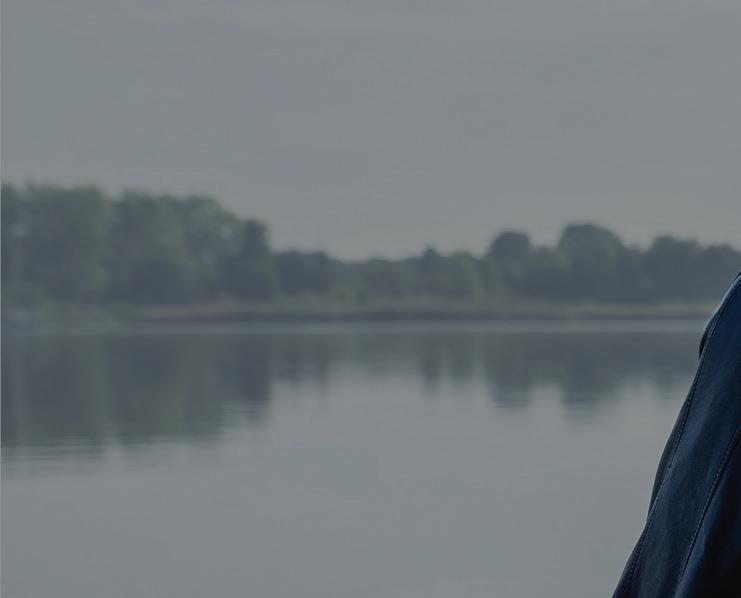
We Shall Live Together (6x45’)
Producers: Telewizja Polska (TVP), MTL Maxfilm
Distributor: TVP
They say: “Like a piece of modern history, reflecting Poland’s ties with Ukraine and its people.”
We say: The first series produced in Poland set during the ongoing war in Ukraine, this series chooses to focus on comedic and touching moments created by political turbulence rather than the brutality of war, with heartwarming results.




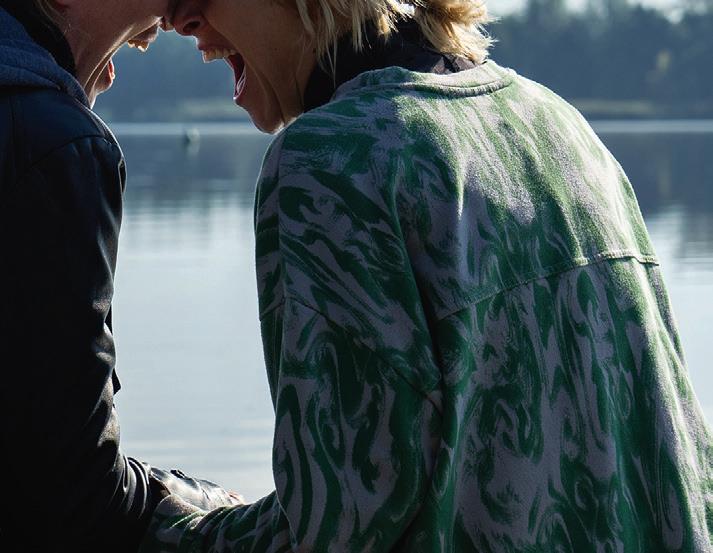


The Curse of Sugar (2x52’)
Producer: Hauteville Productions
Distributor: Arte Distribution
They say: “Reveals a global system still fuelled by the exploitation of land and people that is rooted in its original sin: slavery.”
We say: This two-part documentary series will leave a sour taste in the mouth of anyone unaware of the ills of the sugar industry and continues the relationship between the European broadcaster Arte’s sales arm and Hauteville Productions after The Blob: A Genius Without a Brain and Thatcher’s Not Dead
FGirl Island (format)

Producers: STX Entertainment, The Year of Elan
Distributor: Warner Bros International Television Production
They say: “It’s time to ‘flip the script’ and celebrate women in control in this new version of the unique social experiment-meets-dating format, where three men must avoid choosing an FGirl.”





We say: Sexually liberated, ambitious and empowered women play the men off against each other for sport in this twist on the dating show FBoy Island, one of the most popular reality originals on Max in US when it launched.
, one of the most popular reality







NEXT BIG THINGS: 21 on 21 22





The Listeners (5x60’)
Producer: Element Pictures
Distributor: Fremantle
They say: “Explores the seduction of the wild and unknowable, the human search for the transcendent and the desire for community and connection in our increasingly polarised times.”
We say: Part of the BBC’s drama department’s ambition to take risks, this intriguing psychological thriller explores the rise of conspiracy culture in the West and stars Rebecca Hall as a mother tormented by a sound it seems no-one else can hear.

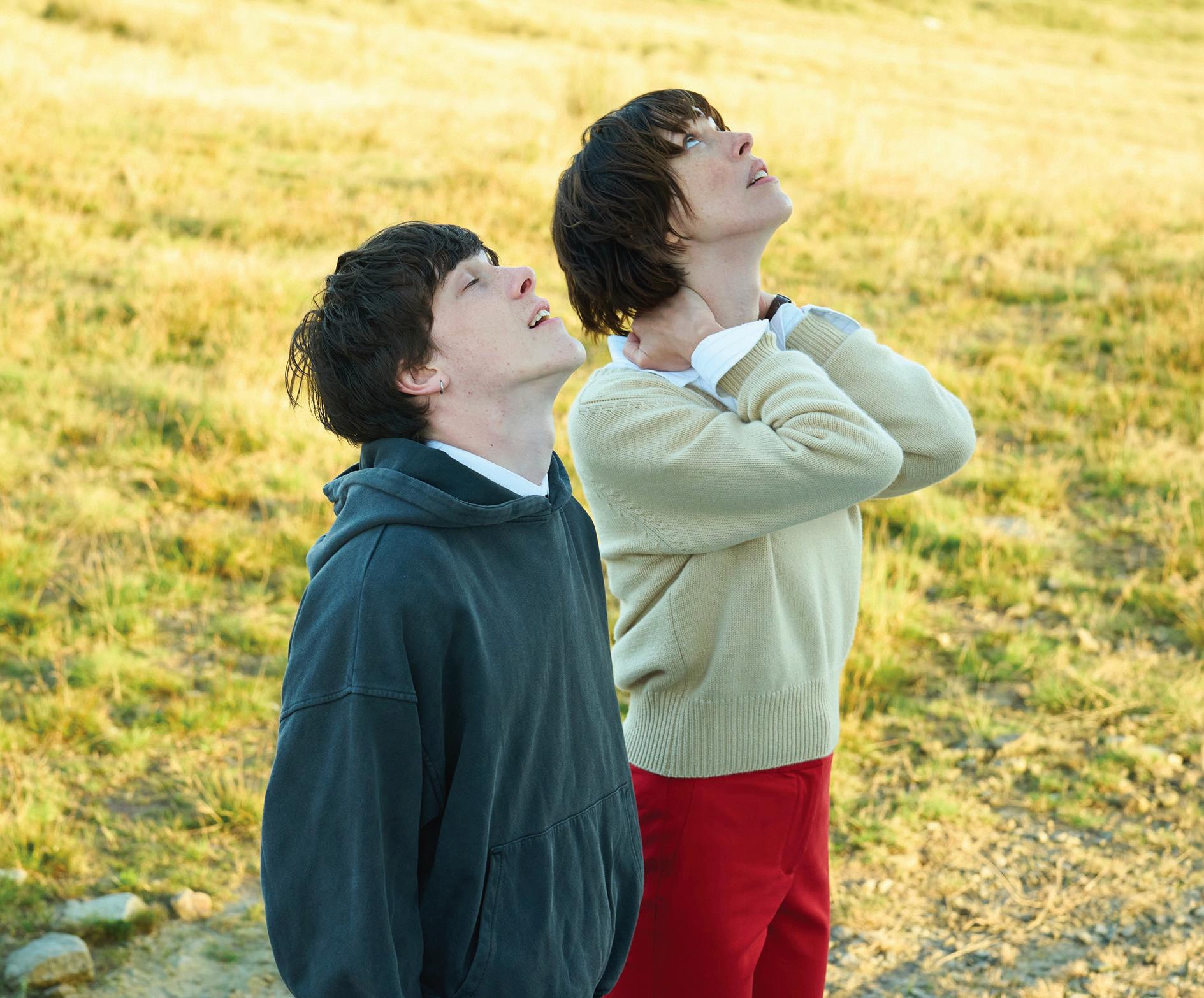

In Memoriam (8x60’)
Producers: Passez-Go, C3 Media
Distributor: Cineflix Rights
They say: “Hits a lot of the content beats global buyers are looking for, echoing similar themes explored in some of the biggest drama hits of the past few years.”
We say: Succession meets Squid Game in this French-language psychological thriller for Crave in Canada, in which rival siblings battle each other to inherit their estranged father’s untold wealth in an increasingly sinister competition.
Rivers at Risk: The Global Water Crisis Unveiled (2x45’/1x90’)
Producer: Kinescope Film
Distributor: Autentic
They say: “Explores the central themes of the global water crisis through the captivating stories of international protagonists from Spain, France, the US, Egypt and India.”

We say: As humanity faces existential conflicts over the use and distribution of water, this investigative documentary for Radio Bremen, Arte and Nordmedia should make us more mindful when it comes to our use of the most important resource on the planet.

Families Like Ours (7x45’)
Producers: Zentropa Entertainments, Zentropa Sweden, Film i Väst, Sirena Film, Ginger Pictures, Saga Film, Canal+, TV2 Denmark, ARD Degeto, NRK, TV4, M7
Distributor: StudioCanal
They say: “A riveting tale of the pain of farewells and a testimony to the unyielding will of human beings to survive, hope and love.”
We say: This epic dystopian drama, set during a summer in Denmark when climate change catches up dramatically and rising water levels force the population to be evacuated, is well worth seeing, not least because it marks the first TV series from Academy Award and Bafta winner Thomas Vinterberg (Another Round).
Producers: Ludo Studio, Since1788
Production
Distributor: DCD Rights
They say: “This thrilling new First Nationsled production will take advantage of iconic road trip locations through the central corridor of Australia, showcasing some of South Australia’s stunning Outback landscapes.”
We say: Ludo Studio created Bluey, one of the best-loved TV series ever, so it’ll be fascinating to see if this 1980s-set Stan drama about a young Aboriginal delinquent on the run continues its winning streak.


Thou Shalt Not Steal (8x30’/4x60’)

Tarot (7x30’)
Producers: LG Uplus, Studio X+U
Distributor: Studio X+U
They say: “A gruesome horror mystery, where people living their everyday lives suddenly encounter the ominous fate predicted by tarot cards.”
We say: The international reputation of K-drama continues to grow and this anthology series stars Parasite’s Cho Yeo-jeong in one episode and has been praised for its artistic flair.
Channel21 International | Spring 2024
SLL on a global roll
South Korea-based production studio SLL has continued its booming year in 2024 a er achieving notable global success in 2023.
SLL, a global creative studio within the JoongAng Group alongside JTBC Channel, and formerly known as JTBC Studios, enjoyed remarkable success across various platforms in 2023, including TV and OTT. As this year unfolds positively, it’s intriguing to consider what 2024 holds for the company.
Renowned as Korea’s foremost studio, SLL operates extensively, covering everything from video content production to investment and distribution. Breaking into the global content market, SLL transcends platforms like TV, multiplexes, and OTT, embracing diverse genres such as dramas, movies, and entertainment.
Armed with a prestigious catalogue of original IPs and creators worldwide, SLL leads content trends, crafting high-quality productions that generate significant buzz. The company has acquired 15 competitive production labels, including LA-based wiip, renowned for producing hits like The Summer I Turned Pretty and Mare of Easttown, as well as B.A. Entertainment, the powerhouse behind Disney+ original series Big Bet; Climax Studio, creators of Netflix series Hellbound and D.P.; Perfect Storm Film, producers of Netflix series Narco-Saints; and Film Monster, responsible for the Netflix series All of Us Are Dead
According to What We Watched: A Netflix Engagement Report, which o ers a comprehensive look at what Netflix subscribers viewed on the platform over the six months to June 2023, the SLL series Doctor Cha racked up a staggering 194.7 million viewing hours, making it the third most-watched drama after The Glory among Korean drama.
TVING original series Death’s Game hit the top 10 list on Prime Video in 43 countries, holding strong in about 78 countries, including Australia, Japan, Indonesia, Brazil and Peru through January 2024. It even claimed the number two spot on Prime Video’s global TV show ranking (English-speaking regions included) on January 7.









This year, SLL presents a diverse array of titles, ranging from captivating dramas like Doctor Slump, Queen of Divorce, Hide, Frankly Speaking, The Atypical Family, The Tale of Lady OK (wt), and Good Boy, to the thrilling Netflix films Badland Hunters and My Name is Loh Kiwan. Also in the line-up are TVING original series Pyramid Game and the Netflix series The Frog, alongside feature films The Roundup: Punishment and The Woman in the White Car
As of March 21, Doctor Slump has maintained its position in the Netflix global top 10 TV (non-English) category for eight consecutive weeks,





showcasing its enduring popularity. Meanwhile, Badland Hunters has dominated the films (non-English) category, holding the number one spot for three weeks straight. Notably, My Name Is Loh Kiwan swiftly climbed to the top position in its second week of release, demonstrating its rapid ascent in viewership. In addition to these successes, Pyramid Game received special recognition with a screening at Series Mania, while The Roundup: Punishment was honoured with an o cial invitation to the prestigious Berlinale Special Gala at the 74th Berlin International Film Festival, a rming its global acclaim and recognition.
Park Joon-suh, head of the production division at SLL, proudly stated: “With the acquisition of 15 competitive production labels, SLL has emerged as one of Korea’s foremost production powerhouses. Throughout 2023, we introduced 28 unique projects across various global platforms, and we’re poised to unveil over 30 titles in 2024. Moving forward, we’re committed to delivering compelling local content through our US and Japanese entities. Please stay tuned for what’s in store!”

ADVERTORIAL
Doctor Cha
Death’s Game
Uncanny (format)
Producer: BBC Studios Specialist Factual Productions
Distributor: BBC Studios
They say: “Featuring re-enactments alongside historical research and scientific analysis, this spine-chilling format will leave you wondering: are you a sceptic or are you a believer?”
We say: Another example of the now wellestablished podcast-to-TV commissioning route, this format has been spooking BBC Two viewers in the UK and is now ready to investigate the supernatural in markets around the world.


Reversing the Climate Disaster (1x52’)
Producers: The Great Courses Studios, Blue Chalk Media
Distributor: West One International
They say: “An informative and inspiring adventure into how everything we do needs to be done differently to adapt to rising sea levels, droughts and other climate-related challenges.”
We say: Inspired by Bill Gates’ bestselling book, this doc comes as humanity confronts one of the greatest challenges we’ve ever faced and explores the revolutionary technologies tackling the climate crisis, as well as the people behind them.
All & Eva (6x47’)
Producer: Warner Bros International TV Production
Sweden
Distributor: Viaplay Content Distribution
They say: “Eva doesn’t believe in love, but when she least expects it, she meets it in Mads. The only problem is that she is already pregnant, with his child, although he doesn’t know about it.”
We say: This series offers a fresh take on the dramedy genre, blending humour with poignant, emotional moments as it tells the story of a 40-year-old woman, played by Tuva Novotny (The Abyss), whose journey to find her sperm donor takes her through unforeseen twists and turns.
Whodunnit: Easter or Die (format)
Producer: Magga og Anders AS
Distributor: Lineup Industries
They say: “A celebrity murder mystery reality format featuring funny, holidaythemed challenges.”
We say: Recently launched on NRK in Norway over Easter, this series could be adapted to suit other holiday seasons and sees celebs ‘murdered’ in overly theatrical ways, often with a nod to a well-known film, as they race to solve the murderer’s identity by paying attention to hints left at the crime scenes.


Olga Da Polga (28x11’)
Producer: Maramedia
Distributor: Boat Rocker Studios
They say: “Follow the adventures of a loveable and highly imaginative guinea pig heroine and her animal friends in this funny, colourful and heartwarming live-action series.”
We say: Based on the bestselling books from Michael Bond, creator of the beloved Paddington Bear, this CBeebies series capitalises on the inherent cuteness of the humble guinea pig.

Eurostar: Minding the Gap (1x52’)
Producers: RMC Production, RMC Films, RMC Decouverte
Distributor: Kwanza
They say: “As 2024 marks the 30th anniversary of the Eurostar, come aboard and discover what it takes to keep everything running.”
We say: A triumph of railway technology and international relations, the Eurostar train revolutionised travel between London and Paris, linking two iconic cities via the world’s longest underwater tunnel. This stylish doc looks at how it was done.

NEXT BIG THINGS: 21 on 21 Channel21 International | Spring 2024 26



Formats
AI generates hopes and uncertainty Everything about
Listen sees a future for the visual podcast
TF1 looks for paper formats and reboots

content Spring 2024




Are generative AI tools cost- and time-saving devices enabling producers to o er embattled channels more for less, or is this tech coming to cut the creatives out of the business entirely?

AHEAD OF THE CURVE:



Threat and opportunity











 By Clive Whittingham
By Clive Whittingham



If there’s one thing people fear more than change, it’s the unknown.
When it comes to artificial intelligence (AI) and the content business, we know change is coming because it’s already here and it’s happening at extreme speed. One minute you’re being shown how good AI is at dubbing your gameshow into foreign languages, the next you’re watching as Sora shows the potential to create and visualise a ‘new’ one after a few prompts.
Who knows what things might look like even 18 months from now, but it appears as if the industry is approaching a fork in the road.



o ered and stay alive. What if AI could strip away the banal, menial, time-consuming, costly bits of making television, allowing prodcos to turn out more content, quicker, for less money? How timely, thank God you’re here.
“ Time-saving should be the focus because it translates to saving money – you can deliver sooner, rent equipment for less time and do more projects in a year.
six-part murder mystery please; the detective is a female from Scandinavia who wears a lot of chunky knit,’ and it can produce it for you with the precise audience desires factored in from the algorithm, there’s a big chance they’ll choose to pay one prompt engineer as opposed to a whole writers room.
Wesley Block is a filmmaker turned co-founder and CEO of Kino AI, an AI tool that organises footage, speeding up the process for editors – very much part of that best-case scenario. “Development is the least logical place AI will and could make its impact,” he said during a panel at Realscreen Summit in New Orleans in February.

aren’t watching it and



The best-case scenario is AI is something of a saviour. The collapse of the ad market, declining subscriptions, rapid inflation, pandemic upheaval and more have left the traditional TV business on its knees. Channels cannot commission new content because people aren’t watching it and advertisers won’t pay for it. Producers cannot make their shows at the budgets being

Wesley Block Kino AI








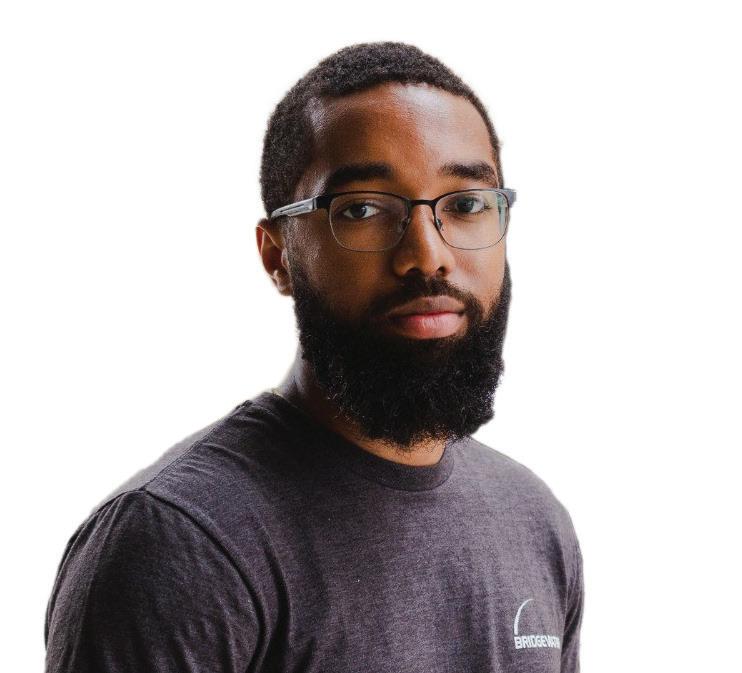
why on earth would these budget-poor channels
Meanwhile, the worstcase scenario is if AI keeps accelerating at this rate, why on earth would these budget-poor channels need to pay producers, writers, talent, creatives at all? If you can literally say to a computer, ‘I’d like a

“Whether it can and what’s possible versus what will actually be the reality is a distinction often missed. We approach the conversation passively: there’s this high level of technology that will advance, there’s nothing we can do about it, market forces will drive it and audience tastes will adapt. As opposed to the other side, which is people are the industry. What do we want it to look like? What innovations do we want to see and drive? That’s how we should approach it. In the technical sense, you should

assume anything is possible if you give it enough time and data.”
Irad Eyal, co-creator of Netflix gameshow format Floor is Lava, has more recently turned his hand to launching Quickture, an AI editing tool that helps analyse footage and find the story within it. Speaking on the same panel, he said: “I’ve been doing reality television for 25 years. What makes reality TV special is we all know we’re dealing with real people. We have to go out there and find characters, film the real story, and that is going to continue, with AI tools helping. I don’t think you’ll see a situation where documentary characters are replaced by computergenerated ones.”
Benjamin Field, an exec producer at Deep Fusion Films in the UK, who is also on UK producers association Pact’s working group trying to navigate the ethics and practicalities of how AI can and should be used, said: “Just because something is possible, does that mean we should automatically jump into it? Creative people are in the industry because they want to be creative. I don’t really see a drive for us to kill our own industry by purely making things because they’re financially viable. Creative people will endeavour to continue to be creative. AI can form part of that as another tool. Do we want to use those tools? Because they may harm our industry. We have responsibility to ourselves and a future generation of TV and film makers.
“We’ve been playing in this area for a couple of years and, as a creative producer and writer, there is an element of AI fatigue already. I use certain tools to make processes happen but actually I’ve now got to the point where I want independent creative control back because I feel distant from the project. I want control of my show because it’s my show.”
Realistic? Optimistic? Naïve? We’ll only know in time, but it’s the context of the current economic situation in the industry that potentially tips the balance towards foe rather than friend. Believing we’ll do what’s good and right versus the financial incentives forgets the fact it’s called showbusiness for a reason.
Eyal said: “If you do want a prediction of doom then where I see doom coming to the industry is in scripted studios, because now an individual person can make a



actors. big-





movie or TV show that has Marvelor Star Wars-quality visual e ects and a cast of known or invented actors. In terms of scripted and bigbudget programming, you will see a flattening where anybody can create that. But I maintain reality TV might be immune because we have to go and film real people.”


“ Where I see doom coming to the industry is in scripted studios, because now an individual person can make a movie or TV show that has Marvelor Star Wars-quality visual e ects and a cast of known or invented actors.
Irad Eyal Co-creator of Floor is Lava
However, Field countered: “Yes, you can make stu like that for TikTok and get a couple of thousand views but it’s a very di erent market from TV and film, where broadcasters and commissioners have a duty of care. There are processes in place to make sure high-quality content remains high-quality content. It’s not going to accidentally happen.
“Broadcasters and producers have the ability to work within set guidelines. The conversations we’re having with the BBC, ITV and Channel 4 are about us taking control of this narrative, ensuring we behave responsibly and these things don’t happen. Legislation is very slow; we need to be self-motivated.”
Oz Krakowski, chief business development o cer at Deepdub. ai, an AI dubbing company aimed at helping content owners and producers unlock monetisation opportunities for their content in new markets, is also mindful of the legal framework currently lagging behind AI advances, but believes it will eventually “catch up.”
“All these things we can do but shouldn’t are eventually going to line up and the industry will get to a point where it’s defined what you can do and what you can’t. There will always be outliers but it will stabilise and


extend our work, not be a dystopian future where everything is doomed.”
Let’s use this as a jumping-o point for the best-case scenario and look at where AI can help producers and broadcasters allay the economic fears that have led to a commissioning stalemate. Block said the most useful and impactful tools are the ones everybody is on the same page about – translation, searching footage, dubbing.
“If I had a production company, the first thing I would do is lay out the entire workflow step by step and look at where we can save time,” he said. “Time-saving should be the focus because it translates to saving money – you can deliver sooner, rent equipment for less time and do more projects in a year. For the creatives and editors staying up late every night to get work done, it matters a ton to their quality of life. The entire conversation around implementing AI into a creative workplace



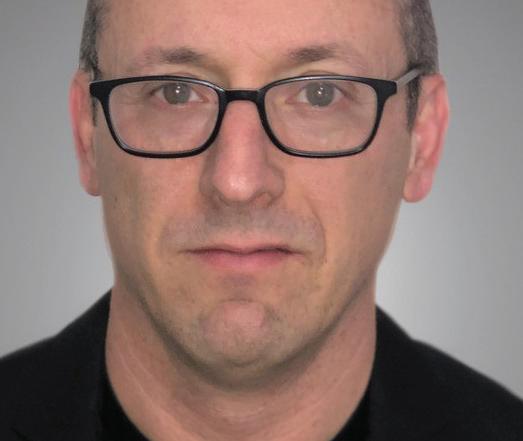
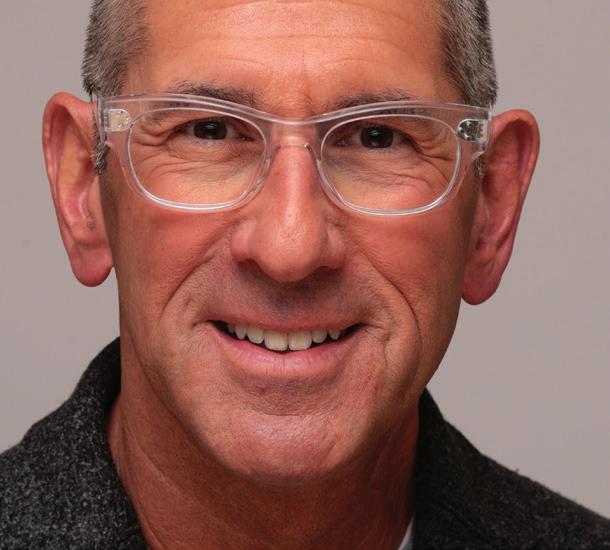

Channel21 International | Spring 2024 AI and formats
Netflix gameshow format Floor is Lava
Clockwise from top: Oz Krakowski, Phil Gurin and Benjamin Field


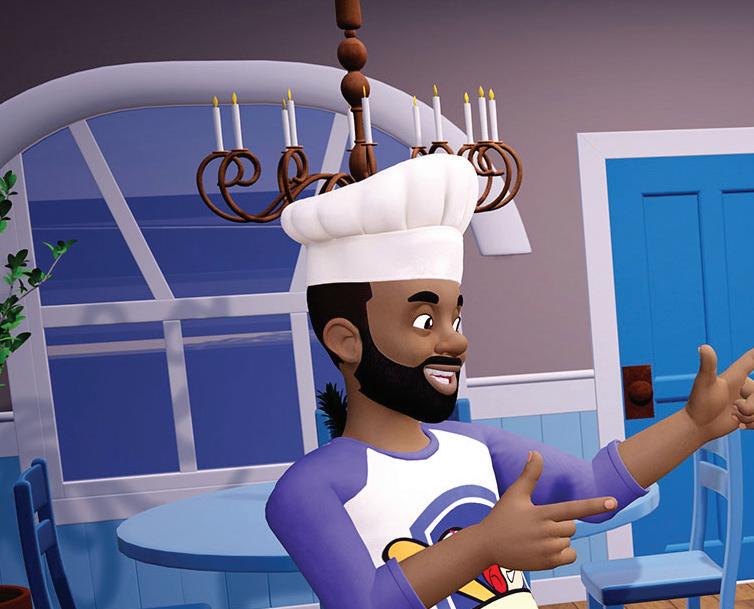
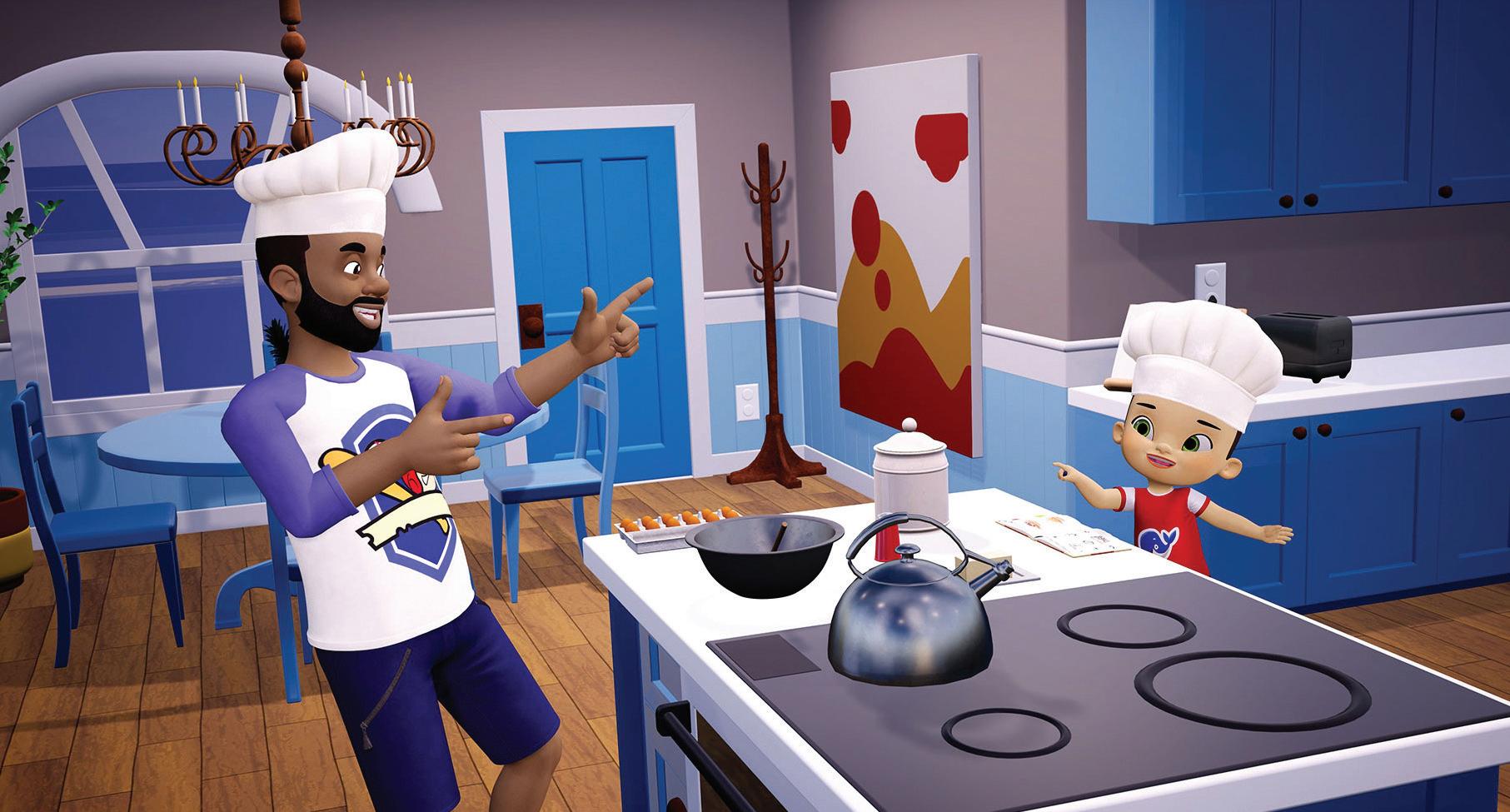

should be around saving time in the workflow.
“Post is the most important thing to focus on. Unscripted producers capture everything and then, once they have all the footage, they craft a scene in a creative way. If you shot it over months and years, where were the golden moments? Computers can be extremely helpful with that.
“If you’re in an edit room thinking, ‘She’s great, get me everything we shot of her on this day,’ that’s a menial task somebody would have to spend a day doing. The computer can do it [in an instant]. Once it gets to the AI saying, ‘I think this is the best one,’ then it’s wrong. I’m uninterested in automated decision making. We are the storytellers, but it’s very good getting me the options.”
Raja Khanna, founder of Canadabased Dark Slope, which uses AI to create TV content including
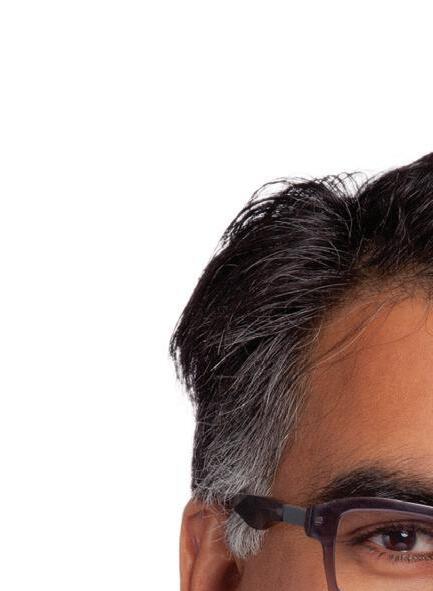


good-quality material in the stu you have. If a network says, ‘Let’s focus on this bit about his grandmother,’ you know that would be back to the edit suite for three days. But something like Quickture could produce a sample of that much quicker.”
Is this, however, doing away with exactly the sort of entry-level jobs people use to access an industry that’s notoriously hard to get into, particularly for minorities, workingclass kids, and people who live outside major production centres – the exact people we’re meant to be trying to involve more?
and that will be awful for people everywhere. As with every evolution and revolution, it’s inevitable.”
Krakowski added: “If you don’t use it to your advantage, someone else will use it to theirs.” His point was echoed by Khanna, who said: “If we don’t, somebody will.”
This rather paints the situation as an either/or. As long as the ‘goodies’ embrace this and use it for pure means, the ‘baddies’ won’t get their hands on it and ruin everything. The reality is it will be both. For every embattled production company using AI ethically to cut costs and survive an economic crisis, there will be someone else using it to cut creatives out of the process entirely.
Telling C21 about his experience with a sitcom-writing friend who prompted AI to produce a comedy pilot script, format veteran and Frapa co-chair Phil Gurin says the show it came back with was “not that bad. In fact I’ve worked on worse.”
“ To help with research, structure ideas, organise reams of data… you’re wasting time if you’re not using it today. That’s a fact. It can save you hours and hours a month for your research and development teams.
Raja Khanna, Dark Slope
Gurin also believes AI is capable of not only producing a copycat of, say, Who Wants to be a Millionaire?, but also making just enough changes so it complies with Frapa’s scoring system on IP theft and avoids legal action –potentially destroying the formats business overnight. Bearing in mind markets such as China were embroiled in a series of format copycat rows before any of this, it’s inevitable some businesses are going to be using that opportunity if it’s available to them.









Field told a story of a quickturnaround doc his company produced where ChatGPT was able to provide information on a topic they knew little about, answers to potential interview questions and generate mock contributors with di erent voices to present at the pitch within two days.






Perhaps you’re a linear channel facing budgetary pressures, or a small player trying to compete against consolidated Disney/Warner Bros Discovery-type behemoths. Maybe you are one of those giants trying to rabidly slash overheads, or you’re a channel/streamer in a growing market in East Asia or Africa.
unscripted and animated series such as Peacock’s Babble Bop, said: “To help with research, structure ideas, organise reams of data… you’re wasting time if you’re not using it today. That’s a fact. It can save you hours and hours a month for your research and development team.”

research and development team.”












“Have we done somebody out of a job? In that specific case, I don’t think we did,” Field said. “It’s not as if we had time or resources to hire somebody to do that work and find six voiceover artists. In that case, it was the di erence between being able to deliver or turning the project down.
For all those groups, using a computer to spit out a show for you in a fraction of the time and cost it used to take is going to hinge on whether the audience will be willing to watch it. As cynical as this may sound, if the audience buys it, it’s a no-brainer that big chunks of the industry are going to do it, regardless of the ethics.


to tell all kinds of di erent stories. We started from a position of trying



Eyal added: “If you can turn around a series in one month rather than nine months, suddenly you have a very di erent workflow and opportunities to tell all kinds of di erent stories. We started from a position of trying to fix our own problems. If you’ve got hours and hours of casting tapes, it’s a gruelling job trying to find the nugget to send to a network.





AI is very good at finding
“In the UK, commissioning levels are way, way down. Producers will have to make choices between closing because we can’t a ord to keep going or finding a cheaper way of doing it. AI o ers that. Some jobs will disappear, other areas of the industry will grow. People who weren’t in the industry, like software engineers, will move in. Traditional roles may disappear
Meanwhile, there may be bigger fish to fry, especially when you consider how AI tools are being used to put words into politicians’ mouths in a year when more than two billion voters are set to go to the polls in 50 countries, including the US and India.
AI and formats Channel21 International | Spring 2024
Dark Slope uses AI to create content including Peacock’s Babble Bop











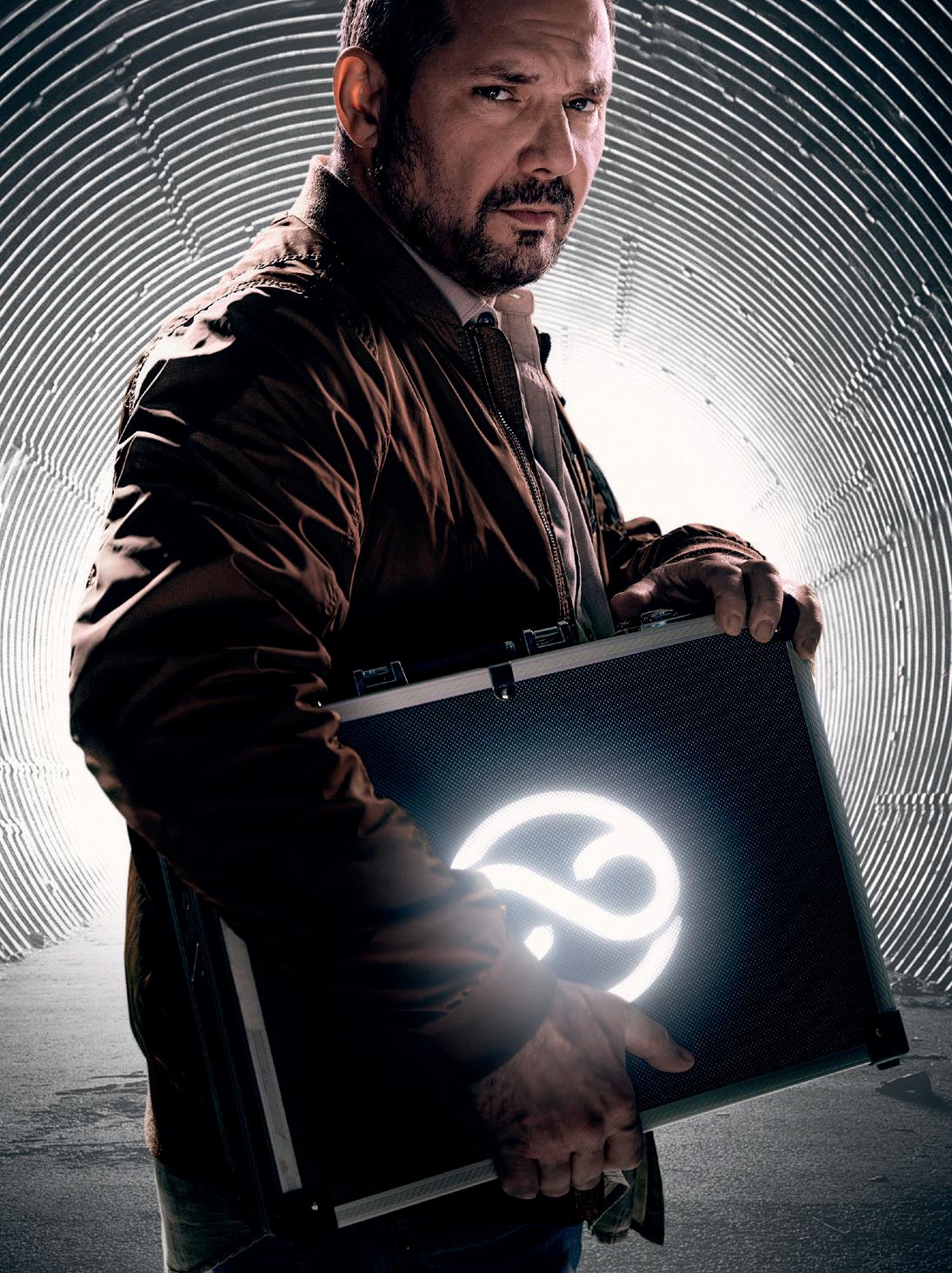

Degroote’s cause

TF1’s Julien Degroote is seeking to push boundaries with new unscripted paper formats and reality reboots as he looks for hybrid ideas to reach linear audiences and grow its fledgling streamer. By
Gün Akyuz



France’s leading commercial player, TF1 Group, is keen to boost its linear and digital presence in 2024 and beyond with a revamped programming strategy, fuelled by an increase in scripted and unscripted originals.
A recent development for the group was the launch of its new free-to-view digital platform TF1+ on January 8, replacing MYTF1. In 2023, the group’s digital service led the market with 28 million monthly unique users, as well as contributing to the 13.5 billion hours viewed across the TF1 Group as a whole.
Initial results for the new platform have indicated up to an 80% increase in views over 2023. The group is now planning to launch TF1+ internationally, targeting Frenchspeaking markets.
The aim is for TF1+ to become “France’s biggest free digital platform for entertainment aimed at the whole family, where viewers can access all TF1’s big scripted and unscripted brands in catch-up, but also an increasing amount of exclusive content: movies, scripted series and a few original unscripted,” says Julien Degroote, TF1 Group’s head of content development for unscripted.
Alongside its digital push, TF1 made a number of key linear programming changes on January 8, in a move to invest in daytime and other off-peak zones with original scripted and unscripted fare where the group believes there’s still the chance to increase its linear market share, says Degroote.
Novelties include the launch of Bonjour!, a new two-andhalf-hour live morning magazine show, and a new slot for local daily drama, giving new life to axed public network

France 3’s soap Plus belle la vie, encore plus belle. The veteran series, produced by TF1-owned prodco Newen, follows the main lunchtime news at 13.00, which attracts up to three million viewers daily. An original French daily drama will expand its high audience levels into the afternoons, believes Degroote.
As well as bolstering its linear service, the new daily drama forms a key part in TF1’s strategy to drive more traffic to the group’s digital platform.
Unscripted originals also air on the group’s youngerskewing digital terrestrial television (DTT) channel, TFX, in access primetime, between 17.00 and 20.00. Currently airing is reality format Quatre mariages pour une lune de miel, a local version of UK format Four Weddings and made for TF1 by ITV Studios France.
Across TF1 and TFX, these four originals already generated a significant share of the digital platform’s daily views before the launch of Plus belle la vie. Its arrival is expected to both boost the group’s linear performance and speed up its digitisation, says Degroote. “But it’s also a sign we believe linear TV is still relevant and that we still want to invest, even in daytime and the mornings,” he says.
Degroote’s content development team oversees all unscripted projects for the group’s channels, including flagship TF1; TMC, France’s biggest DTT channel and among the top five national channels in key demos; and younger-skewing TFX, which targets teenagers and young adults in access primetime with reality and women under 50 in primetime.
The group doesn’t currently commission exclusively for its digital platform but does produce digital companion shows linked to big entertainment brands like Dancing with the Stars (Danse avec les stars) and The Voice, which help drive viewing on digital and social media.

TF1 is also expanding its slots for original unscripted fare in primetime at 21.00, notably on Tuesdays, where it also schedules acquired US series. Fridays and Saturday evenings are its main rendezvous for unscripted entertainment, while original local drama airs on Mondays and Thursdays in peak season and Sundays are home to French or US movies.
This season includes Dancing with the Stars on Fridays – postponed from September due to its Rugby World Cup coverage in September and October –plus new seasons of The Voice on Saturdays and Survivor, airing locally as Koh-Lanta, on Tuesdays.
In the pipeline is season six of The Masked Singer, which has been a major success for TF1. “It’s the best-performing show on family targets,” says Degroote, citing its latest season, which reached a 39% share of family audiences and up to 55% among kids in the 4-10 demo.
CONTENT STRATEGIES: TF1 Channel21 International | Spring 2024 34
Below: Star Academy was rebooted in 2022 after a 14-year break. Right: The Voice has returned on Saturdays



TF1’s unscripted line-up also includes veteran format Star Academy. TF1 brought back the series in 2022 after a 14-year break. “It’s relevant for its linear performance but also performs very well on digital,” says Degroote, highlighting the show’s 10 million-plus views on TF1+ and TF1’s appetite for serialised ‘soapy’ unscripted formats that can perform well in both linear and digital.
TF1’s next big daily reality bet is another reboot, Secret Story. On the back of its recent success with Star Academy, the network is preparing the Big Brother spin-off format following a six-year hiatus.
“We’ve seen the success of Star Academy and we want to do equally well in our daily shows, weekly shows and digital performances,” says Degroote. Secret Story launched on TF1 in 2007, running for eight seasons before moving to TFX. The latest season is due to premiere in a yet-to-be announced date.
Degroote’s team encourages and develops new paper formats as well. This January saw the launch of Dream Team, based on the format Beat My Mini Me. The show was co-developed with Fox’s Alternative Entertainment division, tapping the US group’s US$100m formats development fund.
Launched as two primetime episodes over two weeks in January, on Friday 19 and 26, the show delivered satisfying results, hitting core family audiences, says Degroote. The first episode faced strong competition from a blockbuster family movie on M6, but in the second week led its slot with a 21% share in its key demo, 26% of 15-34s and up to 28% of 15-24s, and an overall 2.4 million average viewers.
“It was a good deal for TF1 because we’re able to offer a new show to viewers, while Fox part-financed the budget because TF1 took the ratings risk of putting a new paper format on air two weeks in a row,” says Degroote of the partnership. A decision has yet to be made on a second season.
Degroote says such international alliances allow his department to think bigger and take more risks.
His team already has a slew of new shows in preproduction or production for 2025. They include an as-yetunnamed new paper-format quizshow in the works with a French producer for TF1’s primetime. “We’re still looking for the next big shiny-floor show. That’s TF1’s journey and the purpose of its primetime slots,” he adds.
However, Degroote also foresees a growth in unscripted fare for TF1’s primetime over the next few years. “But we won’t be able to do this with just shiny-floor shows and we have to test more non-studio-based factual entertainment genres,” he explains.







TF1 needs to work with producers to make this happen, Degroote says. Last August it launched ITV Studios reality format My Mum, Your Dad in primetime, airing as Ma mère, ton père, l’amour et moi, with the ‘soapy’ format also intended to drive viewing on the digital platform. While the show performed well among commercial demos across its four-week run, its reality image deterred the over-50s and therefore it failed to reach the broad family audience ratings levels needed for TF1’s primetime.






Degroote believes the next new opportunity may lie with audience play-along hybrid shows, such as NBC’s recently launched Deal or No Deal Island. “It takes a well-known big brand and gives it a twist. It’s not made in a studio and has a more factual entertainment or adventure gameshow tone. We clearly see a trend in this genre,” he observes.

next . “It takes a well-known big brand and gives it a twist. It’s not made a in

TF1 now has a few as-yet undisclosed unscripted hybrid entertainment formats in development, with the first one likely to launch in 2025.






For producers looking to pitch to TF1’s channels, Degroote’s team has opportunities at TFX in the reality space and on TMC, as well as on flagship TF1. “Our department is the entry point for all new unscripted projects, from a reality gameshow to entertainment shows to factual entertainment, or even magazines or documentaries. We then choose what we consider best for our strategy,” he says.


shows to factual entertainment, or even magazines don’t







French or foreign producers can contact us and if we think the idea is good for us, we’ll set up a

Producers with new paper formats or ideas should initially pitch a deck of one or two pages, Degroote advises. “We don’t need 40 pages, but you will sometimes need to provide more pages with information on rules or more examples. French or foreign producers can contact us and if we think the idea is good for us, we’ll set up a video call or a meeting in Paris.”


 Dancing with the Stars was postponed due to the Rugby World Cup. Left: Dream Team was developed from a paper format
Dancing with the Stars was postponed due to the Rugby World Cup. Left: Dream Team was developed from a paper format
Julien Degroote

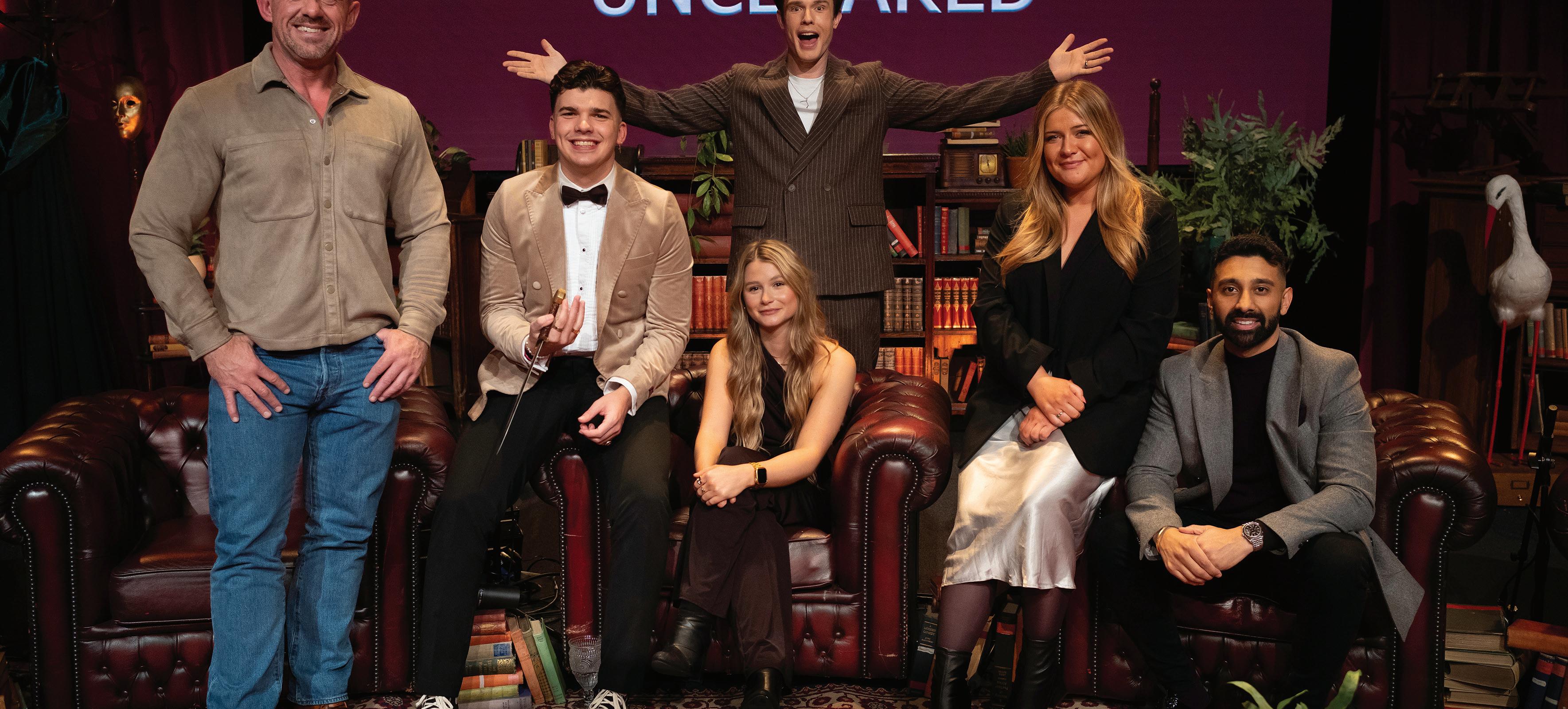
‘Visualised podcasts’ are emerging as a new cost-e ective way for commissioners to get content on screen and help cash-strapped broadcasters to adapt.
By Nico Franks
While the company’s name suggests there isn’t a visual aspect to its work, Londonbased audio outfit Listen earned its first TV credit this year with The Traitors Uncloaked, a visualised companion podcast to the hit second season of the BBC and Studio Lambert’s The Traitors
Fans could listen to The Traitors Uncloaked on BBC Sounds, the BBC’s audio equivalent to iPlayer, or they could opt to watch episodes via the latter as well as on BBC Two in a late-evening slot.
The Traitors Uncloaked had an average of over two million viewers per episode on BBC Two, while its final episode was viewed by 3.2 million people, attracting seven times more viewers than the BBC Two slot average, and consolidated at four million.
Not too shabby for a whole new medium that likely costs far less than most other 30-minute TV shows. Listen managing director Josh Adley believes it is all part of the “natural evolution of the podcast” as the format’s popularity skyrockets and viewers grow accustomed to watching on YouTube via connected televisions and seeing podcasts clipped up on social media.
“The definition of a podcast has changed so much, none more so than in the past 18 months. Podcast companies have gone from being specialists in great audio to having to be experts in filming content and social media strategy for clients,” says Adley.
TV and podcasts have always enjoyed a close relationship, with talent moving between the two, while podcast IP is frequently used as the basis for documentaries and scripted series, and vice versa. But as Adley says, the emergence of the ‘visualised podcast’ sees the line between the two blur completely.
Development Slate Listen



podcast-first approach but made sure deliverables were where they needed to be for TV. It was daunting, but we know how to create premium podcasts and that’s exactly the approach we took,” says Adley.
“It does present a new opportunity for broadcasters
“ The definition of a podcast has changed so much, none more so than in the past 18 months. Podcast companies have gone from being specialists in great audio to having to be experts in filming content and social media strategy for clients.

Josh Adley
Gamble, join celebrity guests and past players to dissect each episode of The Traitors season two in obsessive detail. It also includes exclusive interviews with the latest banished and murdered players, plus the exact moment they find out who the traitors are –a must-see segment audiences had been crying out for during season one.
The final episode, featuring the five finalists plus host of the main show, Claudia Winkleman, was filmed in front of a studio audience and had all the hallmarks of a traditional TV chatshow.
“In some senses there’s no difference between what we created and a TV show. It lived on TV. There are some differences in the approach and who was working on it, with a much smaller team and the sensibilities of a podcast. We’re just focused on making great content,” says Adley.
“If a podcast is now more than just audio and is well produced with great storytelling, then why shouldn’t it live on TV?”
Listen is now regularly speaking to broadcasters and streamers about ways the two can work together, accordingly to Adley, be it about companion shows to breakout hits or dedicated visualised podcasts for television.
The company recently launched the podcast Olivia Attwood’s So Wrong It’s Right, which Adley describes as a “fully multi-channel podcast” that lives in various formats on platforms such as Apple Podcasts, Spotify, YouTube, Instagram and TikTok. Adley says he is already sounding out broadcasters about their appetite to add similar shows to their schedules.

“We absolutely took a

to promote their shows. But you’ve got to think about whether people care about the show enough to demand additional content and are you able to provide added value through the podcast, as we did with .”
Uncloaked


“It might be a really smart new way to commission content that isn’t going to be as expensive as your typical TV commission. That’s going to be on the minds of commissioners,” says Adley.


Each episode sees the


Each episode sees the host, comedian Ed
“But I wouldn’t want to position it as a cheaper option; it’s a different option. We’ve had conversations with some broadcasters where we’re getting budgets on podcasts that are more than what they might spend on some of their broadcasts. It depends on the talent and the ambition.”
talent
The Traitors Uncloaked
BACKEND Channel21 International | Spring 2024 36



Factual
Deep dive into AVoD net Free Documentary Everything about content Spring 2024
Expert opinion: AMCNI’s true crime mission
Cream rising: Canuck firm targets copros












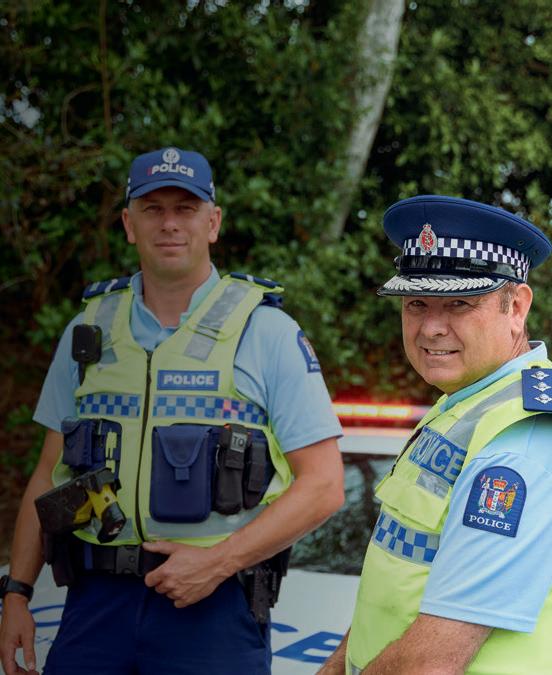
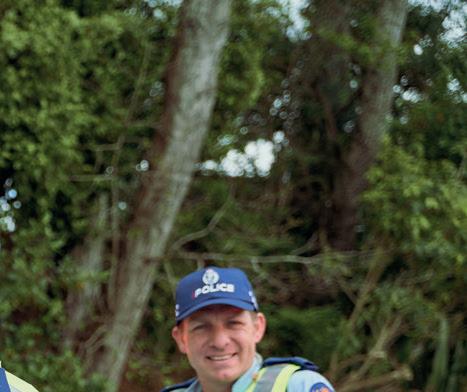





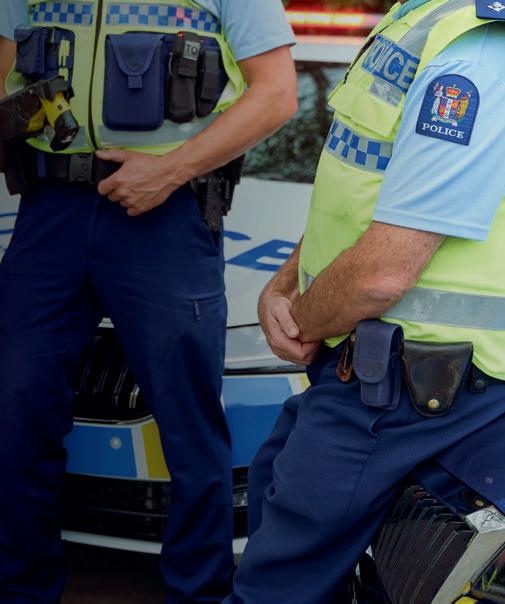
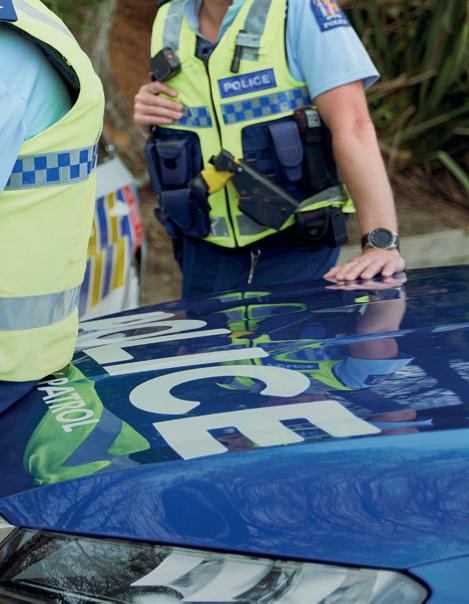
Visit us at stand: R7.E55 1 x 60’ / 1 x 90’ History & Mystery THE INFINITE DEEP: STORIES OF LOST SUBMARINES HIGHWAY COPS THE WORLD’S BIGGEST CRUISE SHIP 8 Series: 100 x 30’ Access & Obs Docs 2 x 60’ Access & Obs Docs


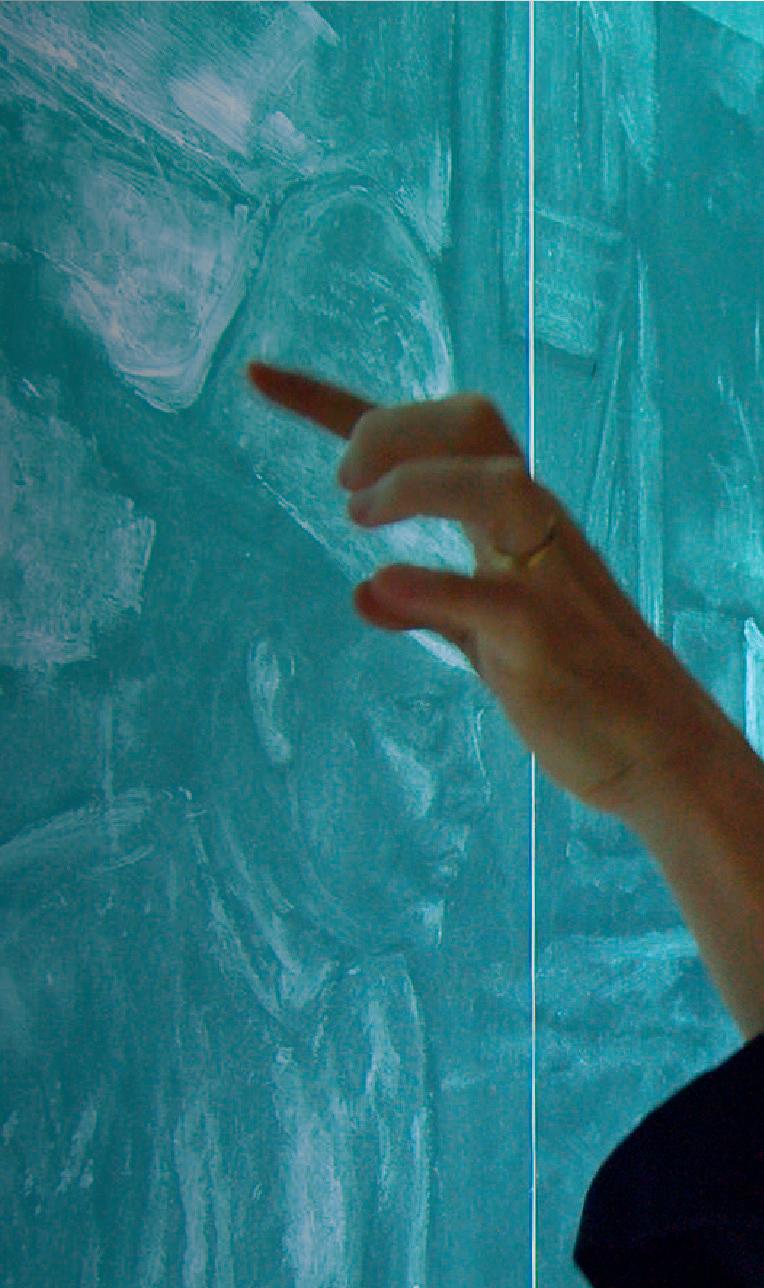

















www.bossanovamedia.com 6 x 60’ History & Mystery MUSEUM MYSTERIES THE PUSH BORDERFORCE USA: THE BRIDGES 2 x 90’ / 3 x 60’ Crime & Investigation 5 Series: 52 x 60’ Access & Obs Docs The new wave in Distribution



Last July, AMC Networks International UK (AMCNI UK) promoted Sam Rowden to the newly created position of VP of its new content group, reporting to Kevin Dickie, exec VP and managing director of the company. The move gave Rowden full responsibility for both the linear and streaming content strategies across the UK and EMEA.
In November, several of those channels got a new look. CBS Reality and RealityXtra became True Crime and True Crime Xtra respectively. Horror Channel rebranded as Legend and there is also now a Legend Xtra channel as well as time-delayed True Crime +1 and Legend Xtra +1. Legend features action, sci-fi, adventure and western series and movies.
On-demand content from both True Crime and Legend is available on Watch Free UK (fka CBS Catch Up Channels UK). The UK AVoD and free, ad-supported streaming TV (FAST) service is True Crime UK and is available on ITVX, Samsung TV, Amazon FreeVee, Rakuten TV and Pluto.
Acquisitions are made across the portfolio but original commissions – around eight to 10 series a year including renewals – are made for True Crime in the UK. These then roll out across the EMEA portfolio, which includes CBS Reality in Poland and Romania, and CBS Justice in South Africa.
“We’ve been in the true crime genre for 11 years and it was a good move to align the content and offering of the channel with a say-what-it-is brand name for people to find in a busy environment,” Rowden says.
“True Crime has very much a female audience while Legend is a channel specifically targeted at the male 50plus audience that thrives on nostalgia and people re-watching things they’ve seen before for comfort viewing.
“For our True Crime originals, we pride ourselves on being expertled. We wouldn’t front a show with an actor on True Crime, it’s about the professional experts. That’s not always possible in our acquisitions, as we’re not driving the creative there, but it is in our commissions.
“We’re looking for murder cases. For us, it’s all about a detailed lens and expert analysis. The aim of True Crime is to be an expert-led channel, it’s about hearing from people on the ground who really know what it takes to solve a crime.”
Recent originals that have worked well include Killers Caught on
Crime solvers

Sam Rowden of AMC Networks International UK talks through her original true crime commissioning mission in the UK and outlines her priorities for the EMEA arm of the business. By
Clive Whittingham



Camera, a coproduction between UK prodco Back2Back, Canada’s Blue Ant Media and US-based Filmrise, which is in production on a 10x60’ second season.
“What made it stand out was it looked and felt very different because it was heavily based on CCTV, found footage and doorbell and dashcam footage. It brought the investigation and cases to life, with the viewers feeling part of it and viewing what happened,” Rowden says.
Bloodline Detectives, about tech advances in US cold case investigations, has also been a win with viewers, while production is under







way on Murder By The Sea and 10th seasons. Donal MacIntyre: Killer Evidence is the latest project in a long partnership between AMCNI UK and the investigative journalist, who fronted its first original commission.


Murder By The Sea’s ninth from




Another recent green light went to S2 of The Truth About My Murder Yeti TV, with another 10 hours arriving on True Crime in early 2024, once again featuring forensic pathologist Dr Richard Shepherd.



“It’s great to have shows that work and return but you have to balance that with bringing new things to the channel to draw new people in,” Rowden says.







many stories that warrant


“We have done serialised docs but we tend to do three hours rather than stretching out towards six – there aren’t many stories that warrant being told over six hours. It’s



CONTENT STRATEGIES: AMC Networks International UK Channel21 International | Spring 2024 40
Sam Rowden
The Truth About My Murder


an awfully long time and if there isn’t a satisfying resolution at the end the viewer can feel they haven’t spent their time well.
“We know our true crime audience really well and we know a key thing is they like a resolution and some justice at the end of what they’re watching. If we do a serialised offering it has to have a good resolution at the end of it.
“We had a series called Wrongly Accused that was in the wrongful conviction space, but we had to find a way that it fitted in with what we know our audience loves. For the format, we did a two-hour structure, the first hour very much the original investigation and wrongful conviction, then we took it a stage further and delivered a second hour to complete the circle.”
Wrongly Accused was one of Rowden’s global commissions that was also taken by parent AMC for AMC+ and Sundance Now in the US. It was the first show done in that way and there are more to come, she says.
At the London TV Screenings in February the focus was very much on acquisitions for outside the UK market. Programming, acquisitions and planning execs from AMC’s Spanish and Hungarian offices took part, as well as a few from the US. “For us, the London TV Screenings are not necessarily impacting the UK business but have huge benefit when we look outside the UK and at the
other AMC business units,” Rowden says.
The company was shopping for territories including Poland, where CBS Reality is the unscripted brand and there are three movie channels: male-orientated AMC, which takes action, horror and sci-fi; CBS Europa, which is a joint venture with Paramount Global and has a female audience focused on romcoms, comedy and drama; and the more highbrow SundanceTV.
In Africa, there are two brands: CBS Reality for unscripted and CBS Justice, focused on true crime. There are also CBS Reality feeds for Romania and Middle East and North Africa.
“We tend to buy less UK content [at the London TV Screenings] because it’s a competitive market and the rights aren’t available, but it’s good to know what’s coming through, and new trends that will affect our strategy down the line. It’s mainly for our EMEA portfolio outside the UK, where we can pick up content made by our competitors and license for Africa, Poland and Romania,” says Rowden.
“Reality is the biggest genre we acquire outside the UK – larger-thanlife characters, fly-on-the-wall crazy jobs, real-life stories around hoarding and those sort of things.”
The CBS Reality channel is dominated in daytime by courtroom
series Judge Judy, which is picked up through the joint venture, but acquisitions like Border Patrol and Border Security are always in demand.
With 2024 all but wrapped, Rowden and her team are now looking mainly for acquisitions for 2025. The difficult economy isn’t as challenging for them as it is for other commissioners, primarily because budgets were always relatively small.
“On the originals side, our budgets have remained the same for this year. We’re looking at commissioning eight to 10 series. Not everybody is in the same position on the commissioning front, so it’s a positive for us,” Rowden says. “We’ve always been quite a lean and low-budget company anyway. We have to be creative. With our budgets, compared with the huge array of other channels now doing true crime, we need to get creative on making our shows look great on screen.
“We’ve looked at different models and commissioning higher episode counts, such as 20 episodes or two seasons together to get that efficiency of production costs. We’re in the market for different funding models, distributors and partners across the US, and looking at bringing in funding from other areas as well to bring these deals together and be able to keep going.
“It does take longer on the commissioning side, because you sit down with an idea you absolutely love but have to work out how to make it work in this climate. We’re increasing episode counts and that’s a risk. It’s a new idea and we love it – but do we love it enough to throw ourselves in for 20 episodes? That’s the only way we can see to work through it.
“We’ve got to feel confident with the choices we make and the production companies we’re making them with. Not everybody can work on those tight budgets and deliver on what it looks like – it’s an art. We’re having to be flexible, prodcos are having to be flexible, bringing in partners and being more open-minded about where the funding is coming from.”
“ We’ve got to feel confident with the choices we make and the production companies we’re making them with. Not everybody can work on those tight budgets and deliver on what it looks like – it’s an art.
Sam Rowden
AMC Networks International UK
Channel21 International | Spring 2024 CONTENT STRATEGIES: AMC Networks International UK 41
Wrongly Accused was picked up for both AMC+ and Sundance Now. Left: Donal MacIntyre: Killer Evidence








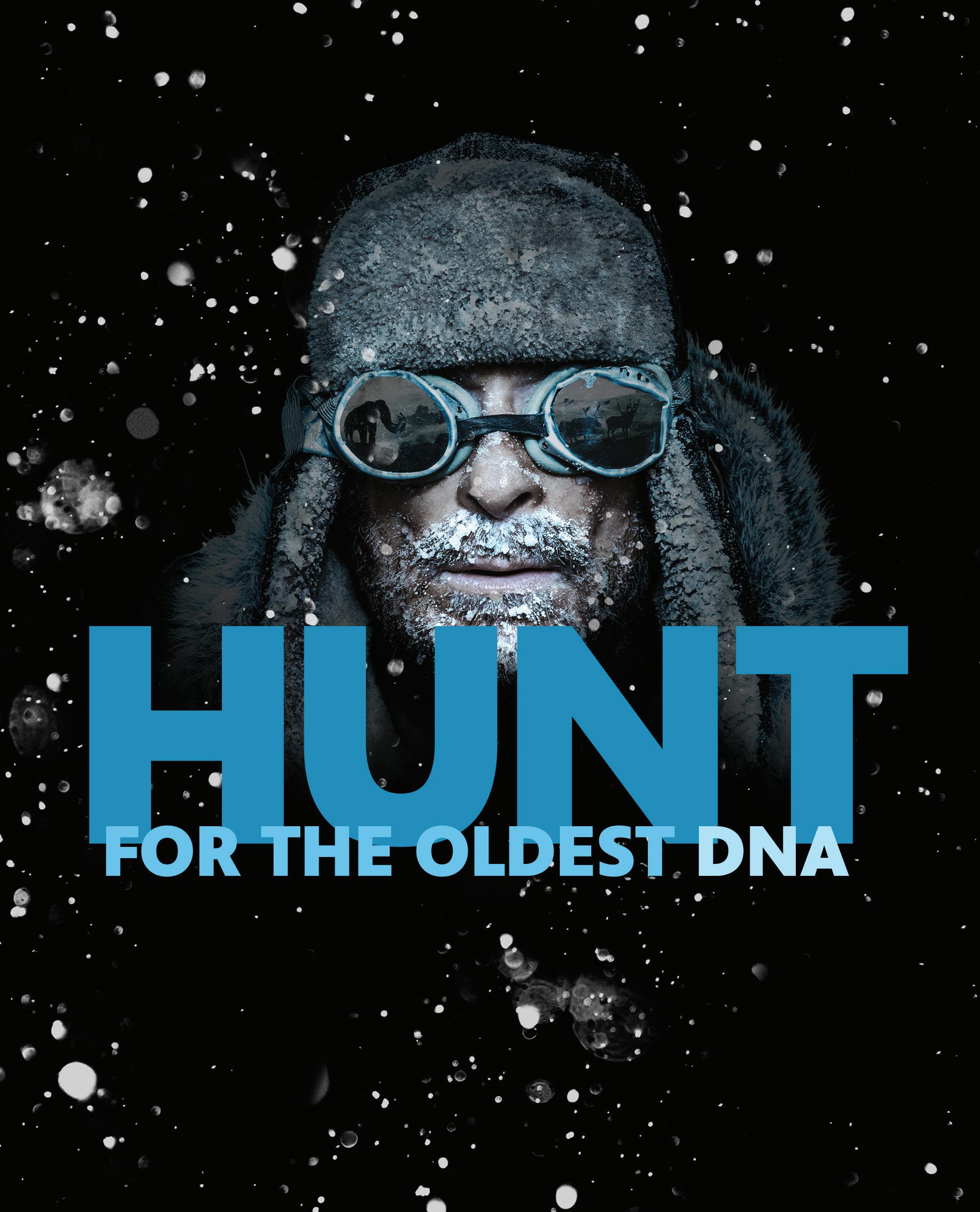








Free enterprise
Quintus Studios is building a content partnership and revenuesharing model for acquired and original unscripted content with its AVoD brand Free Documentary and its spin-o s, powered by YouTube.
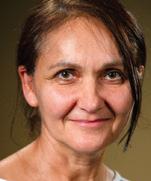 By Gün Akyuz
By Gün Akyuz



Berlin-based Quintus Studios’ ‘next-generation’ AVoD channel Free Documentary and its siblings are mining a disruptive content partnership revenue-sharing model for unscripted acquisitions and a growing slate of originals that creates opportunities for independent factual creators looking to adapt to survive.
An international factual distributor, content commissioner and digital channels operator, Quintus Studios has a complementary suite of 30 factual English-language channels that are gaining traction in the digital space.
Distributed worldwide on YouTube and social media platforms like Facebook and Snapchat, its channels attract a combined 11 million-plus subscribers and over one billion views yearly.
Meanwhile, YouTube is set for further growth, with brand and
marketing agency EssenceMediacom predicting the Google-owned platform will “leapfrog” Netflix in viewership on big screens by the end of 2024.
Quintus’s largest flagship channel Free Documentary (FD) is approaching 4.7 million YouTube subscribers, with a further 2.2 million-plus on Facebook. Its suite of complementary sibling channels includes FD Nature, paranormal channel ENDEVR, FD Crime, FD History, FD Real, FD Survive and FD Shorts, FD Engineering, plus free, ad-supported streaming TV (FAST) channel Radical Docs.
“We have buckets of content and specific shows within those buckets that will work particularly well for Free Documentary,” says Quintus Studios’ creative director Adam Jacobs.
One of those buckets is prison content with




access, typified by Quintus original Behind Bars, made by Maximus Film. The series, which has a fourth season now in the works, offers unique access to different prisons around the world, giving viewers “an insight into what it’s like to actually be a prison today and the conditions that they have to live in,” says Jacobs.
Another content bucket is dangerous places, with flagship shows such as six-part No Go Zones: The World’s Toughest Places, also from Maximus, and where access is also key. The show offers inside access to current or reformed gang members, with viewers gaining “indepth insight into what it’s like to be a part of a gang or a drug dealer, and the effect on the community, and whether there are any green shoots in terms of things improving. Anything dangerous and deadly works really well for us,” comments Jacobs.

“ The majority of our audience on Free Documentary is from the US, usually a middle-aged guy who comes home from a nineto-five or maybe having driven a truck all afternoon. What he might see is someone driving a truck but in a completely different way, in a completely different location
Adam Jacobs, Quintus Studios

Free Documentary skews predominantly male (78%) and a large majority of its viewers are aged between 18 and 54.
Free Documentary skews predominantly male (78%) and 54.
“The majority of our audience on Free Documentary is from the US, usually a middle-aged guy who comes home from a nine-to-five or maybe having driven a truck all afternoon,” says Jacobs. u
“The majority of our audience on Free Documentary is from the US, usually a middle-aged driven a truck all afternoon,”


Channel21 International | Spring 2024 43
Red Zones looks at illicit undersea gold mining off the Philippines
“What he might see is someone driving a truck but in a completely different way, in a completely different location. Sometimes they’re doing dangerous jobs and are being put in slightly perilous positions. They might be overworked or underpaid, but they’re always doing it with a smile on their face. Most of our top-rated shows are set in Africa, Asia or South America, away from the comforts of the western world.”
“While the shows are about survival and deadliest conditions, the overall theme is that while it’s challenging and people do struggle, they survive and they find a way, so the content shouldn’t be too dark,” adds Quintus Studios’ head of sales and coproductions Anouk van Dijk.
Although the vast digital landscape spells potentially stiff competition, van Dijk says Quintus Studios launched a curated linear documentary channel on YouTube from day one 10 years ago and this approach has generated a loyal following as a result.
“We started by taking it seriously as a channel, which also means you take the audience seriously, so that speaks very much to the people who view on this platform. Free Documentary has three title launch days per week in its schedule, and people know what to expect, which builds a loyal audience,” she says.
Jacobs describes the digital channels universe as very different to that of traditional TV. “If you look at, say, National Geographic and Discovery, they’d always be trying to find an angle to differentiate themselves from one another. But on YouTube, it’s very collaborative. It’s about finding ways different [suppliers] can work together. We’re not direct competitors because the content on our YouTube channel is completely non-exclusive and available on other YouTube channels.”
There is the added advantage of YouTube’s real-time audience feedback. “The good thing with YouTube is that you’re in direct contact with the viewers because they’ll post comments on what they like and discussions that are started on a specific topic are of high value to our channel managers,” adds van Dijk.
This freedom also allows digital channels like Quintus’s to be “a little bit more experimental, because it’s quite cheap to do. Plus, everything
we buy and everything that we commission is all longform TVquality, for the most part, so when viewers are watching any of the Quintus channels, they know it’s of a very high standard,” says Jacobs.
Quintus Studios acquires a significant volume of content for its channels, around 150 hours per channel per year, sometimes less for the smaller channels. With its Quintus originals strategy, the group can super-serve existing audience on YouTube with originals in its key content buckets, explains Jacobs. These are developed by Jacobs with external producers and companies.
Flagship Free Documentary is usually the main AVoD window for originals, plus one other channel in its portfolio, depending on the theme.
Van Dijk, who seeks coproduction partners for projects as well as licensing content, says the first year has already led to four pilots. “We started off creating pilots – one-off episodes that could be developed into series. We base all our decisions on the data we have from the channels. So far, we have two projects that have done so well that we’ll go into series.”
One of these is Mission to Collision: Flying Trucks, made in Kenya and coproduced with local prodco Afrika Live Media. The other is pilot Red Zones, made entirely in the Philippines by producer, director and video journalist Fred Gillingham. Within days of its December 2023 launch the pilot had generated up to 130,000 views, ranking second among
the 10 most recent shows launched on the channel for the period. Several linear channels in Europe have already shown very strong interest in the project, says van Dijk.
Highlighting the success of its originals strategy since its launch in 2022, Jacobs says Quintus is gaining recognition as a production partner. “There was a stigma with some people around YouTube and documentaries on YouTube. I had a reasonably good response, but I also had people who said they now only worked with streamers and weren’t interested in AVoD. One of the differences I’m finding is that people are coming to me now with [proposals], and that’s evolved from the success that we’ve had.”
Another development in the past year has seen Quintus disrupt the traditional pitching process by inviting freelance producers to pitch directly, independently of production companies. “The timing has been good because the freelance world was completely ruined [in 2023], and we could give them an outlet and invite them to pitch ideas that fit within our parameters,” says Jacobs.
This is exactly how the pilot for Poverty in Paradise: Las Vegas came about. The pilot, which premiered on Free Documentary’s sibling channel ENDEVR, had generated over 1.1 million views by the end of 2023.
“It means we can work with freelancers, and we can encourage something really quickly, get it on the channel quickly, get it out to sale u

“ While the shows are about survival and deadliest conditions, the overall theme is that while it’s challenging and people do struggle, they survive and they find a way, so the content shouldn’t be too dark.
Anouk van Dijk Quintus Studios

CONTENT STRATEGIES: Free Documentary Channel21 International | Spring 2024 44
Original prison access docuseries Behind Bars from Maximus Film is set for a fourth season

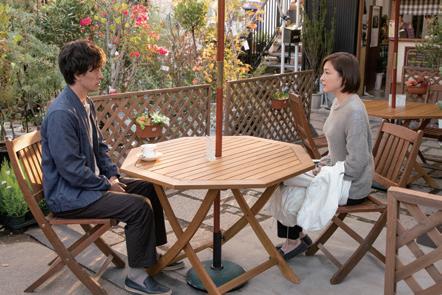


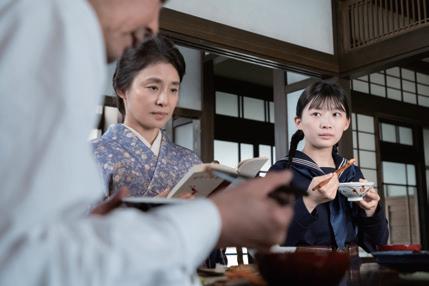








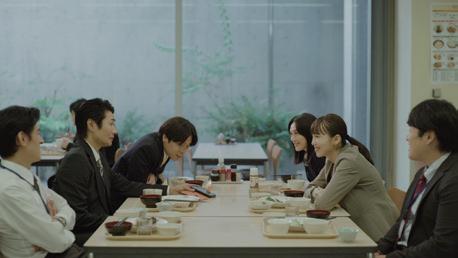













and then see if we can get any linear deals. That’s not to say we won’t work with indies, because we’re happy to do so. It just means that there’s an additional source for us and it means freelancers are working. We won’t be able to offer much, but my door is always open for people to come and pitch me ideas; I’m absolutely happy to take a look,” says Jacobs.
“From a freelancer’s perspective, they see their film go up on YouTube and within a month, they’ve got, say, 1.5 million views and thousands of comments. On top of that, although it’s obviously not guaranteed, there is also the opportunity to sell it to TV broadcasters. And if that happens, the documentary is not only doing great numbers on YouTube, it’s also going on TV stations around the world.”
Quintus Studios does not operate as a production studio itself. Instead, it partners on originals as a channel commissioner involved in the editorial process, with freelancers and production companies producing the series.
“I’m the in-house executive producer on Quintus originals,” explains Jacobs. “I can be as handson or hands-off as [the producers] want me to be, so I see them through the development process, looking at budgets, looking at schedules. But ultimately, it’s down to that freelancer to pool resources and deliver to the agreed contract.”
To freelancers interested in pitching, Jacobs says: “It’s what we need to make a decision on the show. For a pilot, I will ask them to map out what the next three to four episodes might look like. I don’t need loads of detail, just the pilot and a general framework.”
The aim in 2024 is to turn more of Quintus’s originals pilots into series through partnerships. Quintus is also looking to pick up more new originals to pilot.
“I’m getting more ideas sent to me now than I did when I joined in 2022. It’s not the same as a linear broadcast, with a schedule and gaps to fill or that we have to hit certain number of hours per year. It’s generally caseby-case and it’s very much still in its infancy, but the plan would be to scale it up and we would want to do more if what we’re doing at the moment continues to be successful,” says Jacobs.
While YouTube is already global, Quintus is eyeing additional audience

growth for Free Documentary in the AVoD space on Snapchat and Facebook. “We will also look more and more into language versions for different parts of the world, and Spanish is the first language that we’d look into,” says van Dijk.
Genres that Quintus is keen to expand further into on the originals front include wildlife; content about tough jobs; shows hosted by talent with global recognition; and a contemporary mystery show that’s tangible to viewers, rather than based on CGI and archive material.
“We would love to produce an
“ The good thing with YouTube is that you’re in direct contact with the viewers because they’ll post comments on what they like and discussions that are started on a specific topic are of high value to our channel managers.
Anouk van Dijk Quintus Studios
ancient history show, but we’re not there yet,” says van Dijk, citing Quintus’s FD History channel, which includes ancient history topics. “It’s a subject that still works very well within linear, like wildlife. We’d happily take a second or third window to acquire this for our channel because it still resonates with our audience.
While Free Documentary on YouTube is available worldwide, many of its titles will be geoblocked in Europe as most of the region is non-English-speaking and a number of linear broadcast channels often partner with Quintus on those titles
in exchange for the first window, explains van Dijk.
Following a holdback period, those shows then launch on the group’s YouTube brands. “The UK market is always up for discussion, and if there is interest from the linear channels, then we would geoblock it,” she says.
However, in its most successful markets in the US and Asia –particularly countries like India, Malaysia and the Philippines – where audiences and revenues generated for those titles on its digital channels are significant, there’s less need to partner with linear channels. Its biggest success, Behind Bars, is now “very much a digital series, so I’d rather partner up with digital channels in the US open to nonexclusive AVoD deals than [find] partners that need exclusive rights for a number of years,” says van Dijk.
“What we see working best in the US is [partnering with] other AVoD streamers and FAST,” she adds. “There are a lot of FAST channels in the same space that have a genre on, say, crime, looking for this kind of content that we license to. They’ve turned out to be much more interesting for us to work with. We have a few titles now on Tubi, on Samsung TV Plus, on Roku.”
Van Dijk says this strategy also helps increase viewer numbers on a wider scale. “People on Samsung TV Plus are a different audience to our YouTube audience. So within our niche, we’re actually growing the audience on different platforms,” she says. “At the end of the day, the risk for productions is moving from the broadcasters who used to commission for 100% to distributors or to the production companies themselves. We’re very much focused on finding a way to partner with the production companies and share this risk and also share the success.”
Channel21 International | Spring 2024 CONTENT STRATEGIES: Free Documentary 47
Poverty in Paradise: Las Vegas premiered on Free Documentary’s sibling channel ENDEVR




subscriptions declining – with a multitude of economic threats converging on the unscripted business in the US and UK, it’s difficult to find much optimism in the industry at all.
It might, however, not be a bad time to be a Canadian. Always a hotbed of tax breaks and cheaper US-like locations, the Great White North is becoming a pivotal player in getting new coproductions away with embattled US networks for whom 100% commissions are a thing of the past.
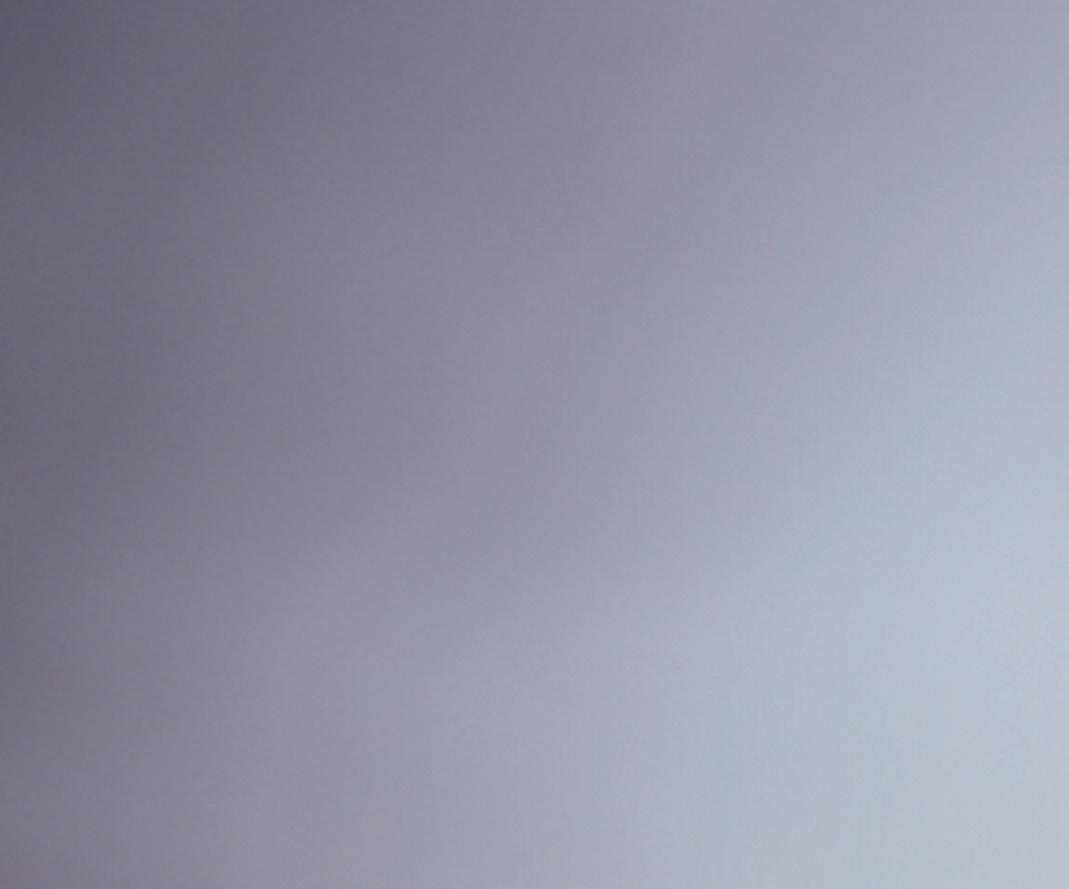

Three-Year Plan Cream Productions

Toronto-based Cream Productions is one such firm trying to create opportunity out of a crisis and its recent aptly named series An Optimist’s Guide to the Planet is a prime example of how.


financial incentives of tax breaks, coproductions and a beneficial
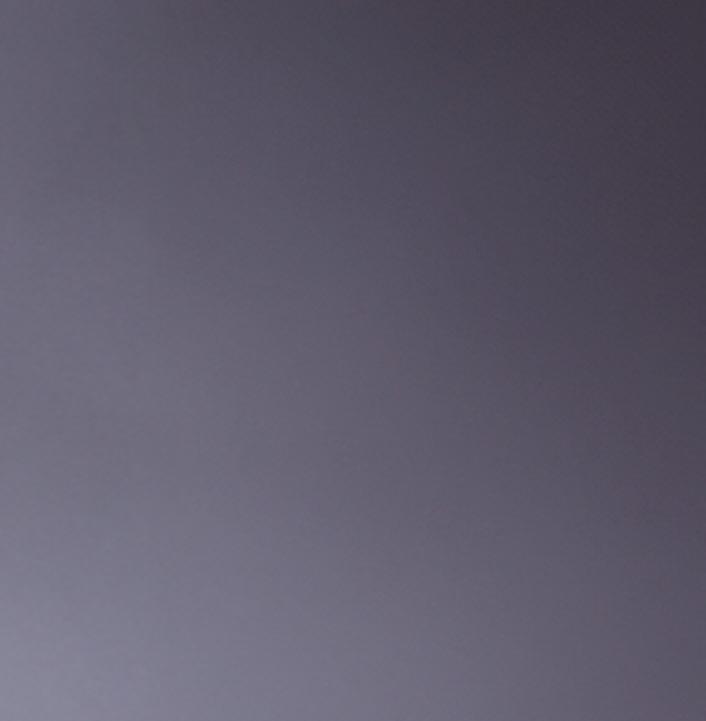
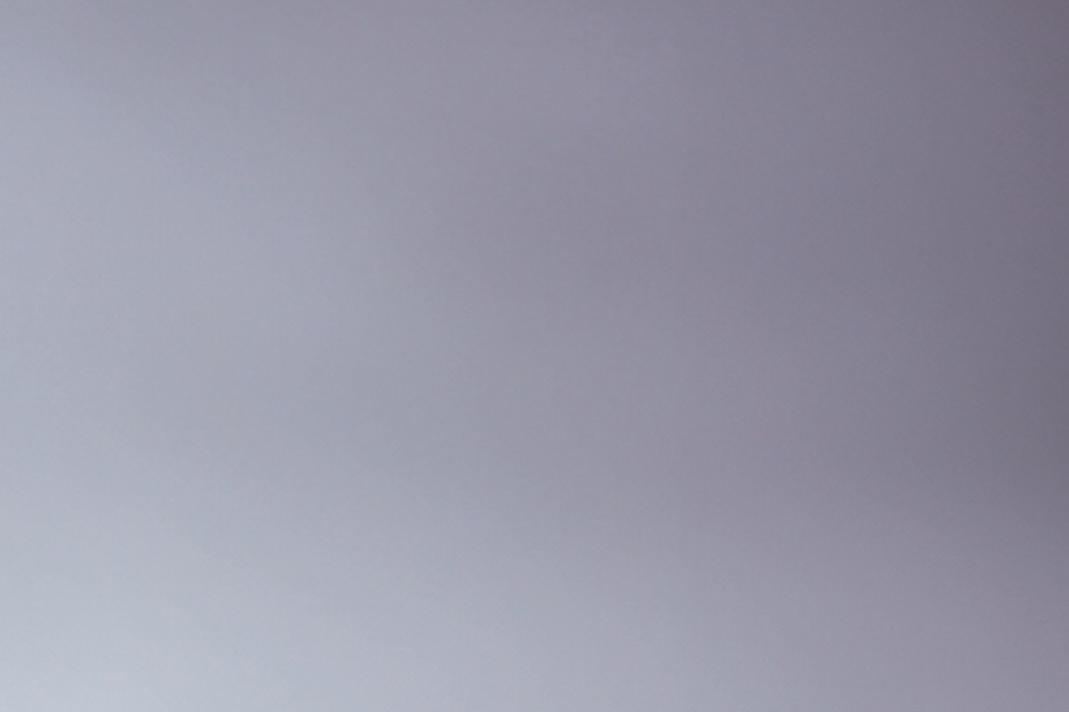


US business network Bloomberg was first to board the project through its originals initiative, but to meet the budget of a series that filmed across five Game of Thrones

Bell Media’s Crave in Canada turned it into an international coproduction, but as Coster-Waldau is Danish rather than Canadian, it needed a UK company to board to make it a treaty coproduction and maintain access to tax credits.

board the project through its originals initiative, but continents and is fronted by actor Nikolaj Coster-Waldau more would be required.


It’s really tough out there if you’re a
US network with budget pressures.


Philip Clarke at London’s Wildfire Productions stepped up to handle the production travel logistics. Then it just needed Cineflix Rights to sign up as distributor and they had themselves a show.
Such are the hoops one must jump


through to get a factual series off the ground in 2024.
David Brady, CEO of Cream Productions, says: “The situation has changed drastically very recently. The entertainment business globally has had a real shake-up in the past 12 months. Full commissioning
“The situation has changed drastically very recently. has decreased a lot.
“We’ve been doing coproductions as a company for 20 years. With the Canadian dollar not doing that well against the US dollar, tax breaks and our experience putting together partnerships with multiple broadcasters and networks, we’re poised to take advantage of this coproduction necessity.
that well against the US dollar, tax breaks and low
“American networks want price points to come down whether they’re fully commissioning or coproducing and the low Canadian dollar and any kind of tax break attracts them to us, which is great.

 David Brady
David Brady
“I have a lot of colleagues and friends on the network side who are working their tails off to do the job they’ve been hired to do, which is identify, develop and invest in programming. Whenever they have meetings they’re trying to stay optimistic and put a smile on.
“When you have these conversations it sounds like it’s business as usual. Then you watch the speed of deals being done at our company and elsewhere and
it’s a lot slower than usual. There are great conversations and development happening, but investing and purchasing has slowed down. That’s anecdotal; it’s a feeling I get from the industry that it’s quite slow.”
conversations and development happening, but investing and purchasing has slowed , made by Jennifer Baichwal,

The project itself grew from a 2018 Canadian feature doc called Anthropocene: The Human Epoch made by Jennifer Baichwal, Nicholas de Pencier and Edward Burtynsky about the effect human beings have had on the planet post-industrialisation.
The team approached Cream about bringing the message to a wider audience through television,

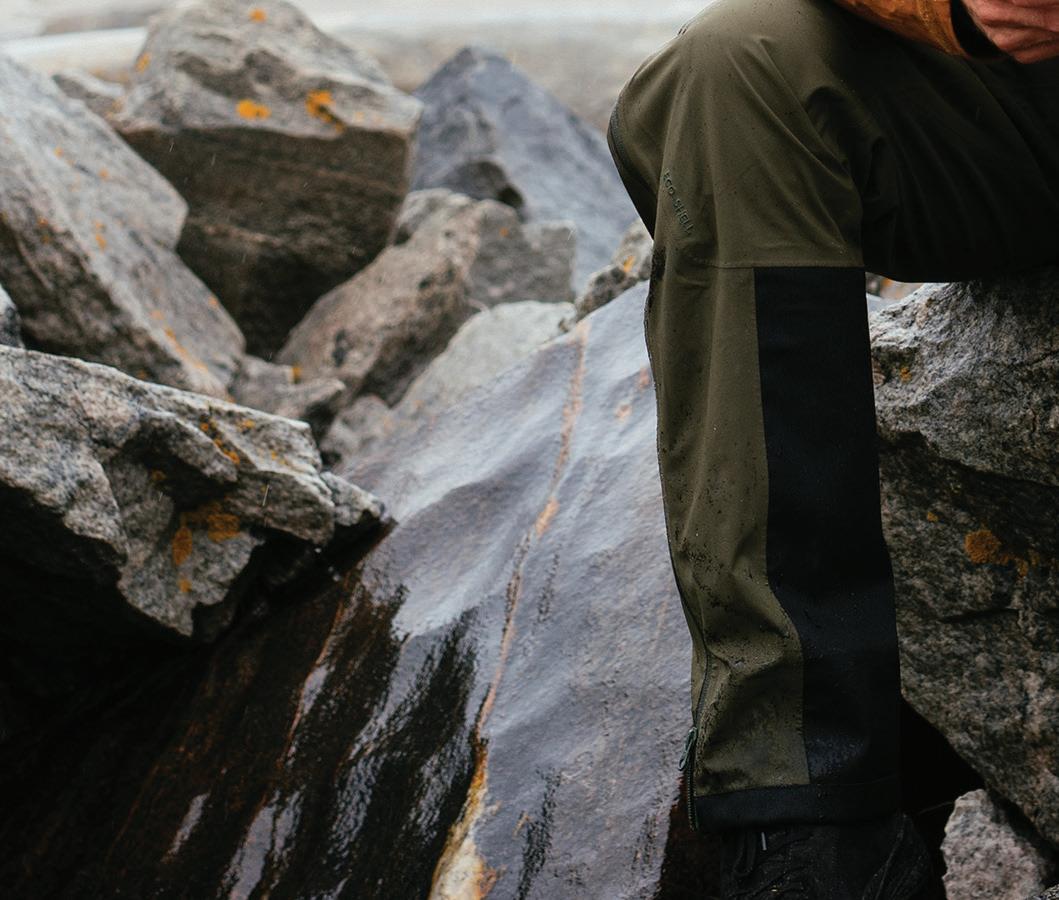
as bleak as it is now. The trends commissioners speak about now are very much escapism, lighter,


but there’s a problem. Commissioners used to refer to conservation as ‘the C word’ long before politics, economic strife and the pandemic turned the mood as bleak as it is now. The trends commissioners speak about now are very much escapism, lighter, feel-good TV for people arriving home from another long day at work.

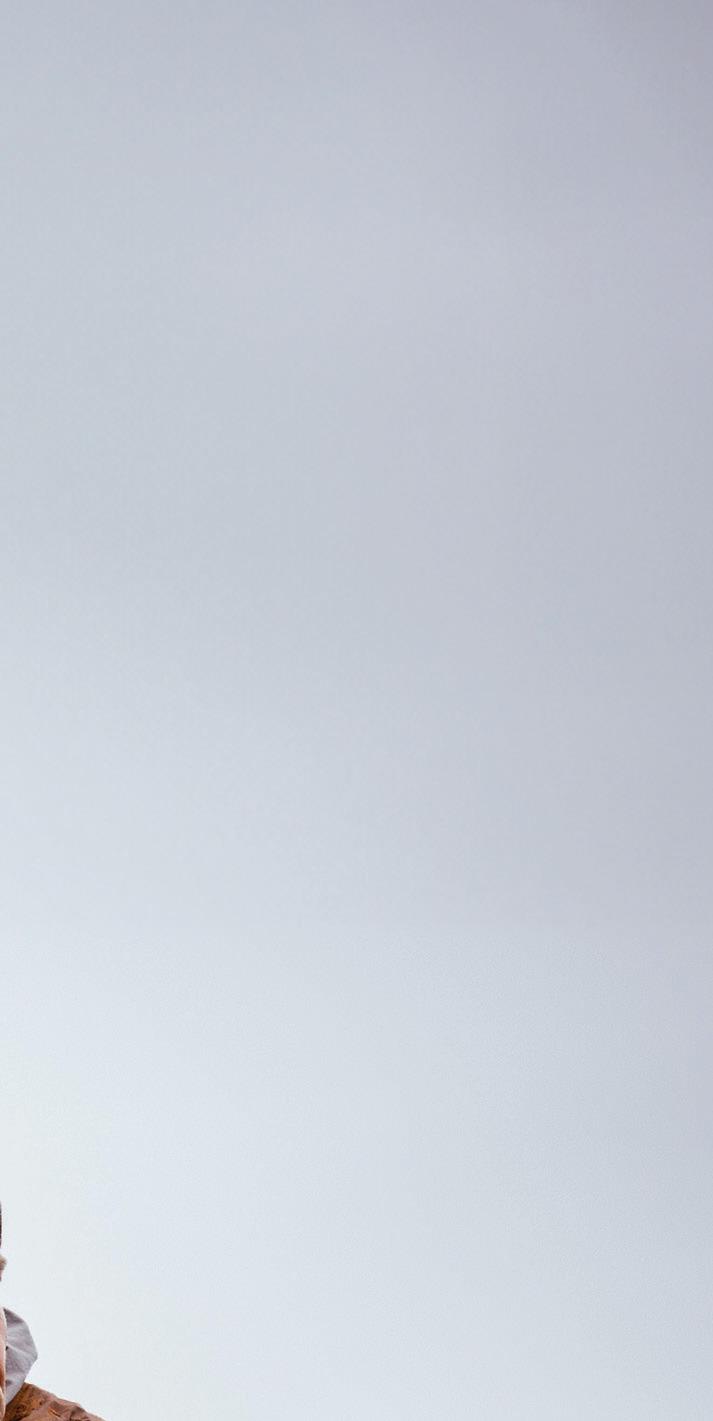

Brady, whose wife came up with the Optimist’s Guide title, says: “Buyers want to entertain and they believe the viewers, after a day at work, want to be entertained. There is a little more latitude for all kinds of programming but the trend is definitely for a bit of lightening up. We didn’t react to that and make the show because of it, we made the show because we truly believe there is an optimistic and amazing future.”
the industry headwinds, Brady is futureproofing the next three years by having a broad slate. “We just put out a

As Cream continues to battle against the industry headwinds, Brady is futureproofing the next three years by having a broad slate. “We just put out a theatrical horror film and will do another in the fall. Our unscripted side continues with a ninth season of and we’re hoping for a 10th. In music programming and film, we’ve launched a biopic about a Canadian band called Blue Rodeo. We’ve also put out a virtual reality game with Meta and PlayStation called Survivorman


continues with a ninth season of Fear Thy Neighbour and we’re hoping for a 10th. In music programming and film, we’ve VR.”

Channel21 International | Spring 2024
Nikolaj Coster-Waldau fronts An Optimist’s Guide to the Planet
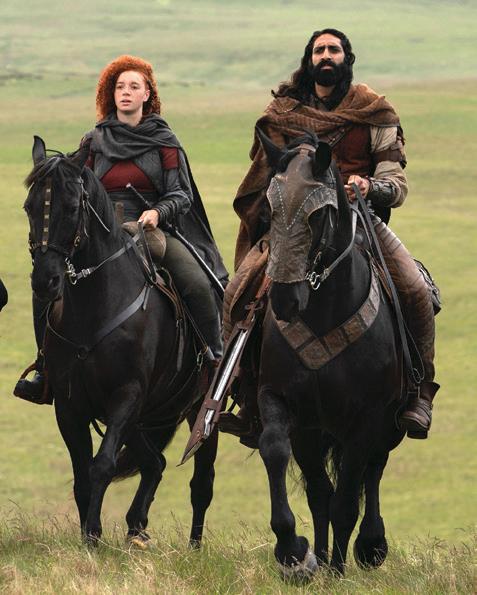

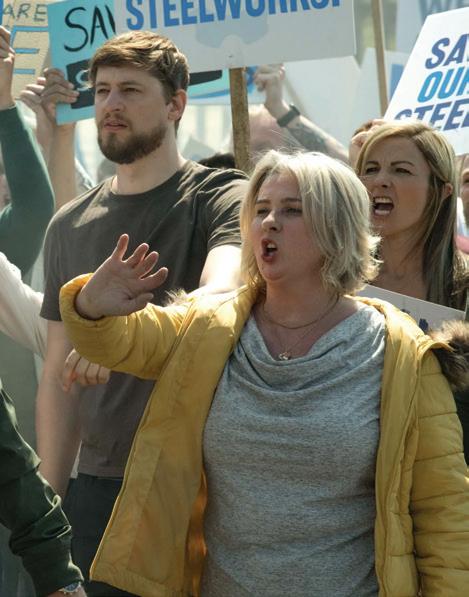
Drama
SPECIAL REPORT: How will streamer and broadcaster cutbacks impact the UK’s high-end TV drama industry? Everything about content Spring




2024

BASED ON THE AWARD-WINNING MOVIE FRITZI –A REVOLUTIONARY TALE

 BY RALF KUKULA, MATTHIAS BRUHN, THOMAS MEYER-HERMANN
BY RALF KUKULA, MATTHIAS BRUHN, THOMAS MEYER-HERMANN

SHE SAYS, HE SAYS
BY MATTI GESCHONNECK

WRITTEN BY THE BESTSELLING AUTHOR FERDINAND VON SCHIRACH


ENORMOUS BOX OFFICE HIT IN GERMANY WITH OVER 1.2 M ADMISSIONS

SOPHIE
BORDERLESS FRIENDSHIP
FRITZI AND
– A
Family Entertainment Series 8 × 22 min Produced by Balance Film, TrickStudio Lutterbeck, Studio FILM BILDER in co-production with ARD, MDR, WDR, SWR German with English subtitles
Drama TV Movie 105 min Produced by MOOVIE GmbH, ZDF German with English subtitles CURIOUS TOBI AND THE TREASURE HUNT TO THE FLYING RIVERS
HONSELL Family Entertainment 92 min Produced by Megaherz in co-production with Bayerischer Rundfunk German with English subtitles CHECK OUT OUR HIGHLIGHTS! WWW.GLOBALSCREEN.DE
BY JOHANNES



“ The market is still unpredictable. Finding American partners is really challenging right now. We’ve all had the messaging from studios that they’re tightening their belts. Money has to go further.
Bianca Gavin Pulse Films


After the gold rush
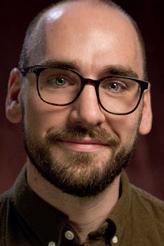
WAs belt-tightening at the US streamers and local broadcasters’ financial woes expose how reliant on Hollywood the UK’s high-end TV drama industry has become, this special report explores whether the sector will bounce back or plateau. By
Nico Franks
ith ‘Peak TV’ well and truly in the rear-view mirror, the outlook for the UK high-end TV (HETV) industry – one of the main beneficiaries of the era of free-spending streamers – is cloudy.
At the London TV Screenings in February, the consensus around town seemed to be that things may not be as great as they were during a boom period that was boosted by binge-watching during the pandemic, but the going is still good for UK scripted, especially compared with unscripted.
The country remains abuzz with production and, walking around London’s many landmarks, one is still likely to come across evidence of an HETV series being filmed somewhere nearby, be it in the luminous signage directing crews where to go or notices of filming pegged to lampposts.

This helped grow local business activity and jobs across the UK. However, it also led to a shortage of studio space, concerns over a ‘crew crunch’ and the introduction of schemes to grow the UK’s production talent base.
The fact that one hour of scripted TV in the UK is now categorised into four budget bands (band one up to £1.25m, band two £1.25m-£4m, band three £4m-£7m and band four £7m-plus) only goes to highlight how flush the sector has become. Or should that be became?
Because since then, the reduction in spending by US streamers, the ad market turning away from TV, and dual Hollywood strikes in 2023 have combined to bring the UK’s once high-flying HETV industry down to earth.

The term HETV became widespread in the UK over a decade ago following the introduction of a game-changing tax break in 2012, available to any project with a budget of more than £1m (US$1.3m) per episode.
It helped to create the ‘golden age’ of UK drama financing that we enjoyed until not so long ago, when commissions and co-commissions from local broadcasters and US streamers drove investment in UK TV drama to record levels during the pandemic.

Inward investment in UK film and HETV production halved in 2023 compared with 2022 because of the strikes in the US, which suspended production halfway through the year, according to statistics released by the British Film Institute (BFI) in February.
Foreign money invested in UK film and HETV production last year totalled £3.11bn, down from £6.27bn in 2022. Film contributed £1.04bn, with HETV making up the remaining £2.07bn. In 2022, the figures were £1.97bn for film and £4.3bn for HETV. u
Channel21 International | Spring 2024 UK high-end TV 51
UK-shot Apple TV+ series Masters of the Air
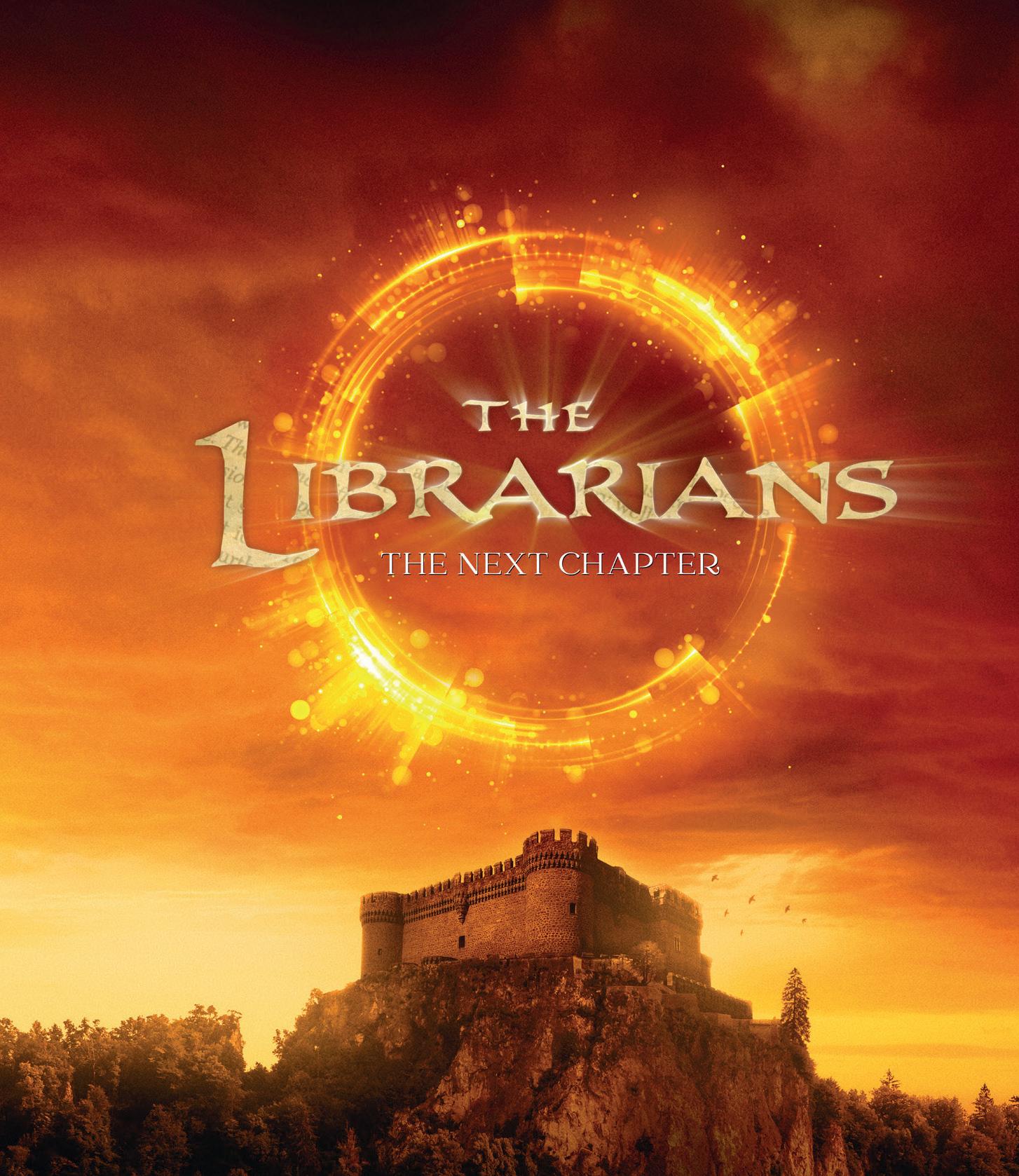













Meanwhile, recent Ampere Analysis data has revealed that the appetite for new scripted television series is down between 30% and 40% from its peak two years ago.






productions filmed in the UK – and globally – the trend remains high.”



“There was optimism that after the strikes everything would return to the boom time,” says Bianca Gavin, head of production at UK-based Pulse Films, who is responsible for the firm’s feature and HETV slate. This includes of London, the third season of which is currently shooting in the capital for Sky in the UK and AMC+ in the US.
“The market is still unpredictable. Finding American partners is really challenging right now. We’ve all had the messaging from studios that they’re tightening their belts. Money has to go further,” says Gavin, who is also chair of the Production Guild of Great Britain and former senior production executive for European Union scripted originals at Amazon Studios.


“But what I feel we can rely on, which gives me a sense of optimism, is that the UK will remain such an important hub because it is a very desirable place to work and we have so much talent here.”


















Gavin’s hope is that this recent quiet period is simply part of the cyclical nature of the business. But as thousands of freelancers consider their futures, the industry must do its best to get through this period of turbulence while holding on to as much talent as possible.
“I worry that we opened the doors to freelancers from low socio-economic backgrounds and they haven’t been able to sustain quieter times in our industry, like during last year’s strikes. It’s so important we don’t become an industry that’s only for people who can afford to work in it. There’s more that we need to do,” says Gavin.
But could this quiet period be the beginning of a longterm problem for HETV production in the UK?

Adrian Wootton, chief executive of Film London and the British Film Commission (BFC), agrees times are tough. “Globally, the environment for film and TV production has become challenging for a number of reasons. However, despite this, the UK remains a leading global centre for film and TV production, attracting international and domestic producers to make their content here,” he says.
Among the HETV series being shot in the UK at the time of writing were Lockerbie (Netflix/BBC), The Devil’s Hour (Prime Video), The Franchise (HBO), Curfew (Paramount+), Department Q (Netflix), Outlander: Blood (Starz), Too Much (Netflix), Andor Silo (Apple TV+), The (Netflix), The Sandman (Prime (Netflix).




Department Q of My Blood (Disney+), Diplomat Video) and Black Doves (Netflix).

The UK’s beleaguered indie feature film industry was boosted by news in March of an extended independent tax credit for films with budgets between £1m and £15m, which Ben Roberts, the BFI’s chief executive, described as “the most significant policy intervention since the 1990s.”
At the beginning of 2024, the audio-visual expenditure credit (AVEC) came into being to eventually replace the film, HETV, animation and children’s TV tax reliefs. From April 1, films that meet the criteria will be able to claim an increased AVEC of 53%, up from 34%.
To qualify for the UK’s creative sector tax incentives, all films, animation and TV programmes or video games must be certified as British through the cultural test or qualify as an official coproduction.
Producers developing HETV titles are also set to benefit from changes to tax credits for visual effects (VFX) costs. The tax credit rate will increase by 5% from April 1, alongside the removal of the 80% cap for VFX costs in the audiovisual expenditure credits.
“ It is to be expected that we will see a reduction in the rate of commissioning globally. Even if this leads to a natural decrease in the rate and number of productions filmed in the UK – and globally – the trend remains high.
Adrian Wootton Film London/BFC
“Due to industrial action in the US last year, most inward investment productions halted in July 2023, accounting for the 49% decrease in inward investment. Although a significant decrease, the UK inward investment total for 2023 is comparable with the full-year total for 2022 in which production continued as usual.”
Wootton believes there are further reasons to be cheerful: “As studios and streamers continue to review their commissioning strategies, it is to be expected that we will see a reduction in the rate of commissioning globally. Even if this leads to a natural decrease in the rate and number of
HETV shows and films currently have a headline credit rate of 34%. This equates to 25.5% in actual relief, capped at 80% of core expenditure, but with no budget limit. The increase will bring the headline rate to 40%.
The Production Guild of Great Britain, producers’ trade body Pact and Sky Group CEO Dana Strong were among those to welcome the tax credit boost and plans to cut business rates for eligible film studios until 2034.
Strong said the move “brings confidence to the sector, unlocking job opportunities whilst providing a stable foundation for the investments of tomorrow in the UK. According to our research, the UK film and television industry could be worth an additional £10bn to the UK economy each year by 2033.”
The tax credit boost comes amid something of an






Channel21 International | Spring 2024 AHEAD OF THE CURVE:
Gangs
senior scripted originals at Amazon Studios.
u
Doctor Who led the way for a number of HETV series to film in Wales
‘arms race’ between various countries around the world when it comes to tax incentives as they each seek to lure international productions.
The UK HETV industry already draws from a variety of funding sources, domestic and international, public and private. Crucially, as the recent breakout hit Mr Bates vs The Post Office on ITV and ITVX demonstrated, public broadcasters are still able to command huge audiences and deliver massive impact.
Moreover, there’s no sign of Netflix shying away from the UK market and the global streamer recently ordered a raft of new HETV dramas, including crime drama Adolescence (working title), from Warp Films in coproduction with Hannah Walters and Stephen Graham’s Matriarch and Brad Pitt’s Plan B Entertainment.
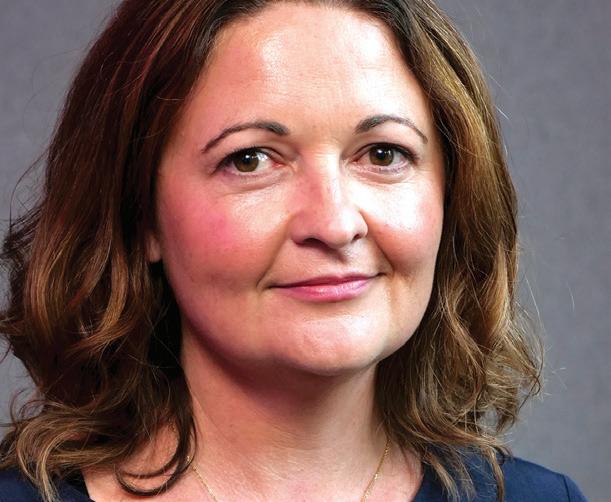
“ We went through what you could call a gold rush during Covid, and could that really last? Probably not. It’s certainly not fallen off a cliff from our perspective.
Kaye Elliott ScreenSkills
Kaye Elliott, director of HETV at UK industry training body ScreenSkills, paints an optimistic picture, despite a bumpy few years. “We went through what you could call a gold rush during Covid, and could that really last? Probably not. It’s certainly not fallen off a cliff from our perspective. There are still a huge number of shows being made and within budget bands two and three in particular. In the last financial year we supported 199 productions in total,” she says.
“This year, even with the strikes, it’s only 25 fewer shows,” says Elliott, who last year celebrated 10 years of the HETV Skills Fund, which has invested over £36m in skills and training since 2013. ScreenSkills trainees worked on Boarders, the recently launched six-part series produced by Studio Lambert for BBC Three and BBC iPlayer.
Meanwhile, there’s no doubt that ‘soft money’ continues to help keep the cameras rolling on UK HETV, and without these financing tools, the industry would be looking at greater problems.
Government-backed organisations such as Creative Wales, meanwhile, have been established to promote and grow the creative industries where they are based, offering funding, support and guidance across a range of sectors, including TV and film.
While the pandemic saw a boom in activity for the organisation, there’s no mistaking the universal gesture for a rollercoaster ride that Creative Wales deputy director Gerwyn Evans makes on our Zoom call to describe the upand-down nature of the industry in recent years.
Since 2020, the organisation has awarded £18m in capital funding to a range of projects, including HETV, film, animation and games, with an overall estimated impact to the Welsh economy of over £200m from productions such as Netflix and Eleven Film’s Sex Education, Wolf from Hartswood for the BBC, Black Cake from CBS/Hulu for Disney+ and Men Up from Boom, also for the BBC.
“It’s a very cyclical industry from our perspective. The success in Wales over the last 10 or 15 years has been in HETV drama on the back of Casualty and Doctor Who relocating to Wales and shows such as Bad Wolf’s His Dark Materials leading to a growth in studio space,” says Evans.
There’s more studio space in Wales than anywhere in the UK outside London and the south-east of England at the moment and those studios need to be kept full. This is something Evans admits can be hard when most
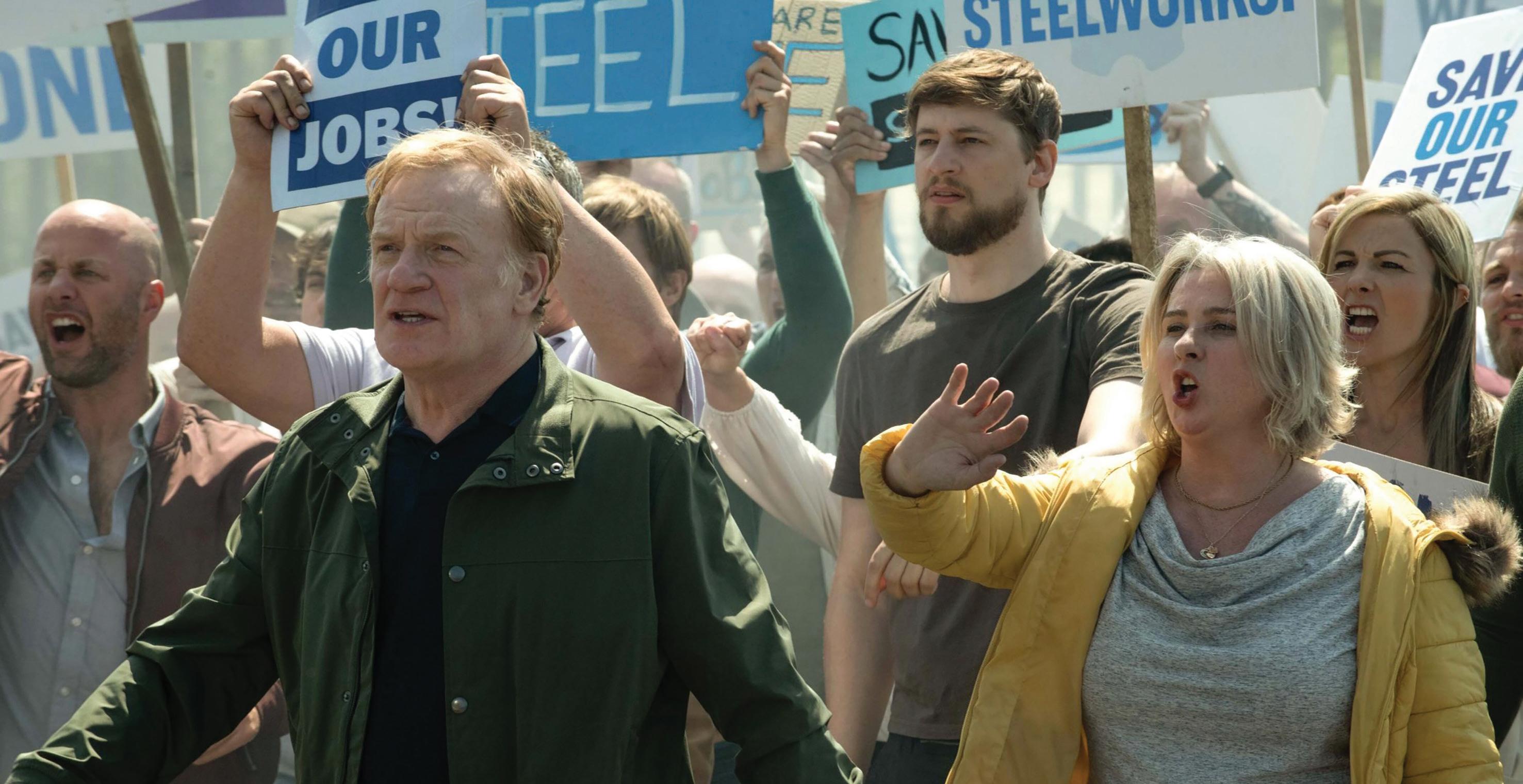 Michael Sheen’s The Way picked up support from Creative Wales u
Michael Sheen’s The Way picked up support from Creative Wales u
AHEAD OF THE CURVE: UK high-end TV Channel21 International | Spring 2024 54



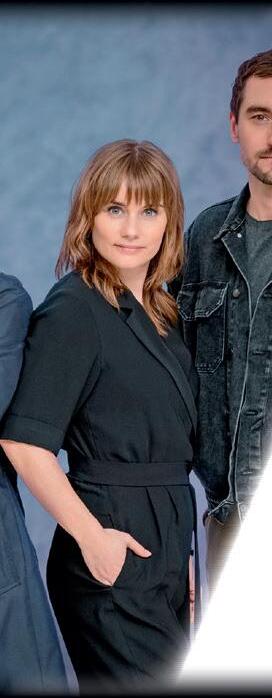
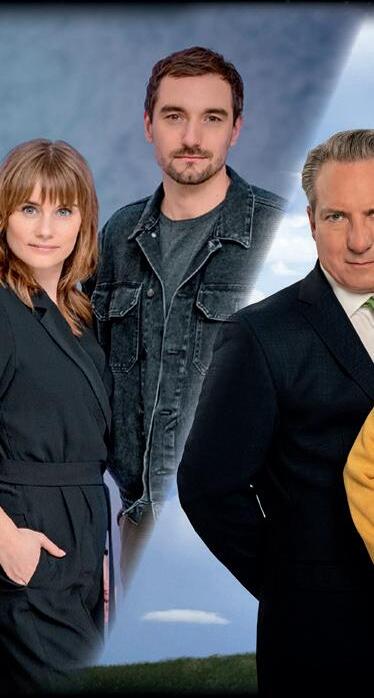
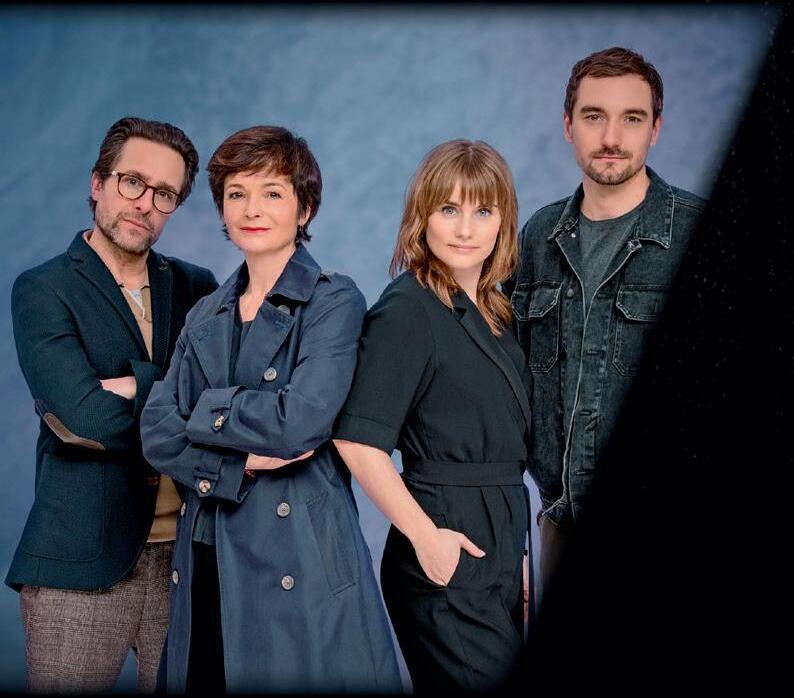

























contentsales.ORF.at

IN ASSOCIATION WITH
HETV series are not guaranteed to be renewed with the same reliability as a show like Doctor Who, which Evans describes as a “whole ecosystem by itself” due to its hefty budget per episode, reportedly of between £5m and £10m.
US streamers, as the industry has learned in recent
£10m to £15m made with public broadcasters the BBC, Channel 4 and Wales’ S4C. But with these broadcasters’ budgets being squeezed, major inward investment productions – “the big shiny things from the States,” as Evans calls them – remain necessary to keep the studios filled.

years, can be unpredictable. Creative Wales learnt this lesson after Disney+ decided to not only cancel the US$100m-budget Willow after one season but to remove it from its streaming service entirely. Creative Wales had invested £4m to bring the Lucasfilm project to Wales (with a £44m return spend from the Mouse House in Wales) and Disney’s decision reflected a drastic course correction in the streaming market.
While recent investment from US streamers such as Disney+, Amazon Prime Video, Netflix and Apple TV+ –which filmed its US$250m-plus Second World War drama Masters of the Air in the UK – are no doubt appreciated, ScreenSkills’ Elliott emphasises the importance of the UK’s domestic broadcaster ecosystem to the long-term viability of its HETV sector.
“There’s a lot of consolidation and change happening in the streaming area. That has led to them becoming more cautious. We work to whatever the market is commissioning, but if you look at the past, domestic broadcasters are the people who keep making things and are key to workforce development,” she says.

“We try to get two or three big shows a year if we can. That obviously dropped off last year with the strikes and hasn’t really come back yet. Our numbers were down substantially last year because we didn’t have any big streamers in. It’s that stark. If we don’t have any streamers our numbers are down and if we do they’re up, because their shows are bigger.
“I look at some of the studios they’re planning to build now in England and Wales and I’d be very worried if I was behind them. Supply and demand seems to be tipping too much to the supply side,” says Evans.
Concerns around an over-abundance of studio space are not restricted to the UK, with US actor, filmmaker and studio owner Tyler Perry recently putting his US$800m studio expansion in Atlanta on hold after seeing the potential of OpenAI’s impressive, and some say terrifying, text-to-video model Sora.
“When you see Tyler Perry cancelling an US$800m investment in Atlanta because he’s seen Sora and what it delivers, that’s alarming,” says Kenton Allen, CEO of ITV Studios-backed Big Talk Studios, who believes the era of free-spending streamers is over.
“The super-premium shows, of which there were too many, there’s definitely a market contraction there. Scripts were being written with no view as to what they might cost. But the money was magically found for an episode set on the moon and another set in the deep blue sea. Those shows will still be there and they’ll be based on IP.”
“ I look at some of the studios they’re planning to build now in England and Wales and I’d be very worried if I was behind them. Supply and demand seems to be tipping too much to the supply side
Gerwyn Evans Creative Wales
Creative Wales is now determined to bring in projects with strong chances of returning while ensuring any production supports a pipeline of new talent from diverse backgrounds. It also wants to ensure it supports the country’s independent TV production sector by helping fund local dramas such as Men Up, The Way and Lost Boys & Fairies on the BBC.
“We don’t rely on the US streamers as much as other parts of the UK and have focused on developing Welshportrayal content,” says Evans.
These shows tend to be medium-sized with budgets of
ScreenSkills’ Elliott adds: “It does feel like we’ve perhaps reached a point where we probably don’t need to be building new spaces. But maybe there is need for further space in areas outside of London and the south-east.”
One player who certainly agrees with the latter statement is Leo Pearlman, co-founder and managing partner of Fulwell 73 and one of the backers of a major new studio development in the north-east called Crown Works Studios, which celebrated securing government funding earlier this year.
Sunderland-born Pearlman rejects concerns that the supply of studio space in the UK could outstrip demand, and claims that Crown Works will be one of the largest HETV and filmmaking complexes in Europe. Pending planning permission, construction on the complex could begin this summer, with work scheduled for completion by 2028.
The film and HETV industries will “emerge stronger” from their current challenges to drive demand for studio space in the UK, he believes.
“Globally, film and HETV are still recovering from two huge shocks: the pandemic and the strikes. We’re very
Channel21 International | Spring 2024 AHEAD OF THE CURVE: UK high-end TV 57 u
Disney’s decision to drop Willow after a single season reflected changing market conditions
confident the industry will emerge stronger,” says Pearlman. “Crown Works Studios will kick-start the creation of an entire production ecosystem in the north-east and beyond, opening up new opportunities, enhancing our appeal and ensuring the UK remains competitive internationally.”
FulwellCain Studios, a joint venture between Fulwell 73 – which has an office in Sunderland – and London-based investment firm Cain International, has already raised around £450m in private finance to pay for the construction of Crown Works Studios.
Meanwhile, in its spring budget, the UK government committed to a deal that will contribute up to £120m to the building and development of 20 sound stages in Sunderland, Tyne and Wear.
Josh Berger, former BFI chair and ex-head of Warner Brothers UK, said at the time of the announcement: “It is good for the industry and for the north-east of England to expand studio space geographically for major highend film and TV. It will undoubtedly attract further inward investment for the whole of the UK, and that can surely only be beneficial.”
Bruce Hendricks, executive producer of Pirates of the Caribbean, added: “In the long term, it’s evident the UK needs more studio space to stay on top. The Sunderland studios project is exactly the kind of initiative that could make a difference.”
Studio space in the UK has doubled in the last three years and, at the current rate of expansion, it has been predicted that by the end of next year it will be second only to Hollywood globally.
Among those concerned by the growing amount of studio space in the UK contrasting with a decreasing amount of commissioning activity has been veteran UK/Asia reality formats showrunner and former BBC executive Jonathan Glazier, who has said they may one day resemble “ghost towns.”
But Wootton, of Film London and the BFC, is bullish about the UK’s ability to fill its studios: “Long-term investments have been made into the UK’s studio infrastructure, with streamers and studios committing future productions to stage-space facilities in the UK. Recently, I visited LA with BFC colleagues to meet with a range of studios and streamers, who not only greeted us with enthusiasm, but confirmed that the UK remains a key destination of choice for their scripted content.”

But with US crew union IATSE saying it is prepared to strike later this year if it is unable to get a satisfactory new deal with the US studios and streamers, there’s also the potential for the UK industry to be rocked by a strike of its own, as Pact and local performing arts and entertainment union Equity prepare to begin contract negotiations in April.
“If there are strikes, I would hope everybody understands the importance of resolving them as soon as possible in order to still have a workforce at the end of it,” says Pulse Films’ Gavin.

approaches to things. Hopefully, we have protections where protections are best placed.”
HETV may be safe for the time being, but it’s only a matter of time before a TV soap is made entirely by generative AI, James Hawes, director of Apple TV+’s hit UK HETV drama Slow Horses, told the British Film & High-End TV Inquiry in February.
“Someone will say, ‘Create a scene in an ER room where a doctor comes in and he’s having an affair with a woman and they’re flirting, and someone is dying on the table,’ and [AI] will start to create it. Maybe it won’t be as polished as we are used to but that is how close we are getting,” Hawes said.
During the same inquiry, Hawes also pointed to the UK HETV industry’s reliance on inward investment by major US players. “There are down sides because it has inflated costs and therefore domestic production is finding it hard to compete for the best practitioners. It’s been very busy out there, although not right now,” said Hawes.
For UK production companies like Big Talk Studios that have “never really been in the super-premium end of things,” according to Allen, HETV in the UK is one part of the TV business that remains in relatively rude health.
“We’ve always – and it may sound logical – written scripts to budget, and that wasn’t the case often in the SVoD boom. There are huge opportunities for one-hour shows in the £2m-£3m range per hour, which is what you can realistically finance from a combination of licence fee, tax credit and a reasonable distribution advance,” says Allen.



The UK industry will be crossing its fingers that the recent negative cycle is already over and a new, more buoyant one is about to begin. Evans at Creative Wales says this could be demonstrated by recent conversations he has had with potential investors.
“Probably over the next weeks and months it’ll start speeding up. We find ourselves in a difficult position, the same as everywhere else. But over the past couple of weeks the phone has started to ring again,” says Evans.
“ The superpremium shows, of which there were too many, there’s definitely a market contraction there. Scripts were being written with no view as to what they might cost.
Kenton Allen Big Talk Studios
“Change is going to accelerate. Maybe the up for what it’s going to be like to

“Change is going to accelerate. Maybe the last few years have just been a warmup for what it’s going to be like to be nimble, because AI does hint at a lot of revolutionary


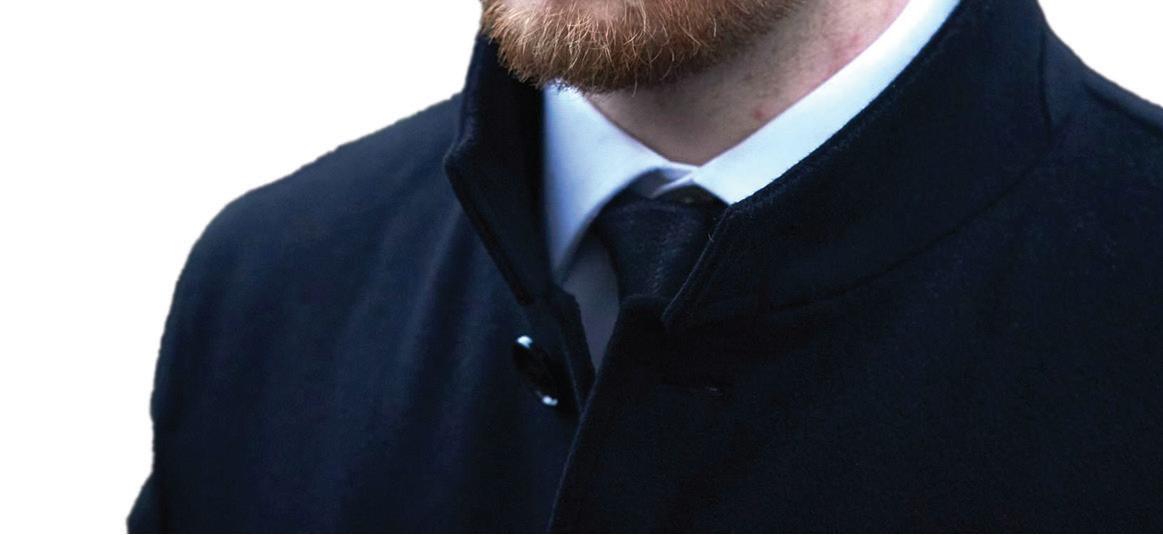
Elliott, who doesn’t sense an “appetite” for a strike in the UK industry, adds: “The
develop and grow people in a much more careful way and people can have long-term, sustainable

Elliott, who doesn’t sense an “appetite” for a strike in the UK industry, adds: “The future looks really positive. It might not be that crazy time where you couldn’t find people [but] I don’t necessarily think that’s a bad thing, because it means we can develop and grow people in a much more careful way and people can have long-term, sustainable careers. HETV in the UK isn’t going anywhere.”

UK isn’t going
 ScreenSkills trainees worked on the BBC Three comedy Boarders
ScreenSkills trainees worked on the BBC Three comedy Boarders
AHEAD OF THE CURVE: UK high-end TV Channel21 International | Spring 2024 58
Joe Cole in Pulse Films’ Gangs of London

Amazon Kids+ makes play for influencers
Kids

Melissa Vega on Folivari’s global goals

Kidcos shi into content production
PLUS: Ellipse Animation’s Audebert and Hannou talk European expansion and reaching young audiences

Sat 25th May 2024
Galway Bay Hotel
Galway, Ireland
Creativity Business Innovation



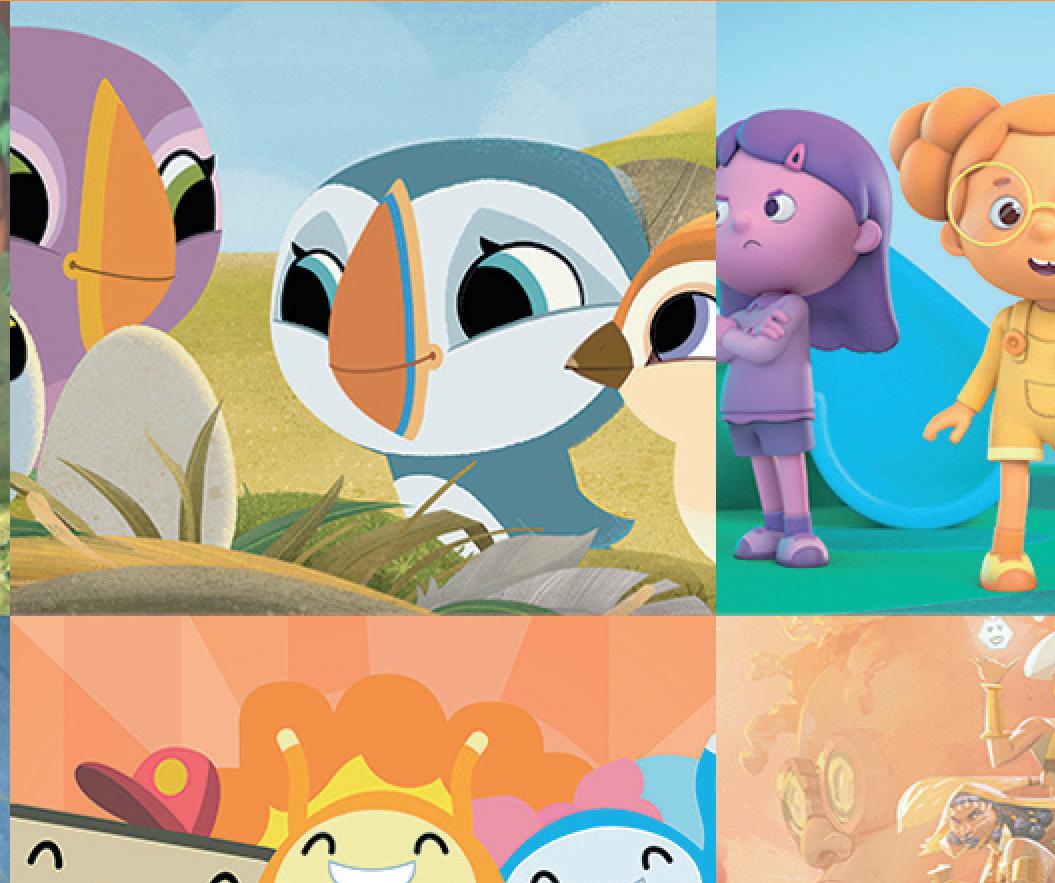



Everything about content Spring 2024

Sat 25th May 2024
Galway Bay Hotel
Galway, Ireland
Creativity Business Innovation
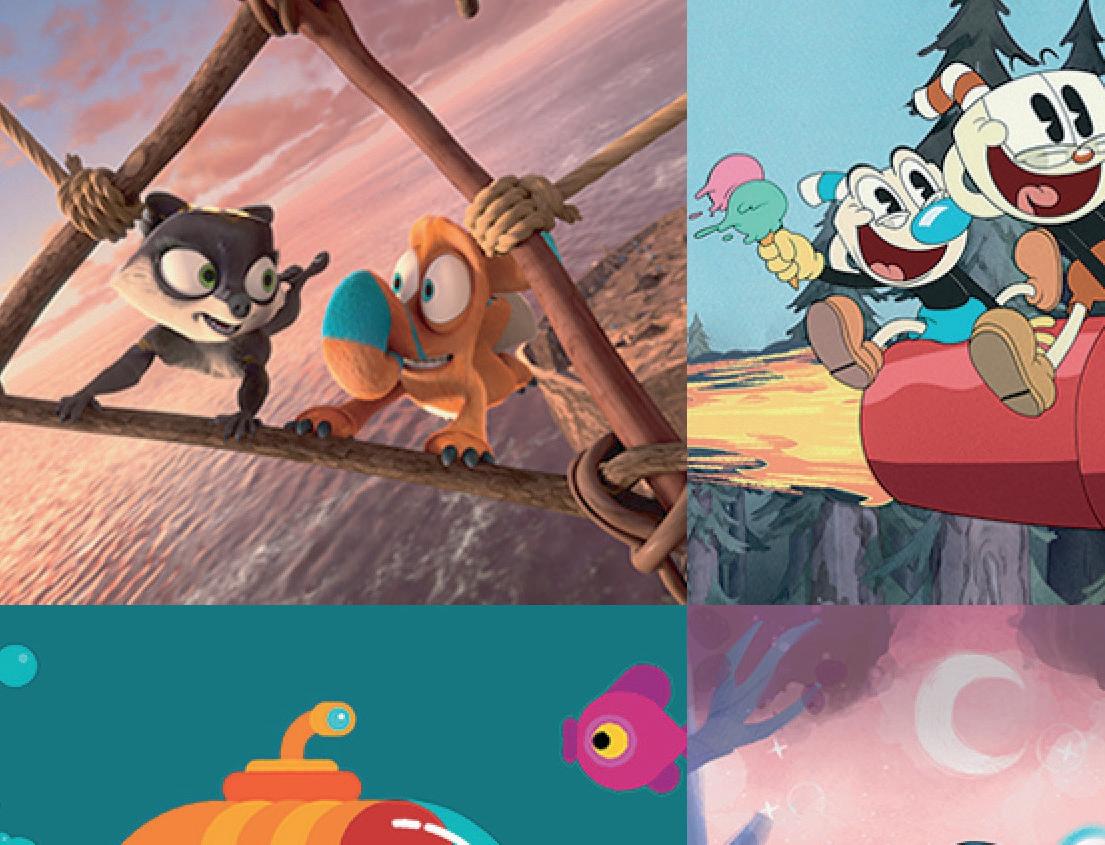

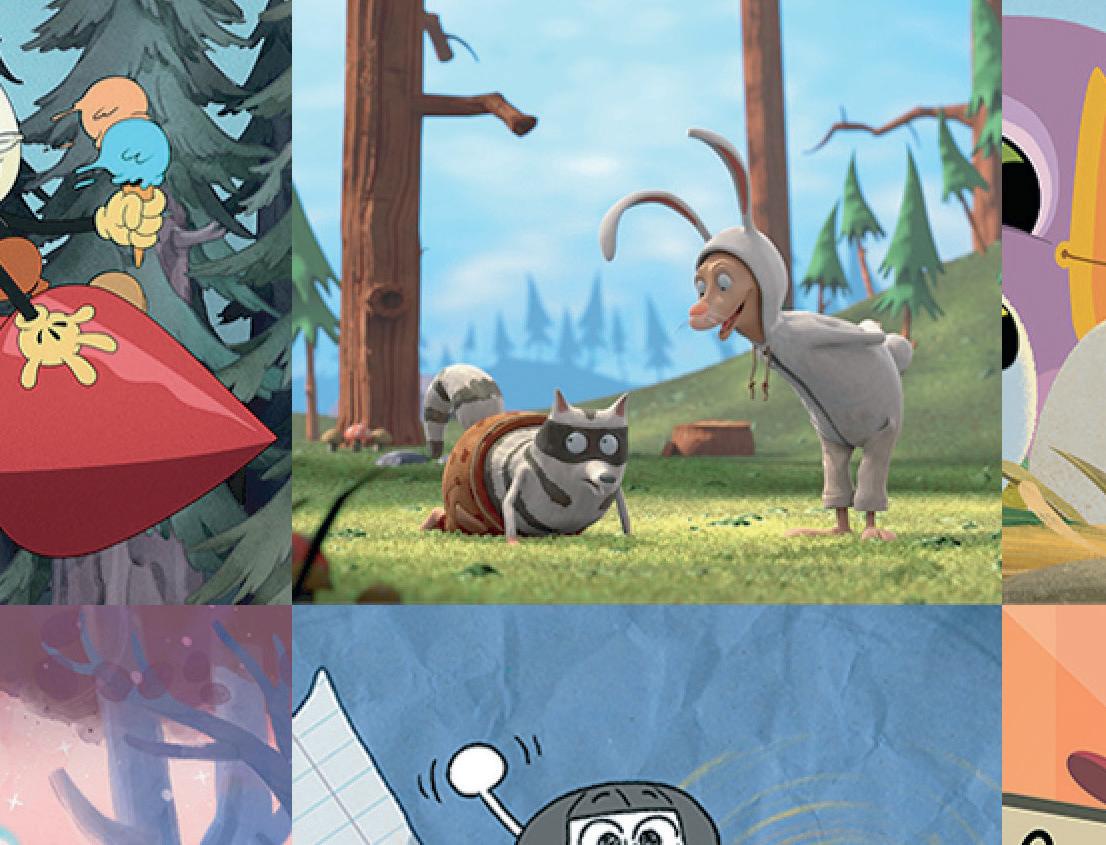





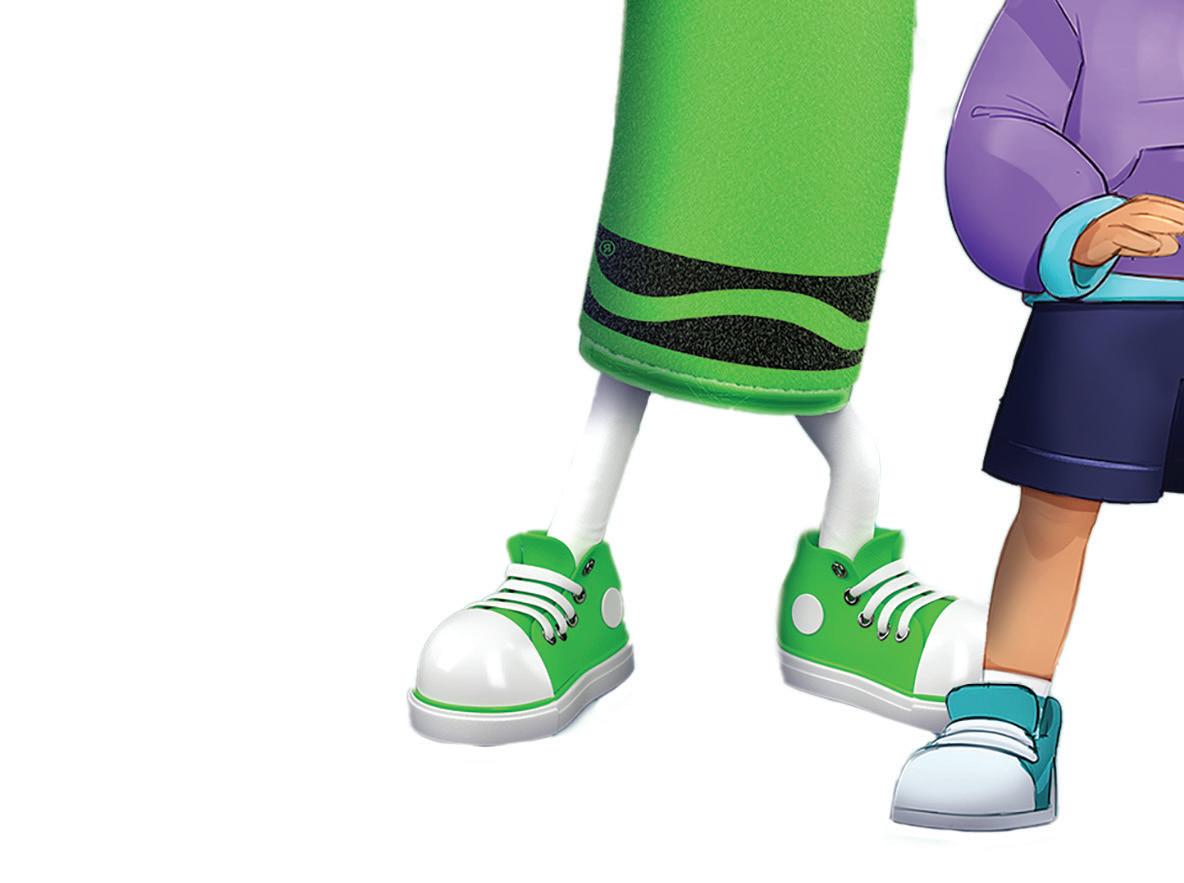


Toy stories
Last year, retailer and art supplies giant Crayola made the move into entertainment and content production with the launch of Crayola Studios, a division aimed at producing shows for kids and families.
At the time, Crayola’s executive VP of marketing, Victoria Lozano, who is leading the new production arm, said the launch was “a logical next step” for the company, whose ethos is to inspire and nurture creativity in kids.
“We’re not just an art supplies company. It is true that’s how we’re most well-known, but our purpose is around nurturing the inherent creativity of kids,” Lozano told C21 when Crayola Studios was launched.
Eight months on, the company has built a slate of programmes for production including podcast adaptation The Alien Adventures of Finn Caspian with MIMO Studios and 9 Story Media Group, animated series Crayola Crew with Moonbug Entertainment and family competition show The Great Crayola Showdown (working title) with Marwar Junction.
Branching into the content sector affords children’s companies the opportunity to take advantage of a place where kids spend much of their time, Lozano says, enabling them to reach more kids with their brands.
“It’s a necessity for any business to think about the media ecosystem holistically and ask the question, ‘How many people can you reach here? And how effective is that?’ It behoves any brand to think about that in a holistic way. I can’t blame companies for looking at this [launching content arms] because it

 By Karolina Kaminska
By Karolina Kaminska


is a very robust and compelling way to connect with kids and families,” she says.
Crayola isn’t the only kids’ retail company to have expanded into the world of production and content.
Seven years ago, soft toy retailer Build-A-Bear

A trend is emerging for kids’ companies outside the content space to launch production and entertainment arms, especially as broadcasters and streamers seek shows based on known IP and existing brands.
Workshop in the US partnered with LA-based agency Foundation Media Partners to do the same thing via a new division called Build-A-Bear Entertainment.
In the years since, Build-A-Bear Entertainment has produced projects including live-action feature film The Honey Girls and animated movie Glisten & the Merry Mission, both of which are inspired by Build-A-Bear’s toy lines of the same names. Earlier this year, the company announced it was producing animated series Kabu, based on Build-ABear characters, with animation company Laughing Dragon Studios.


“ If you haven’t figured out how to create some sort of value with an engaging experience, not just a transactional experience, it’s hard to stay in business anymore, and certainly hard to flourish.







Sharon Price John



“Build-A-Bear has been around for 25 years and was founded under the construct of being ‘retailtainment’ – entertainment at the physical level,” says Build-A-Bear CEO Sharon Price John.











“[These days] if you haven’t figured out how to create some sort of value with an engaging experience, not just a transactional experience, it’s hard to stay in business anymore, and certainly hard to flourish,” says Price
Build-A-Bear CEO

“[These days] if you haven’t figured transactional certainly John. think how we could explore different ways to extend into

“We needed to think about how we could explore different ways to extend into more traditional
Kidcos moving into content
f
Crayola Studios and Moonbug’s Crayola Crew


types of entertainment. We recognised that the creation of one soft toy at a time over that many years equated to 200 million furry friends and we had this opportunity to pivot from a company that was a retailer to an entertainment IP company that just happened to have vertical retail as one of its revenue streams.
“We had already started creating our own intellectual property inside Build-A-Bear, so we had character arcs and story arcs that we had launched in the form of plush animals, sometimes with music videos and sometimes with little storybooks, and then we created our Honey Girls and Merry Mission films.”

In addition to its children’s content based on existing characters, Build-A-Bear Entertainment has also produced two movies for Hallmark Channel. While Hallmark Channel may seem like an odd partner for what is seen as a kids’ company, Price John explains that 40% of Build-A-Bear’s retail sales are to teenagers and adults. Additionally, Hallmark’s typical audience is mothers with young children who may already be connected to the Build-A-Bear brand.
Partnering with Hallmark Channel for holiday movies therefore allowed Build-A-Bear to put the brand “top of mind among the primary purchasers during the most important season of the year” for the company, the exec says.
“They’re not teddy bear movies. They’re movies about friendship, love and feeling good, because that’s at the essence of what the brand is about. There may be a teddy bear sprinkled here or there, but they’re not teddy bear movies.”
“Build-A-Bear is bigger than just teddy bears. It’s a memory; it’s a feeling; it’s part of pop culture. It’s about feeling good, but that doesn’t mean BuildA-Bear can’t do a drama,” adds Patrick Hughes, founder and CEO of Foundation Media Partners, who notes that the company might even look at unscripted content.
Like Crayola’s Lozano, Price John says it’s “nearly irrefutable” that companies “have to participate in some sort of content creation to be relevant today among a certain generation,” at least in the shortform space, if not longform.
In Canada, Spin Master was one of the pioneers of the expansion of retail and toy firms into content production. The toy company, which launched in 1994, formed Spin Master Entertainment in 2008 after the 2007 debut of its Bakugan toy line and accompanying animated series Bakugan Battle Brawlers
“ It’s a necessity for any business to think about the media ecosystem holistically and ask the question, ‘How many people can you reach here? And how effective is that?’
Victoria Lozano
Crayola
Since then, Spin Master Entertainment has made a name for itself in the kids’ content production sector, most notably for hit preschool series Paw Patrol – one of the most successful children’s shows of the last decade.
“Spin Master Entertainment’s launch was really about taking control of our own destiny when it came to the entertainment space,” says president Jennifer Dodge. “At that time, we already had Bakugan in the market and it took several partners to make the series to go with the toy. The idea around that was inspired by shows like Pokémon, which had done that before.
“Mattel had already started doing it and we thought, ‘Why would we rely on someone else to make content? We could do it ourselves.’”
Unlike Spin Master’s competitors, such as Mattel and Hasbro, which already had lots of existing IP on which to base series and films, Dodge explains that Spin Master, which was still a young company in comparison, didn’t have the same volume of IP to expand into content.
“So we had to take a different approach, which

was a traditional entertainment studio approach, to work with creators and develop ideas from the ground up. But we wanted to choose ideas that ultimately had a ‘toyetic’ feel to them or felt commercial in some way and had a play pattern that we could expand upon. That’s really how Paw Patrol and most of our series have come to be,” she says.
While Spin Master Entertainment does occasionally base series on Spin Master’s existing toys and digital games, Dodge explains that most of its IP starts with a series before expanding into toys and games. The idea with all new shows is to create a 360º franchise around them.
Among Spin Master Entertainment’s latest series are Unicorn Academy, which launched on Netflix last year and has a toy line in the works for this fall, and Vida the Vet, which recently premiered on CBeebies in the UK, Treehouse in Canada and Netflix in the US.
Dodge expects the trend for kids’ companies to move into the content production and entertainment sector to continue, especially as broadcasters and platforms are increasingly focusing on shows based on known IP with existing fanbases.
“What’s clear right now is that most studios and broadcasters are looking for IP that is a known entity and has brand equity, and I think that’s spurring on companies that have those type of brands to think about moving into the entertainment space. I certainly think, for a company like Crayola, which is built on creativity, that’s a move that makes sense,” the exec says.
“Even since the 80s, toy companies and cartoons have gone together for a very long time. And the success in the theatres last summer with the Paw Patrol, Barbie and Super Mario Brothers movies shows that known IP done in an amazing way, with great storytelling and highquality production, wins at the box office. A lot of studios are looking for that kind of entertainment so it wouldn’t surprise me to see more of that fare over the next few years.”

So when does it make sense for a kids’ company to expand into content production? According to Dodge, the move works best for brands that are based on characters or storytelling, or that have a creative background.
The exec says: “It’s difficult to just take any type of property and turn it into entertainment. But with an imaginative storyteller behind you, maybe anything is possible.”
62
NEXT BIG THINGS: Kidcos moving into content Channel21 International | Spring 2024
Jennifer Dodge
Kabu (above) and Unicorn Academy
Patrick Hughes
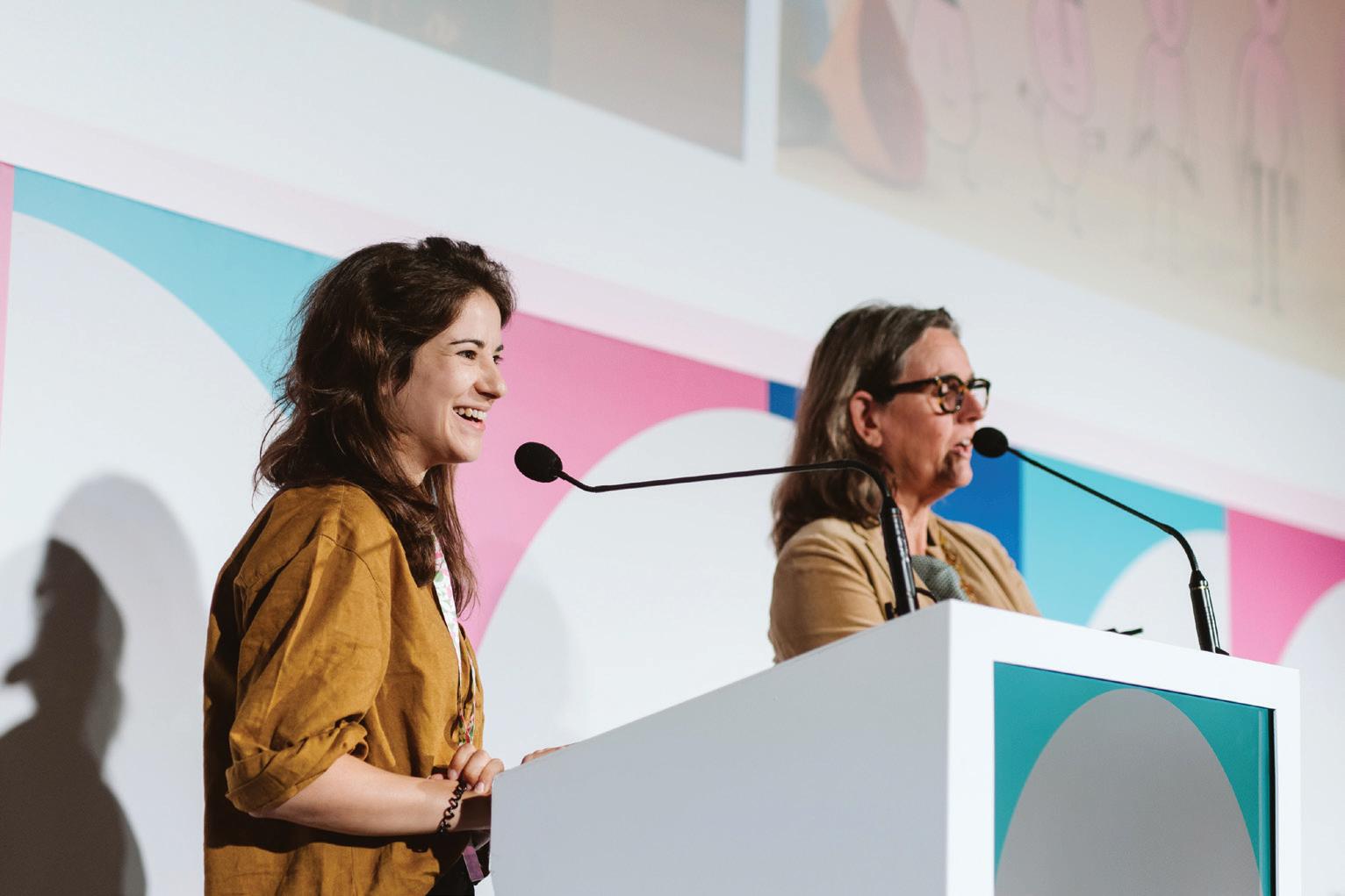
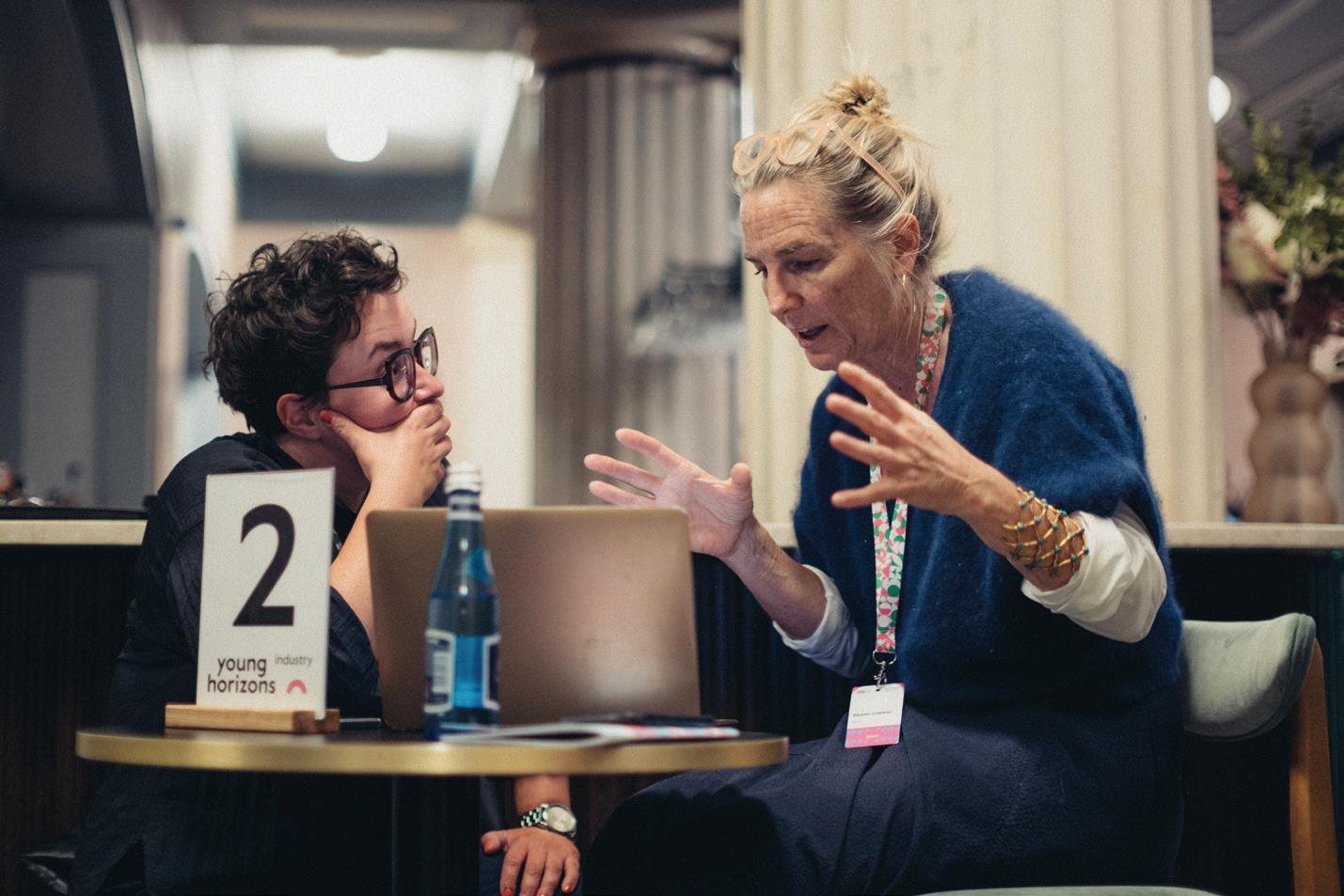






























GET YOUR PASS NOW! TH anni ver sary 24 27 JUNE 2024 The international marketplace and community for documentary La Ro c h e l l e, Fra n c e
Exerting influencers
Amazon Kids+ is engaging with social media influencers and seeking IP with universal appeal for its growing multimedia originals slate.
 By Gün Akyuz
By Gün Akyuz


Ehands
really good hands – unlike YouTube, which is the exact

service Amazon Kids+ is looking for more big-bet IP, including the work of social media influencers, to reach a worldwide audience with an “all-encompassing”
multimedia experience.
Discussing the service’s original programming strategy
requirements in a panel session about the next generation of Hispanic kids programming at Content Americas recently, Josh Mandel, senior production executive for originals at Amazon Kids+, said the company is



keen to harness universal IP that can offer a multimedia experience across video, audio, games, books and beyond.



opposite. It’s the Wild West, where there is everything and anything [available] and it’s definitely a little bit harder to control,” Mandel said. Within its broad 3-12 age band, Amazon Kids+ targets three

Available as a low-cost subscription service in five local markets – the US, where it costs US$4.99 for existing Prime members, Canada, UK, Germany and Japan –Amazon Kids+ differentiates itself as a dedicated safe space for kids to interact with age-appropriate curated content, that includes a library of over 20,000 books,
“Kids+ is devoted to curating and developing content specifically targeted at children aged three to 12,” said Mandel. “Prime Video is no longer in the kids business officially, they got out of it several years ago, and that’s when Kids+ really ramped up its originals productions.”

Available as a low-cost subscription service in five local that shows, movies and games. watch
Mandel said most children consume content on Kids+ through a kids’ edition of Amazon’s Fire tablet. “They’re completely in the driver’s seat; they’re choosing the content to watch or to play with. It is not co-viewing, and they’re not watching it on a TV with their parents sitting by.”

Features of the service on the tablet include an ageappropriate user-interface that ages with viewers, going from a “very baby-like preschool format into a little more sophisticated one for older kids, all within the same tablet without having to upgrade to a new level, as we do with our phones,” he said.
Its dedicated kids’ demo has also necessitated stepping up “the level of curation and the safety factors to ensure every parent that subscribes to Kids+ feels their kids are in
sub-groups: 2-5s, 6-9s and 1012s. Acquired content franchises include well-known IP such as SpongeBob SquarePants

Peppa Pig





Sesame Street
12s. Acquired content franchises include well-known IP such as SpongeBob SquarePants, Angry Birds, , My Little Pony and Sesame Street







In 2021, Amazon Kids+ started ramping up its original commissions, rolling out Moonbug Entertainment’s preschool series December that year. Other originals are Moonbug’s YouTube property which was made into animated Arpo Robot Babysitter original 3D series Super Style!, franchise; and the

Blippi’s Treehouse in Arpo, series ; Hello Kitty: part of the global Lego Monkie Kid animated series and specials.
Mandel’s role at Amazon Kids+ is to develop and produce original series and movies for the service. This January saw a change in staffing at Amazon Kids+, with Aaron Berman appointed head of original series, working alongside Mandel, following Veronica Pickett’s departure to rejoin Nickelodeon.


“What’s exciting about Kids+ is that because of our allmedia service, when we look at IP to develop into original shows or films, we’re not just looking at making a show or a film – we’re looking at everything,” Mandel explained. This means examining what the ‘big picture’ experience
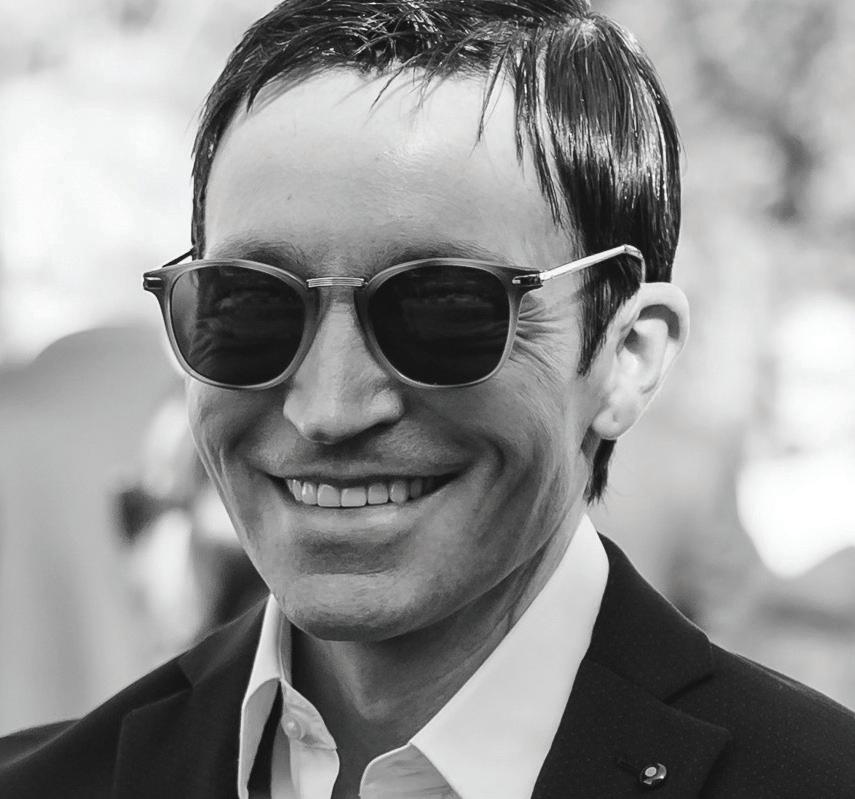
Channel21 International | Spring 2024 CONTENT STRATEGIES: Amazon Kids+ 65
Josh Mandel
YouTube property Arpo was adapted into animated series Arpo Robot Babysitter
































HOTDOCS.CA/REGISTER @HotDocsIndustry @hotdocsindustry
will be, he added. “Do we do a book? Do we do a book and a game? Do we do a toy, a book, a game and a series?”
Amazon Kids+ works closely with its larger sibling Prime Video, meaning that “even though Amazon Kids+ is currently only in five markets, many of our projects are co-funded and co-distributed with Prime Video, which opens up the entire world. So when we’re looking at projects to develop and produce, we’re really looking at a global audience,” said Mandel. “Specifically, because we’re only in five markets, we try to expand our audience to reach as [many viewers] as possible in partnering with Prime Video.”
The latest big-brand IP to make it as an Amazon Kids+ original is Angry Birds Mystery Island, which will launch this year as a series. The show is being made by Rovio Entertainment and LA-based animation studio Titmouse for Prime Video and Kids+.
“All of our events have to be really big in order to justify a multimedia buyin. It’s not just making a movie or a series, but do we make a game? Do we think about making some other form of media? And that means the bar is really, really high,” said Mandel.


“But the good thing about that is when kids are already aware of the IP, whether it’s from movies or books or video games or YouTube influencers, it makes it a whole lot easier to justify the big bet and then get creative on what the actual content is going to be and how we amplify that experience, so we’re not just making another show on a development slate of 100 other shows, but we’re really focusing on making it a memorable experience for kids everywhere.”
Taking Amazon Kids+’s original Blippi’s Treehouse as an example, Mandel said: “We definitely look at YouTube influencers as one source of many IPs for content that is going to be popular with kids today, rather than looking at legacy brands that are nostalgic for parents in their 40s and 50s but don’t really track with kids today, and Blippi [aka Stevin John] is one of the biggest influencers on the planet.”
Another is Ryan Kaji, a 12-year-old YouTube ‘kidfluencer’ of Pocket.watch franchise Ryan’s World, with whom Amazon Kids+ launched original spin-off special Super Spy Ryan.
Both have wide international appeal outside the US, said Mandel. “It’s important to us that we’re not just focused on US-specific influencers or US-specific brands that we try to localise and make popular. Rather we look at brands we know are going to be universally appealing, even if they’re not currently appealing in 50 countries, to make sure it’s not just a US brand. We definitely avoid US-specific brands when we’re looking at IP, whether it’s superhero IP or even influencers like Blippi.”
When it comes to targeting local audiences in countries where Amazon Kids+ is not available as a dedicated service, such as Latin America, Mandel said the company is “very careful to look at opportunities to join with our partners in Latin America through Prime Video. I am very much involved in every level of development, all the way down to distribution, marketing and localisation.” Mandel noted a huge contingent of its US population is also Spanish-speaking and all of its US English-language content is localised into Spanish. “We redesign artwork and we think of that audience as if it’s another audience entirely and we really cater to them. We’re thinking about that with all of our global partners as well, which is why we work so closely with our Lat Am partners at Prime Video to get their buy-in, even on shows that we are completely spearheading,” he said.
There’s also an “ongoing conversation” about the potential for Amazon Kids+ to launch in other territories, including Latin America, thanks to the service’s many partnerships with Prime Video.
With the latter already present, there’s no immediate need to move into those countries, said Mandel. This is despite Amazon Kids+ being a very different service and the fact families watching Prime Video there have a different experience. “They turn on Prime Video on TV and have to find kids’ content. It’s not the same as our service, which is heavily curated,” the exec explained.
Addressing the growing discussion around the use of artificial intelligence (AI) in generating content for children, Mandel said: “I’m really open to the idea of it, so long as Amazon remains compliant. We just came out of a big SAG-AFTRA strike where AI was at the forefront of the dispute, and we want to be mindful of the artistry of acting and of writing, and that we’re not getting in the way of that.
“But I think there are a lot of great opportunities for AI. They can still incorporate the collaboration of talent and not just box them out and suddenly start making a bunch of shows and movies with AI and no longer need actors, writers or directors.”
“ It’s not just making a movie or a series, but do we make a game? Do we think about making some other form of media? And that means the bar is really, really high.
Josh Mandel Amazon Kids+
Channel21 International | Spring 2024 CONTENT STRATEGIES: Amazon Kids+ 67
Moonbug Entertainment’s preschool series Blippi’s Treehouse. Left: 3D series Hello Kitty: Super Style!

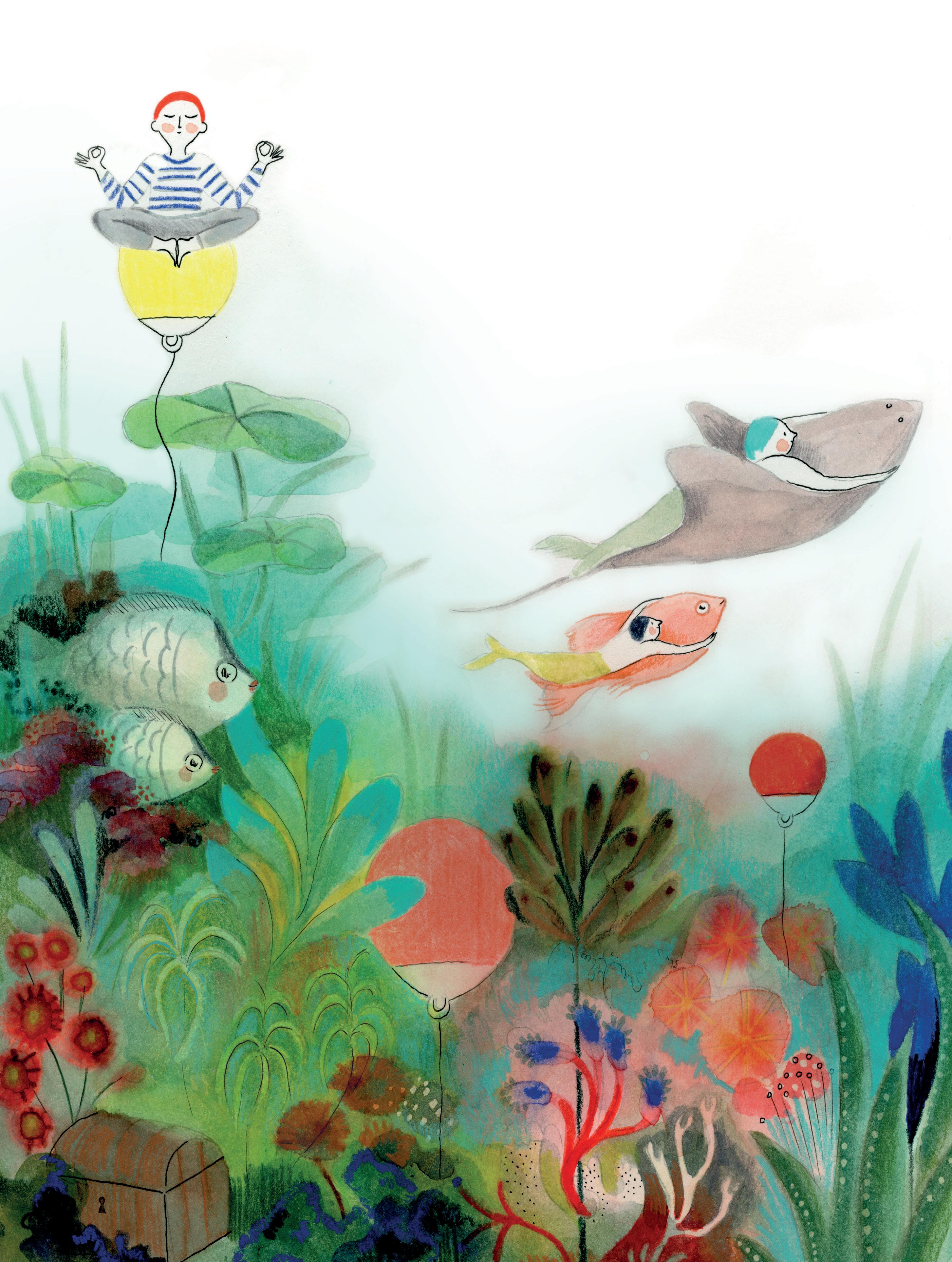












Development Slate Folivari International

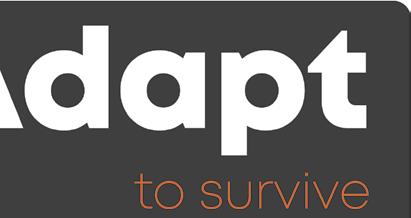

In the year of its 10th anniversary, French animation company Folivari is expanding its presence across the globe with the launch of distribution arm Folivari International. The new division will distribute Folivari’s content around the world, while securing financing and pre-buys for new shows with international appeal.
Leading Folivari International, which was formed in January, is co-founder and head of distribution and acquisitions Melissa Vega, who was previously acquisitions and international sales manager at French studio Dandelooo. Vega is currently managing the new division herself but hopes to bring someone else to the team in the coming year and a third person within the next three years.
As well as distributing and helping to fund Folivari’s content, Folivari International is also acquiring programmes from third-party producers, which it is actively seeking.
“The goal is to find creator-driven content that is funny and smart, in that order, that comes from everywhere and can be appealing to any market and any region. That’s the idea when we look for acquisitions,” Vega says.
Folivari International currently has three bookbased shows on its slate that are in development. Nino Dino (52x7’), which is being produced for France Télévisions, is a 3D animated preschool series about a little temperamental T-Rex and his friends. Vega has already secured some pre-buys for the show, which is slated to begin production at the end of this year.

“ The main challenge we are facing is that kids are consuming content in a di erent way. That’s the big thing. So we have to bring content to kids in a di erent way.
Melissa Vega
The Baker Street Four (12x26’), for Canal+, is a 2D and 3D animated series aimed at six- to 10-yearolds about three friends and a cat who help the detective Sherlock Holmes with his investigations in Victorian London. Folivari International is looking for pre-buys and collaborators to board the project.
The third series, Kiki & Ailen (52x13’), is a 3D animated comedy series about two naïve young extraterrestrials who misconstrue every situation they encounter on Earth, triggering one disaster after another, which their adopted duck friend must then avert. Folivari International is seeking a commissioner for the project.
Acknowledging that there are currently “very few spaces in the market for unknown IP,” Vega says Folivari International will be looking for
ways to collaborate and coproduce with partners internationally in order to raise the bar for the content it delivers.
“In Europe, we are already used to coproducing, but if we are able to collaborate with international players, whether it be production companies or prebuys from broadcasters, we can bring the content to another level. It will be more international, more appealing and can reach a wider market as well,” she says.
Discussing launching a new business amid the global economic downturn, when buyers are cutting budgets and commissioning less, Vega is optimistic that things will improve as they have done in previous times of crisis.
“This is a cycle. I’m a big optimist. We know the international markets and big players haven’t settled yet, so things may still change. Maybe in a year-anda-half hopefully we will have a better idea of where we will be going and what the players will want in terms of commissions,” the exec says.
“The main challenge we are facing is that kids are consuming content in a different way. That’s the big thing. So we have to bring content to kids in a different way – be where they are and be conscious of what kind of content and what way of telling the story is appealing to them.”
Vega will be joining colleagues from the Folivari production team at MipTV and will be attending other markets throughout the course of the year to meet partners and forge new partnerships.
The exec’s objectives for the foreseeable future are to hire new recruits to the team, acquire more content to build out the slate, get more projects into production and development, and secure commissions for and deliver its current projects.
To achieve this, Folivari International will be seeking people and companies to collaborate with. “That’s our goal – finding great partners we can have a long-term relationship with,” Vega says.
Melissa Vega at French studio Folivari International discusses the newly formed business’s strategy and its mission to secure global partners. By Karolina Kaminska
The Baker Street Four
Channel21 International | Spring 2024 BACKEND 69



Paris-based studio Ellipse Animation, a subsidiary of Média-Participations, has had a big start to 2024, having acquired a majority stake in Italian prodco Studio Campedelli and launching a webtoons production arm in January.
Studio Campedelli is based in Milan and Turin and specialises in animated content. Prior to its acquisition, it was already working with Ellipse on the series Versailles Unleashed, which is currently in production for France Télévisions, and on feature film Prendiluna, currently in development.
“What we want is to expand in Europe and we are convinced there is a lot of talent in Italy,” says Ellipse’s MD Caroline Audebert. “We want to increase our expertise in 2D so it’s a good opportunity for us to have Studio Campedelli on board. Anne-Sophie Vanhollebeke and Valeria Brambilla [who run Studio Campedelli] will develop their own IP for the Italian market and for worldwide audiences.”
As well as expanding in Europe, where Ellipse will continue to look for opportunities, the prodco is increasing its focus on webtoons, a type of digital comic that originated in South Korea. Ellipse’s new webtoons arm, which sits within Ellipse Studio Angoulême in the south-west of France, will produce animated series based on webtoons. The first project is based on writer Rutile and animator/illustrator Yllogique’s series Vertu de Saint-Cyr.
Last year, Média-Participations launched webtoon platform Ono in response to increasing demand for the format. According to Korea Creative Content Agency, France is the number one webtoon market in Europe and fourth in the world after Korea, Japan and the US.
In addition to adapting projects from Ono, Ellipse is looking to create its own original webtoons and adapt animated films and series from its catalogue




“Webtoons is a wonderful medium and we think there is a strong future for it in France,” says Audebert. “Production of webtoons is shorter than animation production, so it’s a way to meet the audience faster and see how a story works and if a show [based on it] would be good. After that, it could be possible to create 360º elements around the IP.”


Lila Hannou, Ellipse’s VP of creative development and strategy, adds:


for says [based on it] would be good. After it we have very good bridges

“Being part of a publishing group, we have very good bridges between different







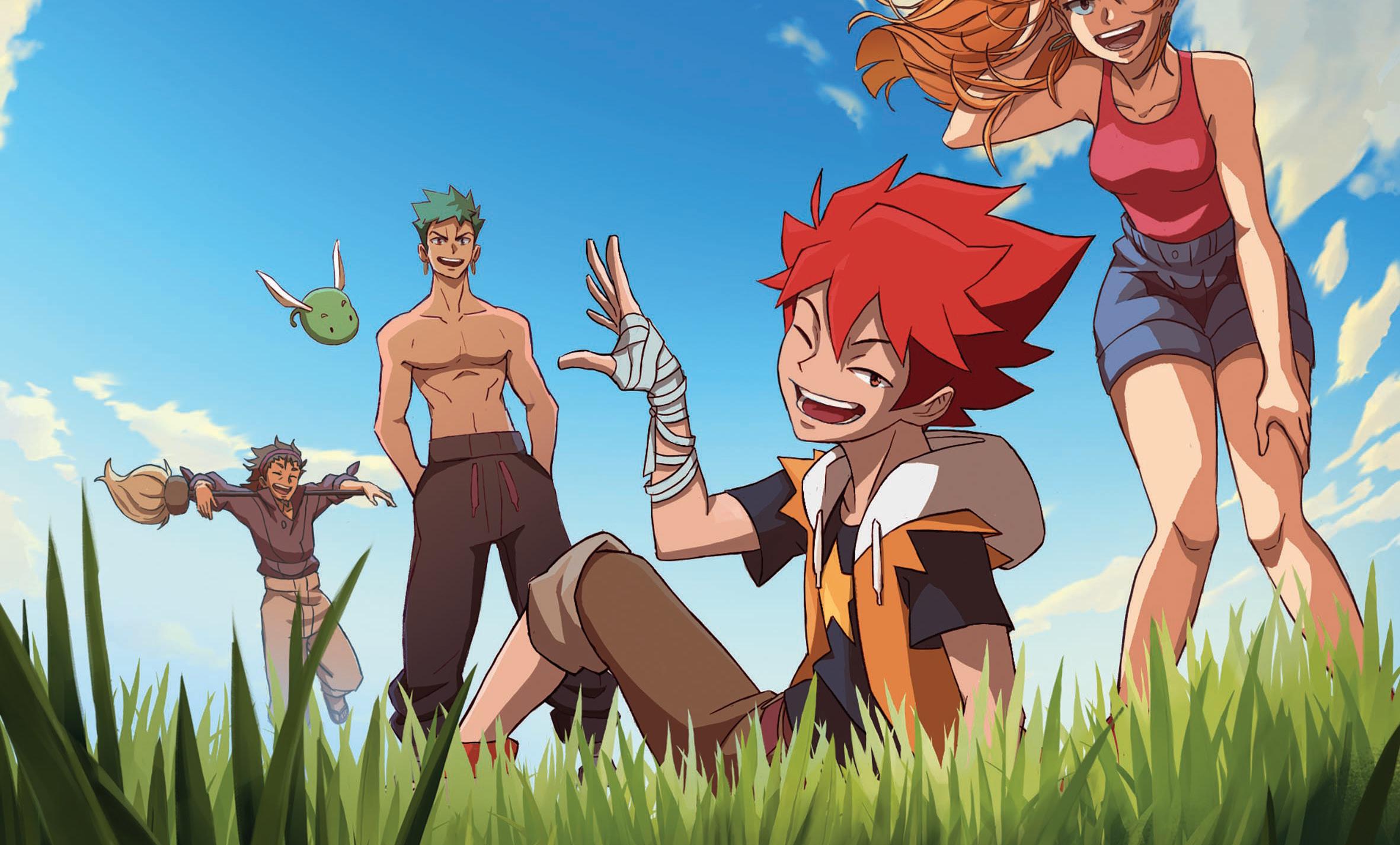
Three-Year Plan Ellipse Animation
Ellipse Animation’s Caroline Audebert and Lila Hannou talk about expanding across Europe and finding new ways to reach young audiences. By
Karolina Kaminska

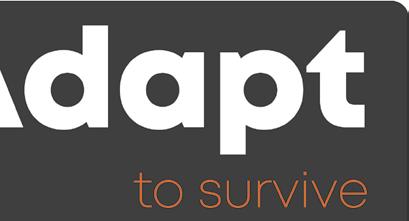

companies that work with stories. A story is a story –it can be published as a book, it can be a webtoon, it can be a piece of audio and it can be a cartoon. Talent can go from one universe to another and you can have very good stories in webtoons that can become shows and vice versa. So we see an opportunity for stories to travel from one world to another.”
Also last year, Ellipse appointed former Xilam Animation sales boss Morgann Favennec to the new role of VP of international financing. Favennec is working alongside Audebert and Hannou to secure international coproduction and pre-sales agreements for all series and feature projects produced by the prodco.
“We have many productions on our slate and it’s very important that our IPs travel worldwide. We needed to strengthen our team to access broadcasters around the world, and Morganne is finding different ways of financing projects so our shows can meet the audience faster and in the best way,” Audebert says.
In addition to Versailles Unleashed, which is about the friendship between a dog and wolf who live in the court of Versailles, Ellipse is producing season three
of the latest version of The Smurfs and a reboot of classic series The Marsupilamis. Also in production is anime series Dreamland, which is being produced for streamer Animation Digital Network and is adapted from Reno Lemaire’s manga cartoon of the same name.
Meanwhile, Ellipse has 25 projects in development including preschool series Trotro & Zaza, nondialogue slapstick comedy series Komodo No Chill and the sequel to feature film Yakari
Over the next few years, Ellipse will continue seeking ways to expand across Europe where opportunities arise and keep producing five or six productions per year, including one feature.
“Knowing that the audience is moving with new ways to consume stories, we want to adapt to that and work on different mediums and ways of producing,” Audebert says, adding that Ellipse is also exploring more ethical and sustainable ways to produce.
one is of adding also exploring more ethical and sustainable ways to produce. and we hope will emerge across the world in the next few

Hannou adds: “We have this new generation and we are happy to be able to provide a new way to tell stories to them. We have big IPs and brand-new IPs that we hope will emerge across the world in the next few years.”






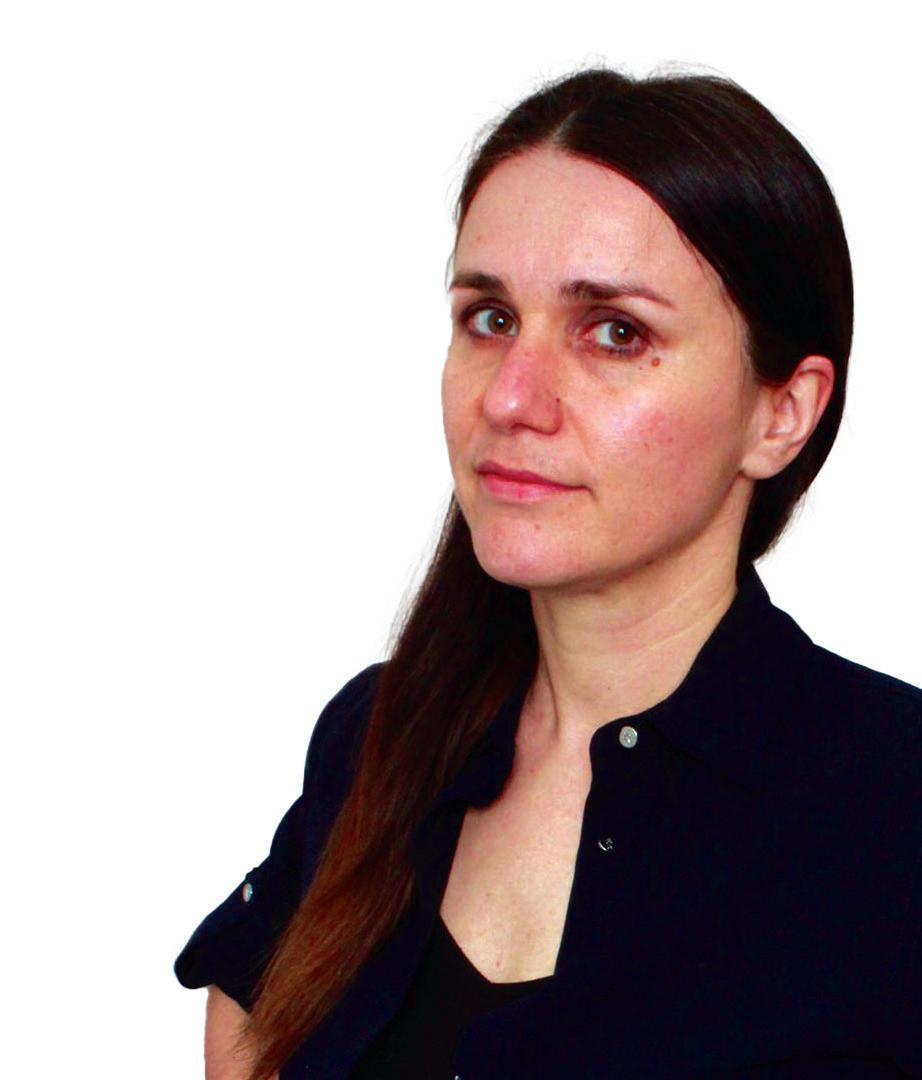
 to the webtoons format.
Komodo No Chill
Dreamland
Caroline Audebert
to the webtoons format.
Komodo No Chill
Dreamland
Caroline Audebert
Channel21 International | Spring 2024
Lila Hannou
Three strikes and you’re out?
The US actors’ strike had been over for a grand total of 61 days when Matt Loeb, president of below-the-line union the International Alliance of Theatrical Stage Employee (IATSE), fired a warning shot across the bows of Hollywood’s major studios, telling them in January that “nothing is off the table” in its upcoming contract negotiations.
It was not a surprise, given that IATSE came perilously close to striking in 2021, as the union fought for improved on-set conditions, a better work-life balance and a bigger piece of the spoils that were supposed to be reaped from streaming. Even when a new agreement was reached – just hours before IATSE members were due to strike – internal discontent remained and union membership only ratified the vote by the slimmest of margins.
Fast forward to April 2024 and much has changed. Whereas the industry was on a seemingly upward trajectory in late 2021, with some streamers believing, in hindsight almost comically, they could reach over half-a-billion subscribers, the outlook has turned bleak.
Today, all the major studios and streamers not named Netflix are in various degrees of crisis. Many people are out of work as a result of corporate downsizing and an abrupt decline in the number of shows being made. Almost all legacy players are dealing with languishing stock prices and mountains of debt after sinking billions into streaming. Writers and actors harbour lingering resentment over the 2023 labour negotiations, with many feeling the tenor of talks with Hollywood studios revealed a disdain for TV’s creatives.

A third major US stoppage in two years would cement fears the business, which already faces extinction-level threats, is entering an era of rolling strikes, writes
C21’s Jordan Pinto.
strikes, which had a devastating knock-on effect in the UK. However, UK actors’ union Equity is making noises about taking action if it can’t get a satisfactory deal. In Canada, too, the producers’ association and writers’ guild remain locked in tense months-long negotiations over their own deal.
The disruption of rolling strikes puts the international industry on unsure footing at a time when it faces other threats that undermine its long-term prospects in far graver ways.
The first of those is the rise of the usergenerated content economy, which continues to eat away at traditional TV’s audience share. YouTube is becoming an increasingly dominant force, with the Google-owned platform commanding more streaming viewership in the US than Netflix over the past year.



Things could get worse if talks between IATSE and the studios aren’t productive. With discussions having started only recently, it is still too early to assess the state of play. IATSE and trucker union the Teamsters have until July 31 to hash out new deals with the trade association representing the studios.
Opinion is divided. Some insist calmer heads will prevail, while others see another stoppage on the horizon.
Before 2023’s double strike, there hadn’t been a major labour stoppage in Hollywood for 15 years. Historically, TV and film has not been a business prone to regular industrial action. However, if IATSE were to become the third major Hollywood union to strike in the space of 16 months, it would suggest the entertainment industry is entering a phase of rolling strikes, where one work stoppage – or narrowly averted one – will follow another.
An IATSE walk-out would not have the same transatlantic implications as last year’s
The second existential threat is the rise of artificial intelligence (AI) tools capable of creating content so advanced it is almost indistinguishable from video and text created by humans. Not only could it eliminate jobs, but there is data to suggest consumers are open to watching AI-made content. According to Deloitte’s 18th annual Digital Media Trends survey, 42% of consumers feel generative AI and humans can both deliver entertaining content, while roughly 30% of younger consumers feel content created by generative AI could be more interesting than that written by humans.
The latter statistic will terrify some and be taken with a grain of salt by others. But at a time when the traditional business is facing such challenges, it can’t afford to get bogged down in crises of its own making.
This is not to say these labour tensions are simply a distraction. People deserve to be paid fairly and the realignment of how industry workers are compensated in the streaming age is nuanced, complex and overdue. Studios and streamers will need to give more to make this a sustainable industry for workers.
But at a time when the sector is being so disrupted by external factors, people are right to be concerned that industry infighting could contribute to its demise.
EDITORIAL
Editorial director
Waller ed@c21media.net
Editor of C21Media.net
Webdale jonathan@c21media.net
Chief sub-editor Gary Smitherman gary@c21media.net
Head of design John Winfield john@c21media.net
Senior sub-editor Steve Warrington steve@c21media.net
News editor
Clive Whittingham clive@c21media.net
Channel21 International editor Nico Franks nico@c21media.net
DQ editor Michael Pickard michael@c21media.net
Research editor Gün Akyuz gun@c21media.net
C21Kids editor Karolina Kaminska karolina@c21media.net
North American editor Jordan Pinto jordan@c21media.net
Senior reporter Neil Batey neil@c21media.net
C21TV
Head of television Jason Olive jason@c21media.net
Video editor/motion designer Adrian Ruiz Martin adrian@c21media.net
FINANCE
Finance director Susan Dean susan@c21media.net
Finance manager Marina Sedra marina@c21media.net
Finance officer Shuhely Mirza shuhely@c21media.net
Office manager Katie Reilly katie@c21media.net
Team assistants Caitlin Wren caitlin@c21media.net
Group CFO (consultant) Ravi Ruparel ravi@c21media.net
ADVERTISING
Founding partner and commercial director Odiri Iwuji odiri@c21media.net
Sales director Peter Treacher peter@c21media.net
Telesales director Nick Waller nick@c21media.net
Business development director Patricia Arescy patricia@c21media.net
Sales manager Hayley Salt hayley@c21media.net
Senior sales executives Richard Segal richard@c21media.net
Malvina Marque malvina@c21media.net
Telesales executive Yasmin Connolly yasmin@c21media.net
EVENTS
Event programming director Ruth Palmer ruth@c21media.net
Head of events Gemma Burt gemma@c21media.net
Programming coordinator Erin Blackmore erin@c21media.net
Team assistant Mia Hodgson mia@c21media.net
PRODUCTION
Operations director Lucy Scott lucy@c21media.net
Head of digital Laura Stevens laura@c21media.net
Production and events coordinator Courtney Brewster courtney@c21media.net
Lily Miller lily@c21media.net
Rory Mullan Wilkinson rory@c21media.net
Editor-in-chief & managing director David Jenkinson david@c21media.net
PRESENT IMPERFECT FUTURE TENSE: Jordan Pinto Channel21 International | Spring 2024 72 2nd Floor, 148 Curtain Road, London EC2A 3AT Tel: +44 (0) 20 7729 7460 Fax: + 44 (0) 20 7729 7461 Email: post@c21media.net You can read C21 every day on www.C21media.net – the world’s leading International Entertainment Business website. Also on C21Media.net you can find a number of channel brands and services including C21Kids, C21FormatsLab, C21Factual and Content Strategies and an extensive industry MediaBase which is constantly updated and features more than 25,000 contacts worldwide. Subscribers to C21Media.net have access to the most respected information source in entertainment. This issue of Channel21 International was printed by Riccobono, Nice. Channel21 International is registered as a newspaper. No part of this publication may be copied, stored or copied on to any electronic system or broadcast via any other medium without prior consent of the publisher. All rights reserved. All trademarks acknowledged. © Channel21 International 2024 ISSN number: 1460-0668
Ed
Jonathan
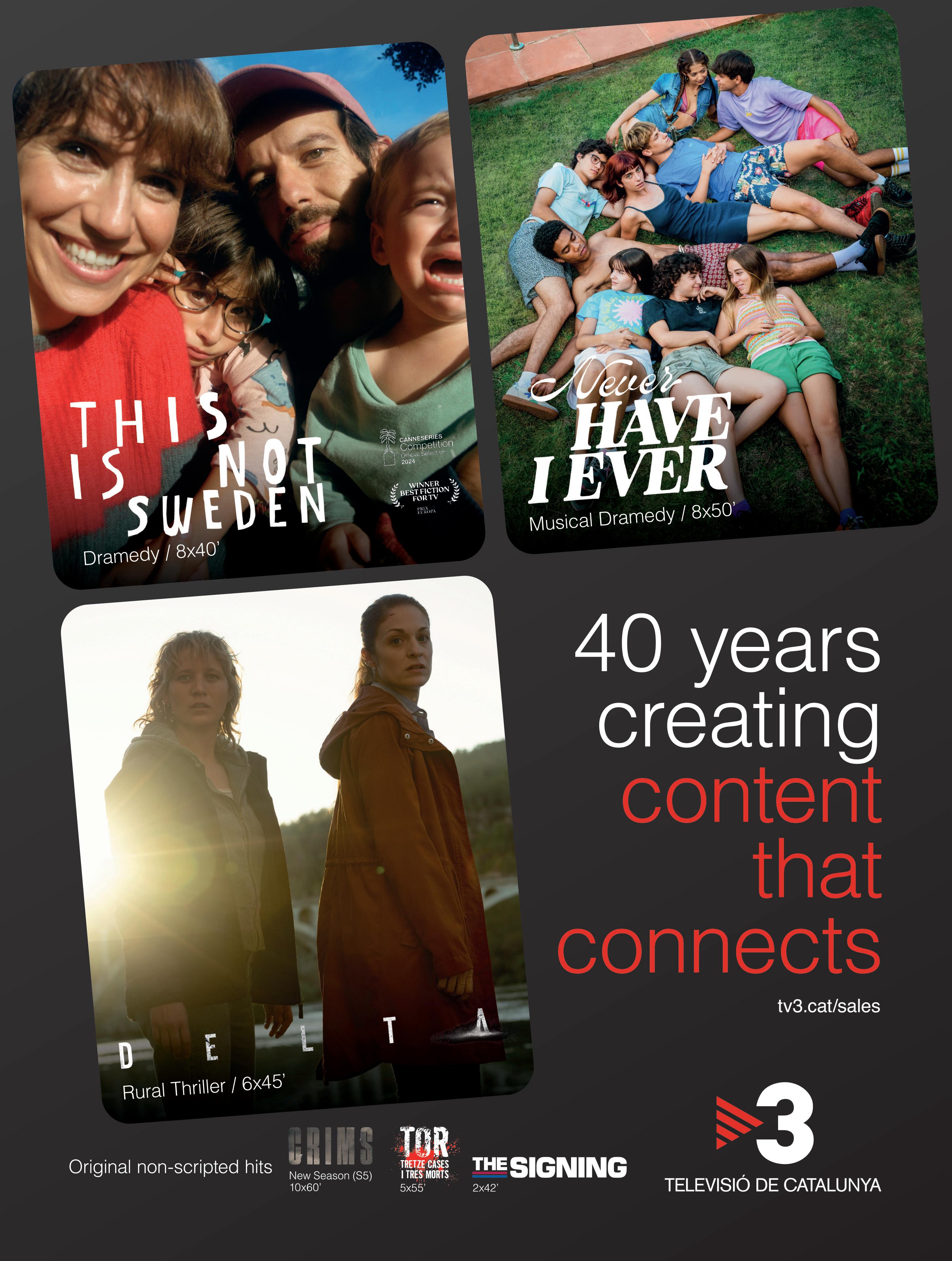
CONTENT WARSAW



Connecting the CEE and international business in 2024 Kinogram • 3-6 June 2024 A three-day market, international screenings & conference at the heart of CEE business CONTENTWARSAW.NET



































































































































































































































































 By Jonathan Webdale
By Jonathan Webdale
















































 By Jonathan Webdale
By Jonathan Webdale





































 Javier Villanueva, Megamedia
Javier Villanueva, Megamedia












































































































 By Clive Whittingham
By Clive Whittingham































































 Dancing with the Stars was postponed due to the Rugby World Cup. Left: Dream Team was developed from a paper format
Dancing with the Stars was postponed due to the Rugby World Cup. Left: Dream Team was developed from a paper format


























































































 By Gün Akyuz
By Gün Akyuz

















































 David Brady
David Brady















 BY RALF KUKULA, MATTHIAS BRUHN, THOMAS MEYER-HERMANN
BY RALF KUKULA, MATTHIAS BRUHN, THOMAS MEYER-HERMANN
































 Michael Sheen’s The Way picked up support from Creative Wales u
Michael Sheen’s The Way picked up support from Creative Wales u























































 By Karolina Kaminska
By Karolina Kaminska

















































 By Gün Akyuz
By Gün Akyuz




















































































 to the webtoons format.
Komodo No Chill
Dreamland
Caroline Audebert
to the webtoons format.
Komodo No Chill
Dreamland
Caroline Audebert







